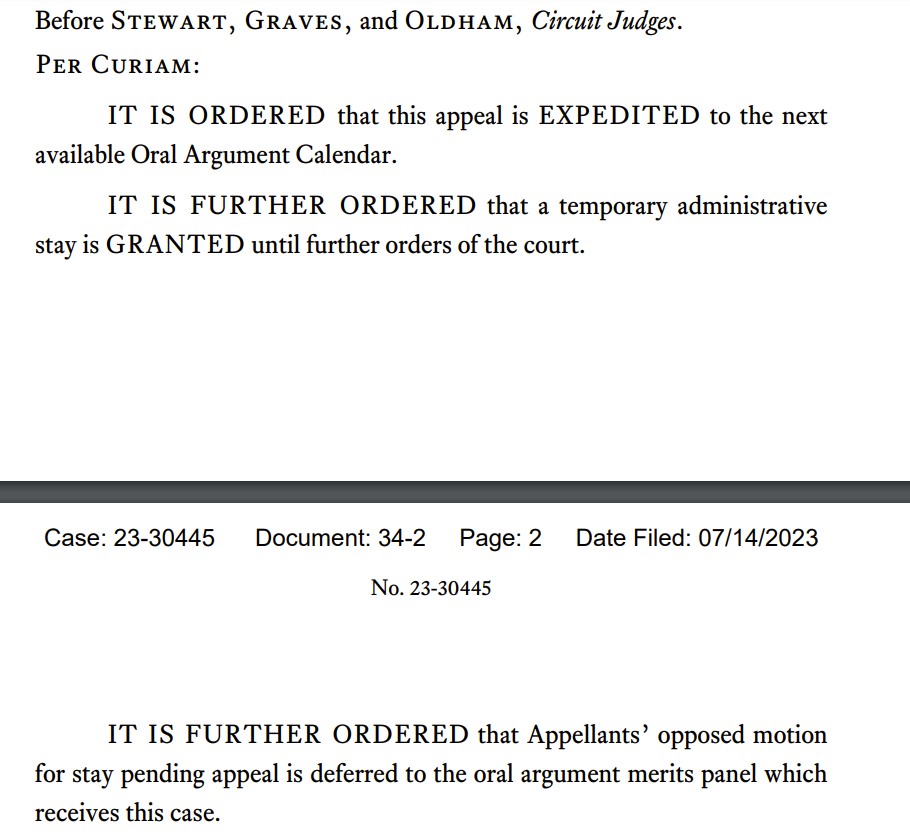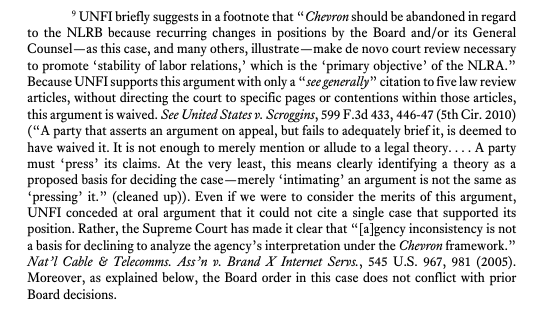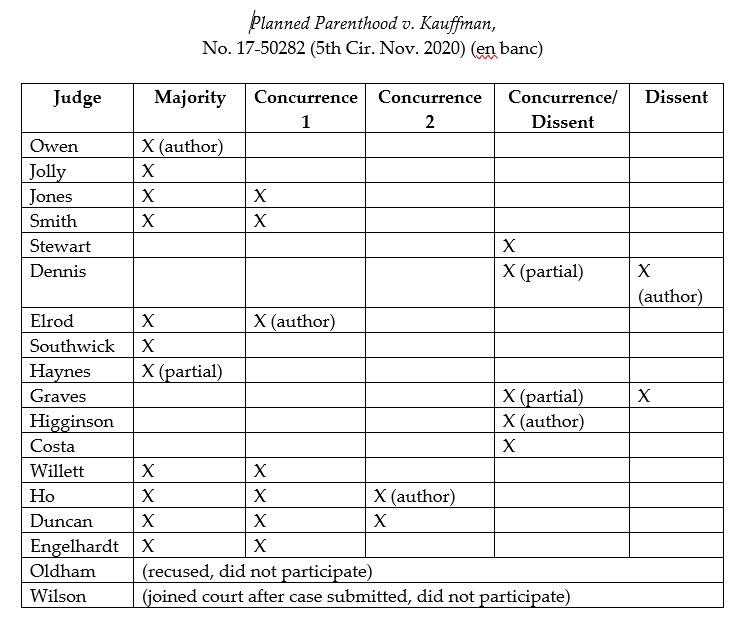The Fifth Circuit denied en banc review of ExxonMobil v. NLRB, a dispute about the NLRB’s decision to vacate an earlier decision and retry the matter (decried by Exxon as a political maneuver; defended by the NLRB as the result of a conflict for a board member involved in the earlier proceeding). A dissent from the denial of en banc review states the case against excessive “independence” for independent agencies, and also has some observations about party-presentation as applied to the evolution of the parties’ arguments during this long-lived case. No. 23-60495 (Dec. 17, 2025).
Category Archives: Appellate Procedure
 Storey Mountain LLC v. JP Morgan Chase laments: “Despite the long line of cases requiring parties to establish the citizenship of an LLC’s members, this remains ‘an evergreen problem in our circuit.'”
Storey Mountain LLC v. JP Morgan Chase laments: “Despite the long line of cases requiring parties to establish the citizenship of an LLC’s members, this remains ‘an evergreen problem in our circuit.'”
The Court thus remanded for further development of the record about the parties’ citizenship, reminding that the following was not sufficient to establish diversity jurisdiction as to an LLC: “Storey Mountain LLC ‘is a limited liability company organized under the laws of Wyoming, with its principal place of business in Florida. For purposes of diversity, Garnishor is a citizen of Wyoming and Florida.” No. 24-20535 (Nov. 10, 2025).
 The interlocutory appeal in Arnold v. Barbers Hill ISD arose from a challenge to a school district’s hair-code policy. The plaintiffs noticed depositions of the superintendent and a former board president to probe the Board’s reasons for adopting and enforcing the policy. The district asked the court to bar questions about lawmakers’ “subjective intentions, motivations, [and] thought processes” by invoking legislative privilege on their behalf.
The interlocutory appeal in Arnold v. Barbers Hill ISD arose from a challenge to a school district’s hair-code policy. The plaintiffs noticed depositions of the superintendent and a former board president to probe the Board’s reasons for adopting and enforcing the policy. The district asked the court to bar questions about lawmakers’ “subjective intentions, motivations, [and] thought processes” by invoking legislative privilege on their behalf.
The Fifth Circuit held that legislative privilege is “personal to the legislator,” and observed that no individual privilege holder had actually invoked it or otherwise participated in the proceedings. Therefore, the governmental entity could not assert it on their behalf. As the Court concluded: “This case’s cart precedes its horse.” No. 23-20256, Nov. 3, 2025.
 In Morrow v. Jones, the Fifth Circuit addressed whether an appellate court may consider a forfeited issue—specifically, the failure to provide class-wide notice of a motion for attorney fees as required by Fed. R. Civ. P. 23(h). The panel emphasized that it may address a forfeited issue if it “involves a pure question of law, and our refusal to address it would result in a miscarriage of justice.”
In Morrow v. Jones, the Fifth Circuit addressed whether an appellate court may consider a forfeited issue—specifically, the failure to provide class-wide notice of a motion for attorney fees as required by Fed. R. Civ. P. 23(h). The panel emphasized that it may address a forfeited issue if it “involves a pure question of law, and our refusal to address it would result in a miscarriage of justice.”
Here, the Court held that declining to address the lack of notice would “unjustly deprive class members of the opportunity to object to the fee motion—an opportunity to which they are entitled by statute.” Given the unique context of class actions and the court’s independent obligation to protect class interests, the panel exercised its discretion to reach the forfeited issue, holding that the district court’s failure to provide notice was an abuse of discretion. No. 23-40546, Jun. 10, 2025
My thoughtful friend Arturo Ayala recently wrote this informative short article as to when partial supersedeas bonds may be allowed.
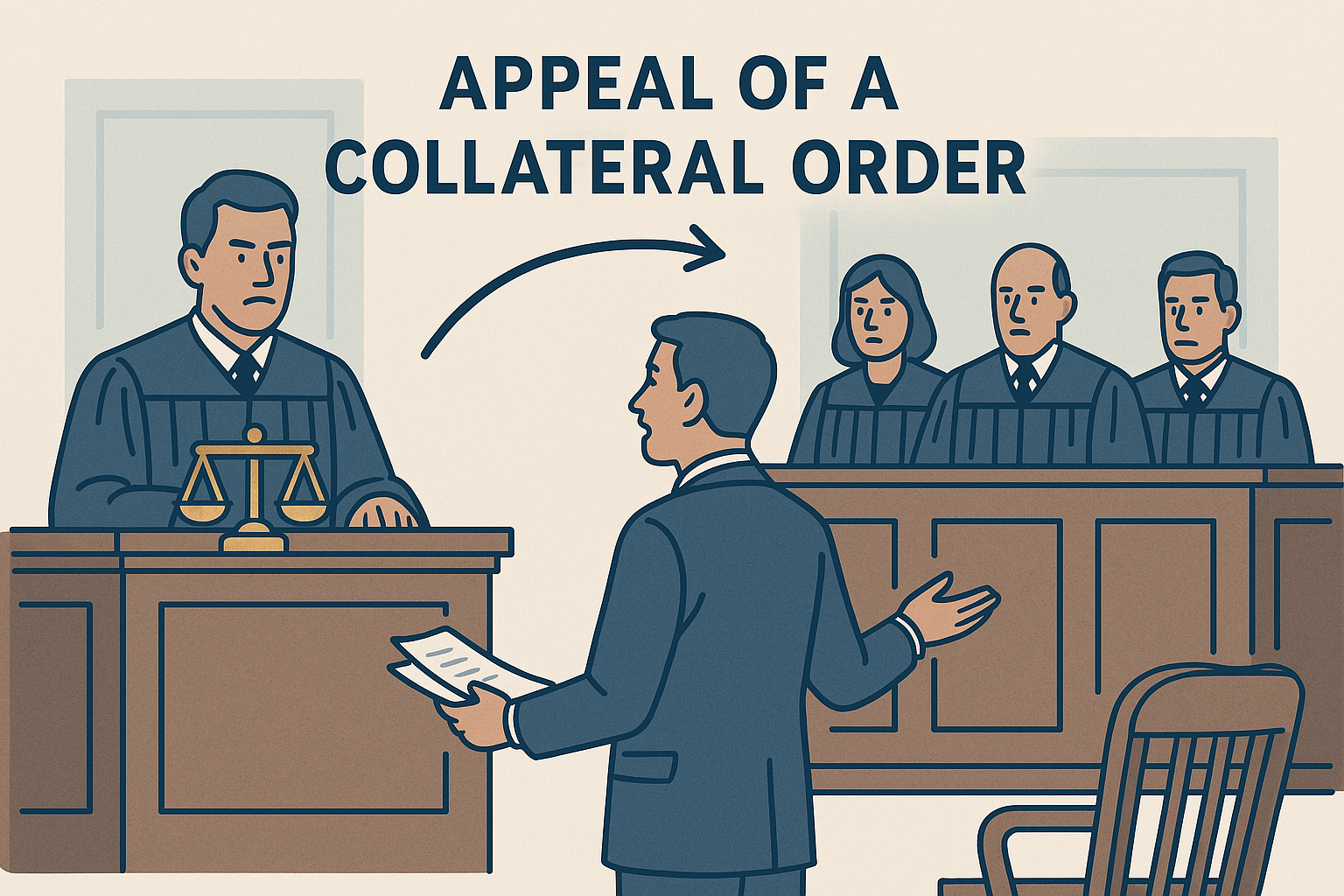 State of Mississippi v. JXN Water addressed whether an order compelling the disclosure of SNAP recipient data qualifies as an appealable collateral order.
State of Mississippi v. JXN Water addressed whether an order compelling the disclosure of SNAP recipient data qualifies as an appealable collateral order.
Remininding that the requirements for a collateral order are “stingent,” the Fifth Circuit found them satisfied here. The order (1) conclusively determined a disputed question, (2) resolved an important issue separate from the merits of the case, and (3) was functionally unreviewable on appeal from a final judgment. On the last point, the Court emphasized that once the confidential information of SNAP recipients is released, “no relief can make the information confidential again.” No. 24-60309, Apr. 10, 2025
My friend Arturo Ayala at CSBA recently wrote this useful article about what happens to a supersedeas bond when the appeal ends.
A panel majority, after a motions panel accepted an interlocutory appeal, dismissed that appeal for lack of jurisdiction. The issue involved the appropriate measure for the calculation of “reasonable royalty” damages, and the majority reasoned:
If we reversed now, we would have no “immediate impact on the course of the litigation” because Silverthorne has not yet proven liability. The parties will proceed to trial regardless of whether we weigh in, and “nothing that we can do will prevent [the] trial.” Bear Marine, If Silverthorne fails to establish liability, our premature answer to the question will not have affected the litigation at all. Any dispute
about damages will have “evaporate[d] in the light of full factual development.”Even assuming arguendo that Silverthorne could establish liability, thereasonable-royalty standard may still not be controlling. Silverthorne claims that the district court’s order prevents it from proving damages. If that were true, the question could have controlled the case. As the district court noted, though, its order did “not automatically bar [Silverthorne] from proving damages,” as long as it does so according to the standard defined in [precedent].”
J.A. Masters Investments v. Beltramini, No. 24-20006 (Jan. 3, 2025) (citations and footnote omitted). A dissent had a different view of the legal issue and the section 1292 process.
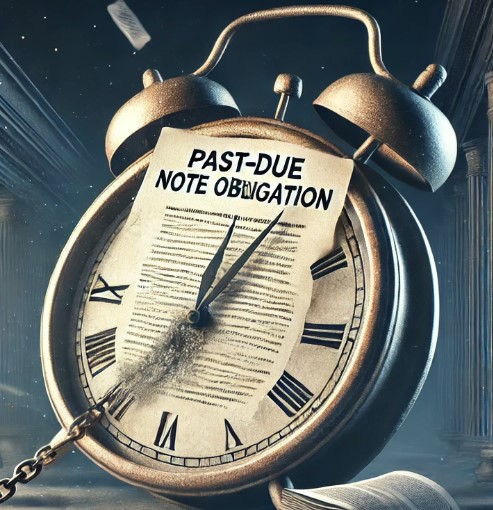 This notice, under Fifth Circuit precedent, abandoned the lender’s intent to accelerate a note obligation:
This notice, under Fifth Circuit precedent, abandoned the lender’s intent to accelerate a note obligation:
To the extent you have received demand letters with intent to accelerate the obligations under the above subject Note and any notice of acceleration of said Note prior to the date of this demand letter, be advised that any such demands or notices of acceleration have been withdrawn, cancelled, and abandoned.
No. 23-50662 (Dec. 20, 2024) (emphasis in original). The opinion discusses how the Circuit’s “rule of orderliness” applies to the issue at hand.
 The case of Chaudhary Law Firm, P.C. v. Ali reminds: “It is more than well-settled that only an aggrieved party may appeal a judgment.” A party is not considered “aggrieved” if they have received a favorable judgment, even if the trial court made subsidiary findings or conclusions that were unfavorable to them.
The case of Chaudhary Law Firm, P.C. v. Ali reminds: “It is more than well-settled that only an aggrieved party may appeal a judgment.” A party is not considered “aggrieved” if they have received a favorable judgment, even if the trial court made subsidiary findings or conclusions that were unfavorable to them.
The Court emphasized that “appellate courts review judgments, not opinions,” and a winning party “may not appeal for the sole purpose of seeking a more favorable opinion from the [trial] court.” The Court noted some situations that could warrant a relaxation of this principle, none of which were present in this case, where the defendant law firm obtained complete dismissal on the merits. No. 23-20362 (Dec. 9, 2024).
The appellants in Legacy Recovery Servcs, LLC v. City of Monroe tried mightily, but was unable to persuade the Fifth Circuit that it had appellate jurisdiction over an order that partially granted and denied motions to dismiss.
The appellants argued that the ruling was an appelable collateral order. The Court saw otherwise, holding that the order did not “conclusively determine the disputed question” because it dismissed some claims while retaining others. Exercising jurisdiction over such an order risked encouraging piecemeal appeals that would require the Court to review the same intertwined claims multiple times.
Also, the issues resolved by the district court were not “completely separate from the merits of the action.” The dismissed and retained claims were based on the same statutes, and thus interwoven with the issues left before the district court.
Lastly, the Court held that the order was not “effectively unreviewable on appeal from a final judgment,” pointing out that if the appellants’ concerns were valid, the Court could vacate the judgment and order a new trial after final judgment. No. 24-30211 (Nov. 6, 2024).
The party-presentation principle made an appearance yesterday in the “buoy case,” United States v. Abbott.
The specific issue is unique to this case, but the level of generality at which the Court identified the problem is of broader interest. Cf. United Natural Foods, Inc. v. NLRB, 66 F.4th 536, 556 (5th Cir. 2023) (Oldham, J., dissenting) (“Does anyone think that, when a party presents legal question X for decision in federal court, a federal judge is somehow disabled from reading any case, statute, regulation, or other authority not cited in the party’s brief? Of course not. We are duty-bound to understand the legal questions presented to us—even when a party presents a question less than perfectly.”).
(To learn more about this elusive but important principle, you can read my recent article in the Cornell Law Review Online).
Airlines for Am. v. Dep’t of Transp. illustrates how the issue of interim appellate relief stays (rimshot) in flux. The panel majority said:
Several airlines and airline associations seek a stay pending review of a recent Department of Transportation (“DOT”) Rule that regulates how airlines disclose fees to consumers during the booking process. Finding the Rule likely exceeds DOT’s authority and will irreparably harm airlines, we GRANT the requested stay and EXPEDITE the petition for review.
A third judge would have taken a more staid approach:
In Lewis v. Crochet, the Fifth Circuit found that a ruling about the attorney-client privilege was properly appealed under the “collateral order” doctrine, applying Mohawk Indus. v. Carpenter, 558 U.S. 100, 103 (2009).
Lest one think the law of adminstrative stays had become more settled with time, MCR Oil Tools, LLC v. U.S. Dep’t of Transp. reminds otherwise. The manufacturer of a torch used in oil drilling challenged a new safety regulation on its product. The three judges on the panel reacted in different ways:
- The majority opinion defers the motion for stay to the next available argument panel;
- A dissent emphasized the need for immediate action, given the regulation’s effect on significant outstanding orders;
- A concurrence analogized the case to a recent challenge to the Texas ban on drag shows.
No. 24-60230 (May 23, 2024).
 In Wilmington Savings Fund Society, FSB v. Myers, the appellant argued that its notice of appeal was timely, when filed within 30 days of a second judgment, and when the first judgment “was mislabeled because even though it purported to dispose of all claims and parties in the case, the title of the order did not signal that it was a final judgment.”
In Wilmington Savings Fund Society, FSB v. Myers, the appellant argued that its notice of appeal was timely, when filed within 30 days of a second judgment, and when the first judgment “was mislabeled because even though it purported to dispose of all claims and parties in the case, the title of the order did not signal that it was a final judgment.”
The Fifth Circuit agreed. Noting that “[o]rdinarily, such minor changes to an order do not ‘disturb or revise legal rights and obligations’ of the parties” (cleaned up), it concluded that “there was in this case a clear discrepancy between the label and the body of the district court’s order” that was sufficient to treat it as a substantive revision for purposes of calculating the appeal deadline. No. 24-20018 (March 18, 2024) (applying FTC v. Minneapolis-Honeywell Regulator Co., 344 U.S. 206, 211 (1952)).
(The graphic was provided by DALL-E, and explained by it as follows: “The images above illustrate the concept of a substantive change versus a change solely of form, through the comparison of a caterpillar’s transformation into a butterfly (substantive change) and a chameleon’s color change (change of form).”
The Fifth Circuit reminded about the basics of issue statements in Smith v. Delta Charter Group, Inc.:
Delta also forfeited its argument that the district court should have instead applied Rule 54(b). Delta didn’t include this argument in its “Statement of the Issue” or in the body of its opening brief—rather, Delta relegated it to a footnote. We have repeatedly cautioned that arguments appearing only in footnotes are “insufficiently addressed in the body of the brief” and are thus forfeited. Delta’s Rule 54(b) argument meets this predictable fate.
No. 23-30063 (Dec. 13, 2023). Note that this is NOT a criticism of the “citational footnote”–and in fact, the concept of the citational footnote rejects this sort of stealthy, footnote-only legal argument.
“Here, ‘all parties have agreed from the beginning of this case that Houston’s voter registration provisions governing circulators’ are unconstitutional. The City also agreed that it ‘would and could not enforce the provisions.’ The City has repeatedly and consistently emphasized its agreement with the plaintiffs throughout this suit. Such faux disputes do not belong in federal court.”
Pool v. City of Houston, No. 22-20491 (Dec. 11, 2023) (citations omitted).
 A series of cases about the EPA’s regulation of small refineries led to a disagreement about Circuit venue over this kind of administrative-agency challenge. A majority appled a two-part test focused on whether the agency action was “nationally applicable”; the dissent rejected the majority’s analysis as inconsistent with statutory text, purpose, and structure. No. 22-60266 etc. (Nov. 22, 2023).
A series of cases about the EPA’s regulation of small refineries led to a disagreement about Circuit venue over this kind of administrative-agency challenge. A majority appled a two-part test focused on whether the agency action was “nationally applicable”; the dissent rejected the majority’s analysis as inconsistent with statutory text, purpose, and structure. No. 22-60266 etc. (Nov. 22, 2023).
 The question in Elmen Holdings, LLC v. Martin Marietta Mat’ls, Inc. was whether a gravell-mining lease had terminated. The district court included that it had been terminated, and the appellant’s first issue was that the court’s analysis went too far under the “party-presentation” principle — a concept given new life and relevance by United States v. Sineneng-Smith, 140 S. Ct. 1575 (2020).
The question in Elmen Holdings, LLC v. Martin Marietta Mat’ls, Inc. was whether a gravell-mining lease had terminated. The district court included that it had been terminated, and the appellant’s first issue was that the court’s analysis went too far under the “party-presentation” principle — a concept given new life and relevance by United States v. Sineneng-Smith, 140 S. Ct. 1575 (2020).
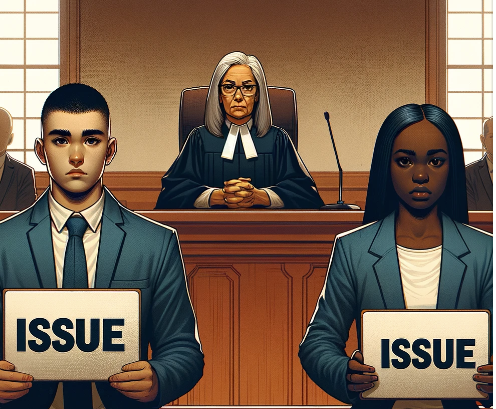 The Fifth Circuit concluded that while the appellant’s argument “had some merit,” the trial court did not go too far:
The Fifth Circuit concluded that while the appellant’s argument “had some merit,” the trial court did not go too far:
“[T]he magistrate judge recommended granting Elmen’s motion for summary judgment because Martin Marietta had been late on several royalty payments. The magistrate judge did not ‘radical[ly] transform[]’ this case to such an extent as to constitute an abuse of discretion; she merely took a different route than Martin Marietta and Elmen had suggested to ;decide . . . questions presented by the parties.’ Therefore, the magistrate judge did not violate the party presentation principle by interpreting the Gravel Lease to terminate automatically upon a missed royalty payment, even if that interpretation was contrary to the parties’ reading of their contract.”
No. 23-20023 (Nov. 15, 2023); cf. United Natural Foods v. NLRB, 66 F.4th 536 (5th Cir. 2023) (majority and dissent disagree about whether a particular line of argument is allowed by the party-presentation principle).
During an Erie analysis of a Louisiana-law issue, the Fifth Circuit observed: “We are ‘a strict stare decisis court,’ meaning that a prior panel’s interpretation of state law is ‘no less binding on subsequent panels than are prior interpretations of federal law.'” QBE Syndicate 1036 v. Compass Minerals Louisiana, Inc., No. 23-30076 (Oct. 12, 2023). What distinguishes a “strict stare decisis court” from a less-strict one is not entirely clear, but the application of the “rule of orderliness” to state-law issues is well settled.
The remand of Collins v. Yellen, 141 S. Ct. 1761 (2020) did not end well for the plaintiffs, as the district court concluded that they “had not plausibly alleged that the removal restriction” on FHFA’s director caused them harm. The plaintiffs made a valiant effort to bring the case within the scope of a recent Fifth Circuit holding about the Appropriations Clause, but the Fifth Circuit found that its holding in that case did not create a change in the relevant law that was sufficient to overcome the mandate rule. Collins v. Dep’t of the Treasury, No. 22-20632 (Oct. 12, 2023).
SXSW, LLC v. Federal Ins. Co., an insurance-coverage case arising out of the 2020 cancellation of South by Southwest because of COVID-19, presented some “evergreen” issues about LLCs and diversity jurisdiction that led to a remand for further development of the record. The Fifth Circuit noted “at least three potential jurisdictional
defects” on the record presented–
- “First, there is a potentially important difference between LLC membership and LLC ownership. State law governs LLC formation and organization. Several states permit LLC membership without ownership. … SXSW has not shown the relevant LLCs were formed in States that equate membership and ownership.”
- “Second, SXSW stated that Capshaw [an LLC owner] was a Virginia resident. But residency is not citizenship for purposes of § 1332.”
- “Finally, there is a timing issue. For diversity jurisdiction, we look to citizenship at the time the complaint was filed. The complaint makes no allegations about the citizenship of SXSW’s members. Federal’s December 14, 2021 exhibit contains some additional information, as does SXSW’s February 22, 2023 appellant brief.But we have no way of knowing whether those later documents reflect SXSW’s membership structure as of October 6, 2021.”
No. 22-50933 (Oct. 5, 2023) (citations omitted, emphasis added).
Missouri v. Biden, No. 23-30445, presents a high-profile dispute about coordination betwen the federal government and social media platforms to address misinformation. A district court in Louisiana issued an injunction against such coordination and the federal government appealed. That appeal, as do many significant constitutional disputes, implicated the division of responsibility between an initial “administrative stay,” a later “stay pending appeal,” and the resolution of the merits of the appeal. For this case, a Fifth Circuit panel resolved that matter with this order:
 In a recent analysis of a sanctions order, the Fifth Circuit provided an instructive example of an argument that withstood a forfeiture objection:
In a recent analysis of a sanctions order, the Fifth Circuit provided an instructive example of an argument that withstood a forfeiture objection:
“Ticket argues that CEATS forfeited the bad-faith argument by failing to assert it in the district court. While it is true that we tend not to entertain arguments that a party asserts for the first time on appeal, ‘an argument is not [forfeit]ed on appeal if the argument on the issue before the district court was sufficient to permit the district court to rule on it.’ Here, CEATS told the district court that a discovery violation ‘must be committed willfully or in bad faith for the court to award the severest remedies available under Rule 37(b).’ CEATS also argued that it did not violate the Protective Order willfully or in bad faith, because the ‘communications … were clearly inadvertent.’ That argument was enough to put the district court on notice that CEATS opposed any definition of ‘bad faith’ that includes inadvertent conduct.”
CEATS, Inc. v. TicketNetwork, Inc., No. 21-40705 (June 19, 2023) (citations and footnotes omitted). (This analysis has an interesting analog in the recent case of United Natural Foods, Inc. v. NLRB, where the majority and dissent disputed whether a particular issue was raised for purposes of the “party presentation” principle).
In Norsworthy v. Houston ISD, the Fifth Circuit acknowledged a recent amendment to Fed. R. App. P. 3(c) about the requirements for a notice of appeal.
In this case, the appellant’s notice of appeal named its Rule 59 motion to alter amend, not the final judgment itself. Under the earlier rule, that language could have given rise to a waiver issue. But a 2021 amendment says that “a notice of appeal encompasses the final judgment,” so long as the notice designates an order named in Fed. R. App. P. 4(a)(4)(A), which lists the standard post-trial motions. No. 22-20586 (June 13, 2023).
In Ortiz v. Jordan, 562 U.S. 180 (2011), the Supreme Court “held that an order denying summary judgment on sufficiency of the evidence grounds is not apealable after a trial …. a party who wants to preserve a sufficiency challenge for appeal must raise it anew in a post-trial motion.”
In Dupree v. Younger, No. 22-210 (May 25, 2023): “The question presented in this case is whether this preservation requirement extends to a purely legal issue resolved at summary judgment. The answer is no.
That distinction makes sense and should help avoid unnecessary disputes about preservation. There will, however, be disputes about “sufficiency” questions that turn on points of law; as illustrated by the longstanding definition of a “no evidence” appeal issue in Texas state practice:
“No evidence” points must, and may only, be sustained when the record discloses one of the following situations: (a) a complete absence of evidence of a vital fact; (b) the court is barred by rules of law or of evidence from giving weight to the only evidence offered to prove a vital fact; (c) the evidence offered to prove a vital fact is no more than a mere scintilla; (d) the evidence establishes conclusively the opposite of the vital fact.
City of Keller v. Wilson, 168 S.W.3d 802 (Tex. 2005).
It was a busy week for legislative privilege; after an opinion involving the latest dispute about the Jackson airport, the Fifth Circuit again ruled in favor of legislative-privilege claims in LULAC v. Hughes. The Court held that such matters were appropriately raised by interlocutory appeal, and on the merits observed:
“The privilege log shows that the legislators did not send privileged documents to third parties outside the legislative process; instead they brought third parties into the process. That decision did not waive the privilege. The very fact that Plaintiffs need discovery to access these documents shows that they have not been shared publicly. On the other hand, if the legislators had shared the documents publicly, then they could not rely on the privilege to prevent Plaintiffs from introducing those documents as evidence. But here, where the documents have been shared with some third parties—but haven’t been shared publicly—the waiver argument fails.”
No. 22-50435 (May 17, 2023) (emphasis in original).
United Natural Foods, Inc. v. NLRB, No. a seemingly dry dispute about whether NLRB’s general counsel could withdraw an unfair labor practice complaint, produced a spirited clash between majority and dissent about how the “party presentation” principle applied to the arguments advanced in that case (see United States v. Sineneng-Smith, 140 S.Ct. 1575 (2020)). No. 21-60532 (April 24, 2023).
Despite that clash, all panel members agreed that simply throwing shade at Chevron was insufficient to present an issue for appellate review:
 The Fifth Circuit recently summarized the sometimes-confusing law about when an adverse ruling about a grand-jury subpoena may be appealed:
The Fifth Circuit recently summarized the sometimes-confusing law about when an adverse ruling about a grand-jury subpoena may be appealed:
Our jurisdiction is generally limited to reviewing final decisions of a district court. This rule applies to appeals of orders issued in grand jury proceedings. There are two exceptions. First, if a witness chooses not to comply with a grand jury subpoena compelling production of documents and is held in contempt, that witness may immediately appeal the court’s interlocutory order. Second, under what is called the Perlman doctrine, a party need not be held in contempt prior to filing an interlocutory appeal if “the documents at issue are in the hands of a third party who has no independent interest in preserving their confidentiality.
In re Grand Jury Subpoena, No. 21-30705 (Dec. 14, 2022). (At least in theory, a mandamus petition may also be available in this setting, see generally David Coale, Five Years After Mohawk, 34 Rev. Litig. 1 (2015)).
 iiiTec v. Weatherford Technology Holdings presents a series of unfortunate events that led to dismissal of an appeal.
iiiTec v. Weatherford Technology Holdings presents a series of unfortunate events that led to dismissal of an appeal.
- “iiiTec filed two motions on July 23, 2021, the twenty-eighth day after judgment. The first was a request to exceed the page limit on its proposed Rule 59/60 motion; the second was a short 14-page motion to alter the judgment. A request for leave to file is not one that can toll the deadline to appeal, but a motion to alter is.” (footnote omitted). So far, so good. But then …
- “[W]hen the court struck iiiTec’s motion to alter on October 4, the deadline to appeal reset to thirty days later on November 3. But by that date, iiiTec still had not filed its notice of appeal; it had only filed another Rule 59/60 motion to reconsider. Under Rule 59, the motion was untimely for exceeding the strict 28-day period to file; and under Rule 60, the motion could not toll the deadline because it was filed more than 28-days after final judgment.” (footnote omitted).
No. 22-20076 (Dec. 27, 2022, unpublished).
 In Rhone v. City of Texas City, the Fifth Circuit denied a request for emergency relief without prejudice, first describing the controlling rules:
In Rhone v. City of Texas City, the Fifth Circuit denied a request for emergency relief without prejudice, first describing the controlling rules:
[Fed. R. App. P. ] 8(a)(1) states that “[a] party must ordinarily move first in the district court for … (A) a stay of the judgment or order of a district court pending appeal.” Rule 8(a)(2) provides, however that “[a] motion for the relief mentioned in Rule 8(a)(1) may be made to the court of appeals or to one of its judges.” That provision is subject to a requirement that “[t]he motion must: (i) show that moving first in the district court would be impracticable; or (ii) state that, a motion having been made, the district court denied the motion or failed to afford the relief requested and state any reasons given by the district court for its action.” Rule 8(a)(2)(A).
Applying those rules, the Court concluded:
In this case, Rhone has moved for relief from judgment in the district court and no ruling has been made. As such, this motion is premature. Therefore, the motion before us is denied without prejudice. Should the district court deny Rhone’s pending motion, Rhone may revive the motion in this Court.
No. 22-40551 (Sept. 19, 2022, unpublished).
 A surprising amount of case law addresses not whether a particular legal conclusion is correct, but whether it is “correct enough”–qualified immunity, for example, as well as mandamus cases about whether a “clear error” occurred in applying the law. Another such area involves whether the Fifth or the Federal Circuit has appellate jurisdiction over “Walker Process cases”–antitrust claims based on enforcement of a fraudulent patent. In Chandler v. Phoenix Services LLC, the Fifth Circuit held:
A surprising amount of case law addresses not whether a particular legal conclusion is correct, but whether it is “correct enough”–qualified immunity, for example, as well as mandamus cases about whether a “clear error” occurred in applying the law. Another such area involves whether the Fifth or the Federal Circuit has appellate jurisdiction over “Walker Process cases”–antitrust claims based on enforcement of a fraudulent patent. In Chandler v. Phoenix Services LLC, the Fifth Circuit held:
“We differ with the Federal Circuit over whether we have appellate jurisdiction over Walker Process cases. But the Supreme Court has told us to accept circuit-to-circuit transfers if the jurisdictional question is ‘plausible.’ While we continue to disagree with the Federal Circuit on this point, we do not find the transfer implausible. We therefore accept the case and affirm the district court’s judgment.”
No. 21-10626 (Aug. 15, 2022) (citations omitted).
Sambrano v. United Airlines, a religious-discrimination case about an airline’s vaccine mandate that prompted a (literally) fiery dissent from the panel opinion, ended in a 13-4 vote against en banc review. A dissent again urged caution in the use of unpublished (and thus, nonprecedential) opinions in significant matters. No. 21-11159 (Aug. 18, 2022).
“A bench ruling can be effective without a written order and does trigger appeal deadlines if it is final—which this ruling was. While Guerra is right that the district court’s bench ruling did not comply with [Fed. R. Civ. P.] 58’s ‘separate document’ requirement, that neither prevented him from appealing nor gave him infinite time to appeal.” Ueckert v. Guerra, No. 22-40263 (June 27, 2022).
 An interlocutory appeal had some matters entangled with it in Jiao v. Xu (not unlike the quantum entanglement recently photographed for the first time, right):
An interlocutory appeal had some matters entangled with it in Jiao v. Xu (not unlike the quantum entanglement recently photographed for the first time, right):
“The preliminary injunction is an interlocutory order made appealable by 28 U.S.C. § 1292(a)(1). The declaratory relief constitutes a final order, and we have appellate jurisdiction under 28 U.S.C. § 2201. The turnover order is likewise final, and we have appellate jurisdiction to review it under 28 U.S.C. § 1291. Typically, we would not have jurisdiction over the district court’s
denial of Xu’s motion to dismiss. But to the extent the
underpinnings of Xu’s motion are inextricably intertwined with the district court’s subsequent rulings challenged on appeal, we determine that we have jurisdiction to address those issues. See Magnolia Marine Transp. Co. v. Laplace Towing Corp., 964 F.2d 1571, 1580 (5th Cir. 1992) (‘[O]ur jurisdiction is not limited to the specific [injunctive] order appealed from, and we may review all matters which establish the immediate basis for granting injunctive relief.’); see also In re Lease Oil Antitrust Litig. (No. II), 200 F.3d 317, 320 (5th Cir. 2000) (reaching denial of motion to dismiss as part of § 1292(a)(1) appeal where issues were ‘so entangled as to arrive here together’ and ‘[d]elaying review . . . would make no practical sense’).”
No. 20-20106 (March 11, 2022) (emphasis added, footnote and certain citations omitted).
 While expediting consideration of the merits, a Fifth Circuit panel declined to stay a national injunction against a vaccination requirement for federal employees; a detailed dissent would have granted an interim stay of the injunction. Feds for Medical Freedom v. Biden, No. 20-30090 (Feb. 11, 2022). A thorough (albeit, highly partisan) article about the case recently appeared in Slate.
While expediting consideration of the merits, a Fifth Circuit panel declined to stay a national injunction against a vaccination requirement for federal employees; a detailed dissent would have granted an interim stay of the injunction. Feds for Medical Freedom v. Biden, No. 20-30090 (Feb. 11, 2022). A thorough (albeit, highly partisan) article about the case recently appeared in Slate.
 “Most of Sea Wasp’s appeal challenges the district court’s summary judgment rulings finding it liable under both federal and state law. Despite those rulings, however, the court ultimately entered a judgment ‘that Plaintiff takes nothing and that Plaintiff’s case against Defendant is DISMISSED WITH PREJUDICE.’ In other words, Sea Wasp won the war even if it lost some battles along the way. Because the final judgment was a full victory for Sea Wasp, it is not an aggrieved party entitled to bring a cross appeal.” Domain Protection LLC v. Sea Wasp, LLC, No. 20-40411 (Jan. 13, 2022) (emphasis added).
“Most of Sea Wasp’s appeal challenges the district court’s summary judgment rulings finding it liable under both federal and state law. Despite those rulings, however, the court ultimately entered a judgment ‘that Plaintiff takes nothing and that Plaintiff’s case against Defendant is DISMISSED WITH PREJUDICE.’ In other words, Sea Wasp won the war even if it lost some battles along the way. Because the final judgment was a full victory for Sea Wasp, it is not an aggrieved party entitled to bring a cross appeal.” Domain Protection LLC v. Sea Wasp, LLC, No. 20-40411 (Jan. 13, 2022) (emphasis added).
 A footnote in June Medical Services v. Phillips detailed the Fifth Circuit’s procedures for documents sealed in the trial court.
A footnote in June Medical Services v. Phillips detailed the Fifth Circuit’s procedures for documents sealed in the trial court.
“When presented with an appeal, we routinely unseal documents that were sealed in the district court when those documents are used on appeal and there is no legal basis for sealing. Indeed, we often do this sua sponte. In [one recent case], he district court sealed parts of the record pursuant to a stipulated protective order ‘in an effort to accommodate the defendant’s concerns about its trade secrets becoming public.’ Notwithstanding the stipulated protective order in that case, this court denied the appellant’s unopposed motion to place record excerpts under seal and ordered that the record excerpts be unsealed. . Indeed, when parties in this court seek to file documents under seal on appeal, the clerk’s office sends them a standard letter that requires them to ‘explain in particularity the necessity for sealing in this court. Counsel do not satisfy this burden by simply stating that the originating court sealed the matter, as the circumstances that justified sealing in the originating court may have changed or may not apply in an appellate proceeding.””
No. 21-30001-CV (Jan. 7, 2022) (citations omitted).
In DeOtte v. State of Nevada, the district court’s injunction about the contraceptive mandate in the Affordable Care Act became moot after a 2020 Supreme Court opinion. The State of Nevada, a latecomer to the case, sought vacatur of the injunction.
The Fifth Circuit summarized the applicable principles. Its “authority to vacate comes from [28 U.S.C. § 2106] that provides that an appellate court ‘may affirm, modify, vacate, set aside or reverse any judgment, decree, or order of a court lawfully brought before it for review.'” (emphasis omitted). Under that statute:
“[V]acatur is not automatic; it is ‘equitable relief’ and must ‘take account of the public interest.’ Precedents ‘are not merely the property of private litigants and should stand unless a court concludes that the public interest would be served by a vacatur.’ A court must assess ‘the equities of the individual case’ to determine whether vacatur is proper. This consideration centers on (1) ‘whether the party seeking relief from the judgment below caused the mootness by voluntary action’; and (2) whether public interests support vacatur.”
(citations omitted). After a thorough review of Nevada’s unusual procedural position in the case, the Court found that Nevada had standing (in the language of the statute, had “lawfully brought” the appeal), and granted Nevada the requested relief of vacatur. No. 19-10754 (Dec. 17, 2021).
In a challenge to the constitutionality of the “eviction moratorium,” the federal government argued that the case had become moot because the specific order at issue had expired. The Fifth Circuit expressed skepticism:
“Appellees respond that the appeal is not moot because the parties still dispute whether the government has constitutional power under the Commerce Clause to invade individual property rights by limiting landlords’ use of state court eviction remedies. The government maintains it has such authority. And in the government’s view, espoused at oral argument, that constitutional power is in no way limited to combatting the ongoing pandemic; the government asserts it can wield that staggering constitutional authority for any reason. Appellees further contend the proposed dismissal is a pretext to avoid appellate review of the constitutional question.”
(emphasis added). The court concluded, however, that it did not need to address mootness because it was granting the government’s motion to dismiss “on terms . . . fixed by the court” under FRAP 42. Those terms included the “express condition” that ‘”our dismissal does not abrogate the district court’s judgment or opinion, both of which remain in full force according to the express concession of the government during oral argument and in briefing.” Terkel v. Centers for Disease Control, No. 21-40137 (Oct. 19, 2021) (One panelist joined the result only.)
Zurich won an insurance coverage dispute with Maxim Crane. On appeal, in addition to defending the merits, Zurich argued that the matter should be dismissed entirely because Maxim lacked standing. This argument led to the question whether a cross-appeal was needed to make that point, and the Fifth Circuit concluded:
… although our judgment would be different if we credited Zurich’s standing argument, that does not mean that Zurich needed to file a cross-appeal to present that argument. To be sure, as a matter of standard appellate practice, “[m]any cases state the general rule that a cross-appeal is required to support modification of the judgment,” whereas “arguments that support the judgment as entered can be made without a cross-appeal.” (quoting [Wright & Miller]). But this case falls within an exception to that general rule. A cross-appeal “is not necessary to challenge the subject-matter jurisdiction of the district court, under the well-established rule that both district court and appellate courts are obliged to raise such questions on their own initiative.” Id.
Maxim Crane Works LP v. Zurich Am. Ins. Co., No. 19-20489 (Aug. 20, 2021) (ultimately, certifying the underlying coverage issue to the Texas Supreme Court).
 Official Committee of Unsecured Creditors v. Walker County Hosp. Dist. presented a debtor’s challenge to the terms of a bankruptcy court’s sale order. The Fifth Circuit dismissed: “In this opinion, we have held that § 363(m) forecloses the creditor’s appeal because it failed to seek the required stay of the Sale Order. Established precedent leads us to this conclusion, and the Committee’s argument that it appealed an order not subject to § 363(m) is unpersuasive. In short: no stay, no pay.” No. 20-20572 (July 12, 2021) (emphasis added).
Official Committee of Unsecured Creditors v. Walker County Hosp. Dist. presented a debtor’s challenge to the terms of a bankruptcy court’s sale order. The Fifth Circuit dismissed: “In this opinion, we have held that § 363(m) forecloses the creditor’s appeal because it failed to seek the required stay of the Sale Order. Established precedent leads us to this conclusion, and the Committee’s argument that it appealed an order not subject to § 363(m) is unpersuasive. In short: no stay, no pay.” No. 20-20572 (July 12, 2021) (emphasis added).
 The Fifth Circuit granted a stay during appeal in a challenge to a Texas JP’s practices regarding an invocation at the beginning of court proceedings: “In deciding whether to grant a stay pending appeal, we consider four factors: ‘(1) whether the stay applicant has made a strong showing that he is likely to succeed on the merits; (2) whether the applicant will be irreparably injured absent a stay; (3) whether issuance of the stay will substantially injure the other parties interested in the proceeding; and (4) where the public interest lies.’ All four factors favor Judge Mack.” The Court found a “manifestly erroneous” analysis of Ex Parte Young by the district court, which guided the application of the remaining factors in the appellant’s favor. Freedom From Religion Foundation v. Mack, No. 21-20279 (July 9, 2021).
The Fifth Circuit granted a stay during appeal in a challenge to a Texas JP’s practices regarding an invocation at the beginning of court proceedings: “In deciding whether to grant a stay pending appeal, we consider four factors: ‘(1) whether the stay applicant has made a strong showing that he is likely to succeed on the merits; (2) whether the applicant will be irreparably injured absent a stay; (3) whether issuance of the stay will substantially injure the other parties interested in the proceeding; and (4) where the public interest lies.’ All four factors favor Judge Mack.” The Court found a “manifestly erroneous” analysis of Ex Parte Young by the district court, which guided the application of the remaining factors in the appellant’s favor. Freedom From Religion Foundation v. Mack, No. 21-20279 (July 9, 2021).
The Supreme Court affirmed the Fifth Circuit’s analysis of appellate costs (often a trivial issue, but here involving over $2 million in supersedeas-bond premiums) in City of San Antonio v. Hotels.com, stating: “[W]e hold that courts of appeals have the discretion to apportion all the appellate costs covered by Rule 39 and that district courts cannot alter that allocation.” No. 20–334 (U.S. May 27, 2021). (It remains to be seen how the Roberts Court will review other, more politically charged opinions from the Fifth Circuit this term.)
 During the course of a long-running contract dispute, the Fifth Circuit remanded the case for further development of the record about diversity jurisdiction. Problems with appellate deadlines for a later appeal ensued; in reviewing the parties’ arguments the Court noted:
During the course of a long-running contract dispute, the Fifth Circuit remanded the case for further development of the record about diversity jurisdiction. Problems with appellate deadlines for a later appeal ensued; in reviewing the parties’ arguments the Court noted:
- “Full” v. “partial” remand. “It is true that in some cases where this court has remanded with a specific directive to the district court, we have retained jurisdiction over the appeal, obviating the need for the appellant to file a new notice of appeal after the district court’s remand proceedings. However, in those cases, this court specified that we retained jurisdiction over the appeal.”
- Effect of an attorneys-fee appeal. “[W]hen the merits judgment has already become final and unappealable, a mere delay of that judgment is no longer possible, and the court lacks any authority under FRAP 4(a)(4)(A)(iii) and FRCP 58[(e)] to modify the finality or the effect of the merits judgment.” (citation omitted).
- Good cause is not GOOD CAUSE. “Rule 4(a)(5), unlike Rule 4(a)(4)(A)(iii) and Rule 58(e), does allow a district court to revive an untimely notice of appeal after the original time to appeal has expired. … Pathway’s motion cannot be construed as a Rule 4(a)(5) motion, however. The extension motion cites Rule 58(e) rather than Rule 4(a)(5), and its arguments are relevant only to the former ….”
Midcap Media Finance LLC v. Pathway Data, Inc., No. 20-50259 (April 20, 2021).
 While written in a criminal appeal, Judge Oldham’s recent concurrence about specificity in error preservation is of broad general interest; he concludes:
While written in a criminal appeal, Judge Oldham’s recent concurrence about specificity in error preservation is of broad general interest; he concludes:
“[A] general declaration of ‘insufficient evidence!’ is not a meaningful objection. It challenges no particular legal error. It identifies no particular factual deficiency. It does nothing to focus the district judge’s mind on anything. It’s the litigator’s equivalent of freeing the beagles in a field that might contain truffles. Cf. del Carpio Frescas, 932 F.3d at 331 (“Judges are not like pigs, hunting for truffles buried in the record.” (quotation omitted)). Rather, if the defendant wants to preserve an insufficient-evidence challenge for de novo review, he must make a proper motion under Federal Rule of Criminal Procedure 29 and ‘specify at trial the particular basis on which acquittal is sought so that the Government and district court are provided notice.'”
United States v. Kieffer, No. 19-30225-CR (March 19, 2021). Notes: (1) A big 600Camp thanks to Jeff Levinger for drawing my attention to this case, and (2) Judge Oldham correctly notes that beagles are superior to pigs for finding truffles, as pigs tend to eat the valuable truffles after locating them.
An unusual Fed. R. Civ. P. 60(b)(5) proceeding did not create appellate jurisdiction: “This case does not yet involve a final determination of the status of the interpleaded funds. Instead, it involves Rule 60(b)(5) relief from a prior order to disburse funds. The district court was not disbursing funds to the other party, but merely ordering that they be returned to the court’s registry pending the outcome of the state court action on remand. As the district court said, there has been no decision on who is entitled to the money. The final judgment has been set aside. Thus, this court lacks jurisdiction to hear this appeal.” Reed Migraine Centers of Texas v. Chapman, No. 20-10156 (Jan. 28, 2021).
 “Mindful of the fundamental right to fairness in every proceeding–both in fact, and in appearance,” the Fifth Circuit reversed the outcome in a Title VII dispute, and ordered the reassignment to a new district judge on remand, when:
“Mindful of the fundamental right to fairness in every proceeding–both in fact, and in appearance,” the Fifth Circuit reversed the outcome in a Title VII dispute, and ordered the reassignment to a new district judge on remand, when:
From the outset of these suits, the district judge’s actions evinced a prejudgment of Miller’s claims. At the beginning of the Initial Case Management Conference, the judge dismissed sua sponte Miller’s claims against TSUS and UHS, countenancing no discussion regarding the dismissal. Later in the same conference, the judge responded to the parties’ opposition to consolidating Miller’s two cases by telling Miller’s counsel, “I will get credit for closing two cases when I crush you. . . . How will that look on your record?”
And things went downhill from there. The court summarily denied Miller’s subsequent motion for reconsideration, denied Miller’s repeated requests for leave to take discovery (including depositions of material witnesses), and eventually granted summary judgment in favor of SHSU and UHD, dismissing all claims.”
Miller v. Sam Houston State, No. 19-20752 (Jan. 29, 2021).
The panel in Gonzalez v. CoreCivic, Inc., No. 19-50691 (Jan. 20, 2021), in the context of an interlocutory appeal certified under 28 USC § 1292, affirmed the denial of a motion to dismiss a claim based on the Trafficking Victims Protection Act of 2000. That law imposes civil liability on on e who “knowingly provides or obtains the labor or services of a person” by certain coercive means. The panel found that the text of the statute unambiguously reached the plaintiffs’ claims against a private company that operated detention facilities for ICE.
A dissent would have found that the plaintiff did not adequately state her claim under Twombly and Iqbal; in response, a concurrence argued that the concept of “party presentation” foreclosed the Court’s review of that matter. North Texas practitioners will recognize echoes of the debate among Justices about supplemental briefing from the Flakes litigation.
Did that recent SCOTUS opinion overrule older Circuit authority? “If a
precedent of this Court has direct application in a case, yet appears to rest on
reasons rejected in some other line of decisions, the Court of Appeals should
follow the case which directly controls, leaving to this Court the prerogative
of overruling its own decisions.” Baisley v. Int’l Assoc. of Machinists & Aerospace Workers, No. 20-50319 (Dec. 22, 2020) (quoting Rodriguez de Quijas v. Shearson/American Express, Inc., 490 U.S. 477, 484 (1989)).
“When Amazon allows third parties to sell products on its website, is Amazon ‘placing’ products into the stream of commerce or merely ‘facilitating’ the stream? If the former, then Amazon is a ‘seller’ under Texas products-liability law and potentially liable for injuries caused by unsafe products sold on its website. But if Amazon only facilitates the stream when it hosts third-party vendors on its platform, then it is not a seller, meaning injured consumers cannot sue for alleged product defects.” The Fifth Circuit certified this important issue to the Texas Supreme Court in McMillian v. Amazon, No. 20-20108 (Dec. 18, 2020).
Practice tip: In the Court’s review of whether the issue warranted certification, it noted that both parties had agreed that there was “substantial ground for difference of opinion” in order to proceed with an interlocutory appeal under 28 U.S.C. § 1292(b).
Automation Support, Inc. v. Philippi, No. 20-10386 (Dec. 8, 2020).
The dry-sounding issue before the en banc court in Planned Parenthood v. Kauffman, No. 17-50282 (Nov. 23, 2020), was “whether 42 U.S.C. § 1396a(a)(23) gives Medicaid patients a right to challenge, under 42 U.S.C. § 1983, a State’s determination that a health care provider is not ‘qualified’ within the meaning of § 1396a(a)(23).” The practical consequence of that issue, however, is significant–who may sue about Texas’s termination of several Planned Parenthood facilities from that state’s Medicaid program.
The majority held that under a 1980 Supreme Court case and the structure of the statute, the patients did not have the right to sue. In so doing, the Fifth Circuit joined the Eighth Circuit and split with five others. A 7-judge concurrence (2 votes shy of a majority, given the configuration of the en banc court for this case) would have reached the merits and rejected them. The opinions are illustrated in the chart below:
 Richardson v. Flores reviewed the standards for intervention into an ongoing appeal, noting: “There is no appellate rule allowing intervention generally. Instead, the Federal Rules of Appellate Procedure contemplate intervention only in
Richardson v. Flores reviewed the standards for intervention into an ongoing appeal, noting: “There is no appellate rule allowing intervention generally. Instead, the Federal Rules of Appellate Procedure contemplate intervention only in
proceedings to review agency action. Fed. R. App. P. 15(d). But despite the lack of an on-point rule, we have allowed intervention in cases outside the scope of Rule 15(d). . . . Perhaps because there is no rule explicitly allowing intervention on appeal, the caselaw explicating the standards for such motions is scarce. In Bursey, when granting a similar motion to intervene, we said ‘a court of appeals may,  but only in an exceptional case for imperative reasons, permit intervention where none was sought in the district court.'” (footnote and citations omitted, emphasis in original). The Court also noted: “Motions to intervene on appeal are different from motions to intervene for purposes of appeal. Motions to intervene for purposes of appeal are used where ‘the existing parties have decided not to pursue [an appeal]’ and are filed in district courts in the first instance under the Federal Rules of Civil Procedure.” (citation omitted).
but only in an exceptional case for imperative reasons, permit intervention where none was sought in the district court.'” (footnote and citations omitted, emphasis in original). The Court also noted: “Motions to intervene on appeal are different from motions to intervene for purposes of appeal. Motions to intervene for purposes of appeal are used where ‘the existing parties have decided not to pursue [an appeal]’ and are filed in district courts in the first instance under the Federal Rules of Civil Procedure.” (citation omitted).
 In one of many recent election-law disputes, the panel majority in Richardson v. Hughs painstakingly reviewed, and rejected, the plaintiffs’ challenge to Texas’s practices about signature verification for mail-in ballots. The procedural posture was a motion to stay; a concurrence cauti
In one of many recent election-law disputes, the panel majority in Richardson v. Hughs painstakingly reviewed, and rejected, the plaintiffs’ challenge to Texas’s practices about signature verification for mail-in ballots. The procedural posture was a motion to stay; a concurrence cauti oned: “[T]he reality is that the ultimate legality of the present system cannot be settled by the federal courts at this juncture when voting is already underway, and any opinion on a motions panel is essentially written in sand with no precedential value ….” footnote omitted). No. 20-50774 (Oct. 20, 2020).
oned: “[T]he reality is that the ultimate legality of the present system cannot be settled by the federal courts at this juncture when voting is already underway, and any opinion on a motions panel is essentially written in sand with no precedential value ….” footnote omitted). No. 20-50774 (Oct. 20, 2020).
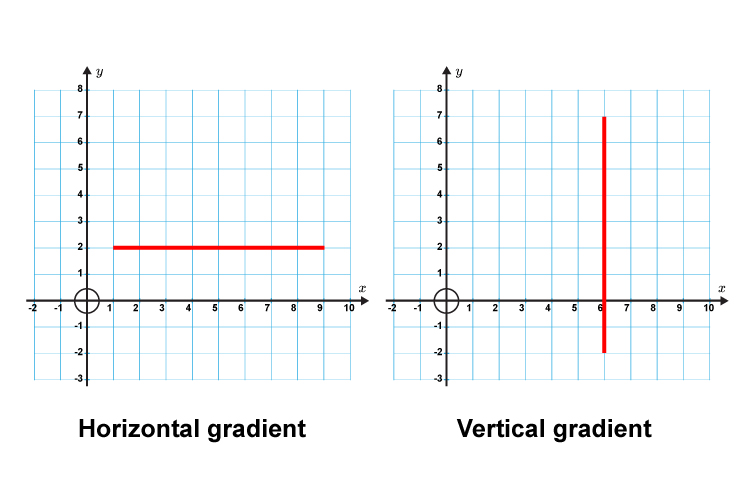 A challenging case about the Texas foster-care system returned to the Fifth Circuit in M.D. v. Abbott, No. 19-41015 (Oct. 16, 2020), and the panel did not approve of revisions to an injunction that went beyond its mandate in the previous appeal: “Plaintiffs claim that the district court did not violate the mandate rule
A challenging case about the Texas foster-care system returned to the Fifth Circuit in M.D. v. Abbott, No. 19-41015 (Oct. 16, 2020), and the panel did not approve of revisions to an injunction that went beyond its mandate in the previous appeal: “Plaintiffs claim that the district court did not violate the mandate rule
because a court ‘invok[ing] equity’s power to remedy a constitutional
violation by an injunction mandating systemic changes to an institution’ generally has ‘the continuing duty and responsibility to assess the efficacy and consequences of its order.’ As Plaintiffs point out, we recited this general principle in Stukenberg II, 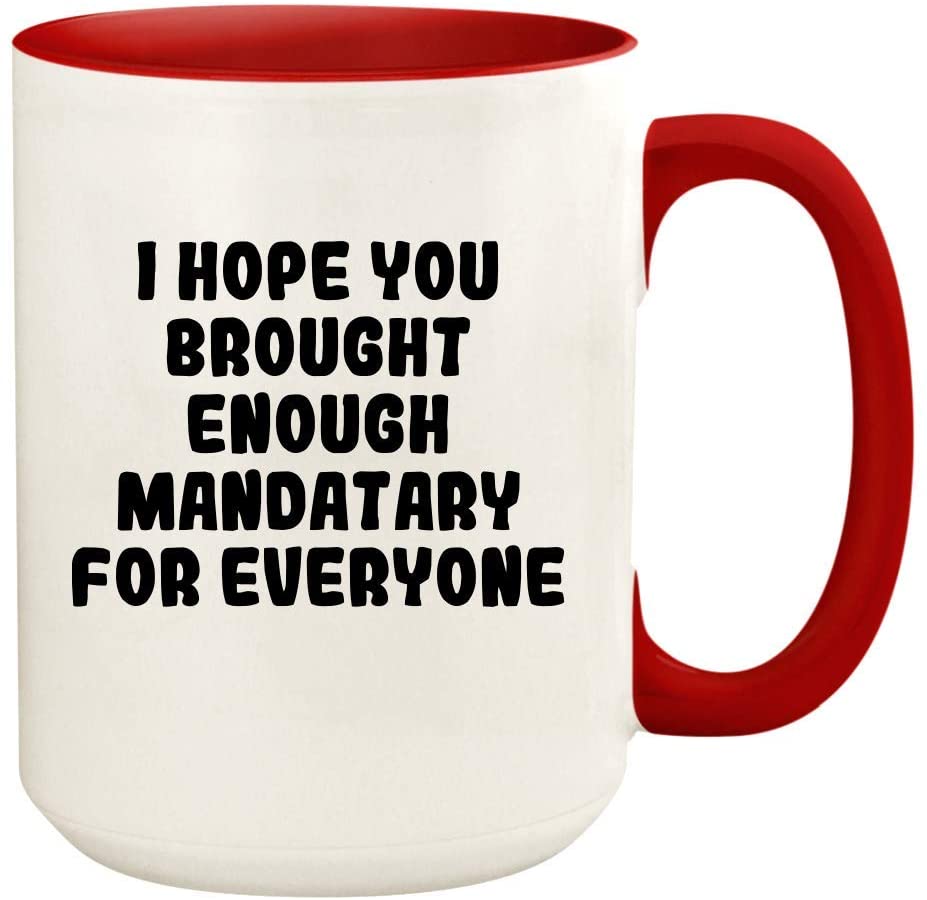 stating that ‘[a] district court undoubtedly has the equitable power to oversee compliance with its own injunction.’ ‘E]quitable decrees that impose a continuing supervisory function on the court commonly . . . contemplate the subsequent issuance of specific implementing injunctions.’ But judges disagree on occasion over the proper exercise of equitable powers, just as judges disagree on occasion over the proper interpretation o statutes. When that happens, appellate courts must make the final decision—and once the decision is made, it must be followed. And that, of course, is the whole purpose of the mandate rule: ‘A district court on remand . . . may not disregard the explicit directives of [the appellate] court'”.’ A (citations omitted).
stating that ‘[a] district court undoubtedly has the equitable power to oversee compliance with its own injunction.’ ‘E]quitable decrees that impose a continuing supervisory function on the court commonly . . . contemplate the subsequent issuance of specific implementing injunctions.’ But judges disagree on occasion over the proper exercise of equitable powers, just as judges disagree on occasion over the proper interpretation o statutes. When that happens, appellate courts must make the final decision—and once the decision is made, it must be followed. And that, of course, is the whole purpose of the mandate rule: ‘A district court on remand . . . may not disregard the explicit directives of [the appellate] court'”.’ A (citations omitted).
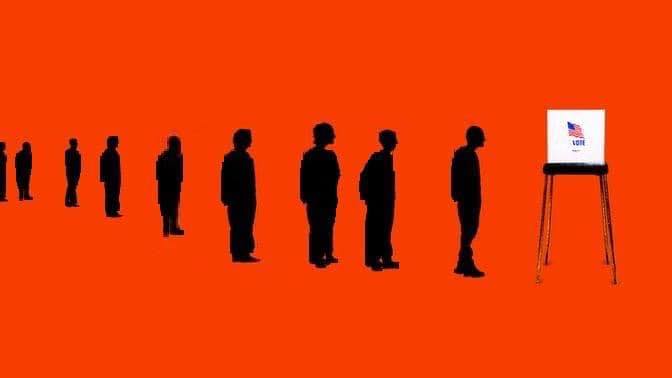 Early voting begins today in Texas. The Fifth Circuit stayed the district court’s order that would have let large Texas counties have more than one early-ballot pickup location. The panel majority concluded, inter alia, that the plaintiffs misconstrued the entirety of the Governor’s actions: “The July 27 and October 1 Proclamations—which must be read together to make sense—are beyond any doubt measures that ‘make[] it easier’ for eligible Texans to vote absentee. How this expansion of voting opportunities burdens anyone’s right to vote is a mystery” (citation omitted). From there, the majority concluded that the plaintiffs overstated the claimed burden, and failed to give sufficient weight to the Governor’s asserted interest in preventing voter fraud. A concurrence criticized the Governor’s use of emergency power: “If a governor can unilaterally suspend early voting laws to reach policy outcomes that you prefer, it stands to reason that a governor can also unilaterally suspend other election laws to achieve policies that you oppose.” Texas LULAC v. Hughs, No. 20-50867 (Oct. 12, 2020).
Early voting begins today in Texas. The Fifth Circuit stayed the district court’s order that would have let large Texas counties have more than one early-ballot pickup location. The panel majority concluded, inter alia, that the plaintiffs misconstrued the entirety of the Governor’s actions: “The July 27 and October 1 Proclamations—which must be read together to make sense—are beyond any doubt measures that ‘make[] it easier’ for eligible Texans to vote absentee. How this expansion of voting opportunities burdens anyone’s right to vote is a mystery” (citation omitted). From there, the majority concluded that the plaintiffs overstated the claimed burden, and failed to give sufficient weight to the Governor’s asserted interest in preventing voter fraud. A concurrence criticized the Governor’s use of emergency power: “If a governor can unilaterally suspend early voting laws to reach policy outcomes that you prefer, it stands to reason that a governor can also unilaterally suspend other election laws to achieve policies that you oppose.” Texas LULAC v. Hughs, No. 20-50867 (Oct. 12, 2020).
 Certain motions toll the deadline for filing a notice of appeal — but not multiple times: “Here, the Employees filed a motion for judgment as a matter of law and, alternatively, a new trial, on March 12, 2019. The district court entered final judgment on March 27 without expressly addressing that motion, thus implicitly denying it. On April 10, the Employees refiled the motion. The refiled version was identical to the March 12 version that the judgment implicitly denied. It therefore did not toll the appeal deadline and the 30 days began to run with the entry of judgment on March 27. The Employees did not file a notice of appeal until June 12. Because that notice was untimely under 28 U.S.C. § 2107, the Employees’ appeal must be dismissed for lack of jurisdiction.” Edwards v 4JLJ, LLC, No. 19-40553 (Sept. 21, 2020) (on rehearing, footnotes omitted).
Certain motions toll the deadline for filing a notice of appeal — but not multiple times: “Here, the Employees filed a motion for judgment as a matter of law and, alternatively, a new trial, on March 12, 2019. The district court entered final judgment on March 27 without expressly addressing that motion, thus implicitly denying it. On April 10, the Employees refiled the motion. The refiled version was identical to the March 12 version that the judgment implicitly denied. It therefore did not toll the appeal deadline and the 30 days began to run with the entry of judgment on March 27. The Employees did not file a notice of appeal until June 12. Because that notice was untimely under 28 U.S.C. § 2107, the Employees’ appeal must be dismissed for lack of jurisdiction.” Edwards v 4JLJ, LLC, No. 19-40553 (Sept. 21, 2020) (on rehearing, footnotes omitted).
 Many opinions address briefing waiver issues by an appellant. But what about an appellee? The Fifth Circuit examined that procedural point in Texas Democratic Party v. Abbott:
Many opinions address briefing waiver issues by an appellant. But what about an appellee? The Fifth Circuit examined that procedural point in Texas Democratic Party v. Abbott:
“Appellate rules regarding how we treat absent issues differ depending on whether it is the appellant or the appellee who has neglected them. An appellant can intentionally waive or inadvertently forfeit the right to present an argument by failure to press it on appeal, a higher threshold than simply mentioning the issue. On the other hand, even an appellee’s failure to file a brief does not cause an automatic reversal of the judgment being appealed. By appellate rule, so extreme a lapse does cause the appellee to lose the right to appear at oral argument. Fed. R. App. P. 31(c). We also know that if we disagree with the grounds relied upon by a district court to enter judgment but discover another fully supported by the record, we can affirm on that alternative basis. . . . There are a few cases that consider rules of waiver even for appellees. For example, our discretion to consider an argument not properly presented is ‘more leniently [applied] when the party who fails to brief an issue is the appellee.'”
No. 20-50407 (Sept. 10, 2020).
 Earlier this month, the Fifth Circuit found an abuse of discretion, under Texas substantive law, in not modifying a noncompetition agreement at the preliminary-injunction stage. Calhoun v. Jack Doheny Cos., Inc. But because the parties had settled their case in the meantime, notifying the district court but not the Fifth Circuit, the case had become moot at the time of that opinion, prompting the Court to withdraw its opinion and dismiss the matter with prejudice. No. 20-20068 (Aug. 28, 2020).
Earlier this month, the Fifth Circuit found an abuse of discretion, under Texas substantive law, in not modifying a noncompetition agreement at the preliminary-injunction stage. Calhoun v. Jack Doheny Cos., Inc. But because the parties had settled their case in the meantime, notifying the district court but not the Fifth Circuit, the case had become moot at the time of that opinion, prompting the Court to withdraw its opinion and dismiss the matter with prejudice. No. 20-20068 (Aug. 28, 2020).
 (This activity about a case named Calhoun prompted me to check in on the M/V CALHOUN, a ship that under another name created a memorable mootness argument– “The ship has sailed!” – when it left the Fifth Circuit before creditors could seize it. The ship continues to be elsewhere, arriving in Venezuela as of the date of this post.)
(This activity about a case named Calhoun prompted me to check in on the M/V CALHOUN, a ship that under another name created a memorable mootness argument– “The ship has sailed!” – when it left the Fifth Circuit before creditors could seize it. The ship continues to be elsewhere, arriving in Venezuela as of the date of this post.)
 “The Texas Supreme Court has held that a Texas court of civil appeals does not have jurisdiction to initiate an award of appellate attorneys’ fees because ‘the award of any attorney fee is a fact issue which must [first] be passed upon the trial court.’” In Texas state courts, requesting appellate fees at the original trial is a placeholder requirement to ensure the state trial courts maintain jurisdiction over the issue. Those are procedural rules that do not apply in federal court. Our local rules provide for appellate litigants to petition this court for. Local Rule 47.8 does not require a party seeking appellate attorneys’ fees to first request appellate attorneys’ fees in the district court as a placeholder.” Atom Instrument Corp. v. Petroleum Analyzer Co., No. 19-20151 (Aug. 7, 2020) (citations omitted).
“The Texas Supreme Court has held that a Texas court of civil appeals does not have jurisdiction to initiate an award of appellate attorneys’ fees because ‘the award of any attorney fee is a fact issue which must [first] be passed upon the trial court.’” In Texas state courts, requesting appellate fees at the original trial is a placeholder requirement to ensure the state trial courts maintain jurisdiction over the issue. Those are procedural rules that do not apply in federal court. Our local rules provide for appellate litigants to petition this court for. Local Rule 47.8 does not require a party seeking appellate attorneys’ fees to first request appellate attorneys’ fees in the district court as a placeholder.” Atom Instrument Corp. v. Petroleum Analyzer Co., No. 19-20151 (Aug. 7, 2020) (citations omitted).
 The trap: “The Funds sought to render an interlocutory decision appealable by dismissing at least one defendant without prejudice. And under [Williams v. Seidenbach, 958 F.3d 341, 369 (5th Cir. 2020) (en banc)], that means—absent some further act like a Rule 54(b) certification—there is no final, appealable decision.”
The trap: “The Funds sought to render an interlocutory decision appealable by dismissing at least one defendant without prejudice. And under [Williams v. Seidenbach, 958 F.3d 341, 369 (5th Cir. 2020) (en banc)], that means—absent some further act like a Rule 54(b) certification—there is no final, appealable decision.”
 The hint: “Because the dismissal without prejudice in this case occurred after the order the Funds seek to appeal, we do not decide how Williams . . . would apply where the dismissal occurred before the adverse, interlocutory order. See Schoenfeld v. Babbitt 168 F.3d 1257, 1265–66 (11th Cir. 1999) (concluding that there was a final decision in such a case).”
The hint: “Because the dismissal without prejudice in this case occurred after the order the Funds seek to appeal, we do not decide how Williams . . . would apply where the dismissal occurred before the adverse, interlocutory order. See Schoenfeld v. Babbitt 168 F.3d 1257, 1265–66 (11th Cir. 1999) (concluding that there was a final decision in such a case).”
Firefighters’ Retirement System v. Citco Group Ltd., No. 19-30165 (July 7, 2020).
 In long-running litigation about liability for hotel occupancy taxes, the Fifth Circuit’s prior mandate said that “plaintiff-appellee cross-appellant pay to defendants-appellants cross appellees the costs on appeal to be taxed by the Clerk of this Court.” The Court held that this language did not preclude the trial court clerk from assessing appropriate costs on remand pursuant to Fed. R. Civ. P. 39(e).
In long-running litigation about liability for hotel occupancy taxes, the Fifth Circuit’s prior mandate said that “plaintiff-appellee cross-appellant pay to defendants-appellants cross appellees the costs on appeal to be taxed by the Clerk of this Court.” The Court held that this language did not preclude the trial court clerk from assessing appropriate costs on remand pursuant to Fed. R. Civ. P. 39(e).
The Court also held: “The fact that the decretal language in the first appeal used the word ‘vacated’ instead of ‘reversed’ does not change this result. . . . While an argument can be made that ‘reversed’ might have been the better choice for the decretal language in the first appeal, what matters for purposes of Rule 39(a) is the substance of the disposition, not merely the form.” San Antonio v. Hotels.com, No. 19-50701 (May 11, 2020) (citations omitted, emphasis in original).
PRACTICE TIP: Fed. R. App. P. 39(e)(3) includes “premiums paid for a bond or other security to preserve rights pending appeal” as a taxable cost–in this litigation, a cost exceeding $2 million.
 In affirming a preliminary injunction in a noncompete case, Realogy Holdings Corp. v. Jongeblood suggested that the district court could “when determining the term of any injunction, to reweigh the equities . . . in light of the time that has passed during the pendency of th[e] appeal.” Interestingly, this suggestion came after the Fifth Circuit had granted a stay during the preliminary-injunction appeal, which it also expedited. Specifically, the relevant covenants last for a year, the injunction was granted on November 15, 2019; the appellate stay was granted on January 24, 2020, and the opinion issued on April 27. No. 19-20864.
In affirming a preliminary injunction in a noncompete case, Realogy Holdings Corp. v. Jongeblood suggested that the district court could “when determining the term of any injunction, to reweigh the equities . . . in light of the time that has passed during the pendency of th[e] appeal.” Interestingly, this suggestion came after the Fifth Circuit had granted a stay during the preliminary-injunction appeal, which it also expedited. Specifically, the relevant covenants last for a year, the injunction was granted on November 15, 2019; the appellate stay was granted on January 24, 2020, and the opinion issued on April 27. No. 19-20864.
 Gonzales cited two Texas Supreme Court cases, decided after a summary judgment against her, holding that an insurer’s payment of an appraisal award does not preclude a Texas Prompt Payment of Claims Act (“TPPCA”) claim. The Fifth Circuit found that she failed to preserve this argument in the district court. The Court noted that “a change in law . . . does not permit a party to raise an entirely new argument that could have been articulated below”–a rule that applies when a party “could have made the same ‘general argument’ to the district court, but had not done so.” As for the state of the law at the time of the summary-judgment briefing, the Court observed:
Gonzales cited two Texas Supreme Court cases, decided after a summary judgment against her, holding that an insurer’s payment of an appraisal award does not preclude a Texas Prompt Payment of Claims Act (“TPPCA”) claim. The Fifth Circuit found that she failed to preserve this argument in the district court. The Court noted that “a change in law . . . does not permit a party to raise an entirely new argument that could have been articulated below”–a rule that applies when a party “could have made the same ‘general argument’ to the district court, but had not done so.” As for the state of the law at the time of the summary-judgment briefing, the Court observed:
We recognize that several courts, including our own, had previously concluded a TPPCA claim was extinguished as a matter of law after the payment of an appraisal award. But the Supreme Court of Texas granted review in [the two relevant cases] on January 18, 2019, seven days after Allstate moved for summary judgment and thirteen days before Gonzales filed her response to the motion. This fact undermines her assertion here that she “could not have made a good faith argument in the trial court that payment of the appraisal award did not preclude her from recovering under the TPPCA as a matter of law.”
Gonzales v. Allstate Vehicle & Property Ins. Co., No. 19-40250 (Feb. 11, 2020) (emphasis added, footnote omitted).
 Appellants complained about the treatment of their claims by the system established to resolve the “Chinese-Manufactured Drywall Products Liability Multi-District Litigation.” They contended that “a disagreement with the District Court’s interpretation and application of the settlement agreement invalidates the waivers” of appeal rights in that agreement. The Fifth Circuit disagreed, concluding that this argument “negates the entire purpose of the appeal waiver and would render these agreed upon terms meaningless,” and reminding that to make such a waiver, “a party need only understand the right to appeal that is given up, not all the facts relating to all potential challenges that could be raised on appeal.” Asch v. Gebrueder Knauf, No. 18-31223 (Dec. 12, 2019, unpublished).
Appellants complained about the treatment of their claims by the system established to resolve the “Chinese-Manufactured Drywall Products Liability Multi-District Litigation.” They contended that “a disagreement with the District Court’s interpretation and application of the settlement agreement invalidates the waivers” of appeal rights in that agreement. The Fifth Circuit disagreed, concluding that this argument “negates the entire purpose of the appeal waiver and would render these agreed upon terms meaningless,” and reminding that to make such a waiver, “a party need only understand the right to appeal that is given up, not all the facts relating to all potential challenges that could be raised on appeal.” Asch v. Gebrueder Knauf, No. 18-31223 (Dec. 12, 2019, unpublished).
 “Here, however, we have an appeal from grant of a motion to dismiss without prejudice to refile. It is not a final judgment because ‘the district court did not adjudicate or dispose of any substantive issues on the merits.'” The King-Morocco v. Banner of N.O., L.L.C., No. 19-30323 (Nov. 27, 2019) (unpubl.) (citations omitted).
“Here, however, we have an appeal from grant of a motion to dismiss without prejudice to refile. It is not a final judgment because ‘the district court did not adjudicate or dispose of any substantive issues on the merits.'” The King-Morocco v. Banner of N.O., L.L.C., No. 19-30323 (Nov. 27, 2019) (unpubl.) (citations omitted).
 Diece-Lisa Indus., Inc. v. Disney Enterprises, Inc., a dispute about trademark rights related to “Lots-O’-Huggin’ Bear” (right), analyzed whether the disposition of several consolidated cases on personal-jurisdiction grounds could be reviewed. After reviewing the specific claims and the applicable standards, the Fifth Circuit “conclude[d] that we have jurisdiction to review the interlocutory orders . . . because they can be ‘regarded as merged into the final judgment terminating'” one of the case numbers. It then affirmed, finding that the plaintiffs’ “franchise theory” (a kind of single-business-enterprise argument) lacked merit, and that a nonexclusive license agreement also was not, by itself, a basis for jurisdiction. No. 17-41268 (Nov. 19, 2019).
Diece-Lisa Indus., Inc. v. Disney Enterprises, Inc., a dispute about trademark rights related to “Lots-O’-Huggin’ Bear” (right), analyzed whether the disposition of several consolidated cases on personal-jurisdiction grounds could be reviewed. After reviewing the specific claims and the applicable standards, the Fifth Circuit “conclude[d] that we have jurisdiction to review the interlocutory orders . . . because they can be ‘regarded as merged into the final judgment terminating'” one of the case numbers. It then affirmed, finding that the plaintiffs’ “franchise theory” (a kind of single-business-enterprise argument) lacked merit, and that a nonexclusive license agreement also was not, by itself, a basis for jurisdiction. No. 17-41268 (Nov. 19, 2019).
 In Williams v. TH Healthcare Ltd., No. 19-20134 (Nov. 14, 2019, unpubl.), the Fifth Circuit made two broadly-applicable points about the deadline running from receipt of an EEOC right-to-sue letter:
In Williams v. TH Healthcare Ltd., No. 19-20134 (Nov. 14, 2019, unpubl.), the Fifth Circuit made two broadly-applicable points about the deadline running from receipt of an EEOC right-to-sue letter:
- Extra days for the weekend. Williams received a right-to-sue letter for her Title VII and ADA claims on July 29, 2018. The ninety-day deadline for filing suit fell on Saturday, October 27, 2018. Williams thus had until the following Monday, October 29, 2018, to file suit. Williams filed suit that day. Her lawsuit was therefore timely and the district court erred in dismissing it.
- Substantive, but not jurisdictional. “he district court concluded that it “d[id] not have jurisdiction over Dovie Williams’s claims because she did not sue within ninety days of receiving the [right-to-sue] letter.” The ninety-day filing requirement, however, “is not a jurisdictional prerequisite, but more akin to a statute of limitations.” Harris v. Boyd Tunica, Inc., 628 F.3d 237, 239 (5th Cir. 2010). The court therefore treats the district court’s order as a dismissal of Williams’s claims pursuant to Rule 12(b)(6) for failing to comply with the ninety-day filing requirement.
 “Since the issue of whether the district court applied the correct state’s law to resolve the matters before it is of primary importance in determining whether the district court ultimately reached the correct result in granting Gray’s request for summary judgment, we reject Gray’s categorization of its appeal as ‘conditional.’ Either the district court applied the correct law, or it did not. Whether the district court applied the correct law cannot and does not revolve on whether it reached a result that benefits Gray. Thus, we will address the propriety of the district court’s decision to apply Texas law regardless of whether we agree with the court’s conclusion under Texas law.” Aggreko LLC v. Chartis Specialty Ins. Co., No. 18-40325 (Nov. 11, 2019).
“Since the issue of whether the district court applied the correct state’s law to resolve the matters before it is of primary importance in determining whether the district court ultimately reached the correct result in granting Gray’s request for summary judgment, we reject Gray’s categorization of its appeal as ‘conditional.’ Either the district court applied the correct law, or it did not. Whether the district court applied the correct law cannot and does not revolve on whether it reached a result that benefits Gray. Thus, we will address the propriety of the district court’s decision to apply Texas law regardless of whether we agree with the court’s conclusion under Texas law.” Aggreko LLC v. Chartis Specialty Ins. Co., No. 18-40325 (Nov. 11, 2019).
 The en banc Fifth Circuit will consider the panel opinion in Williams v. Taylor-Seidenbach, Inc., No. 18-31159 (Aug. 15, 2019), which continued to find a lack of appellate jurisdiction over a dispute because of the so-called “finality trap.” In a previous appeal, the Court found a lack of appellate jurisdiction over an order after three defendants had been dismissed without prejudice. The plaintiff returned to district
The en banc Fifth Circuit will consider the panel opinion in Williams v. Taylor-Seidenbach, Inc., No. 18-31159 (Aug. 15, 2019), which continued to find a lack of appellate jurisdiction over a dispute because of the so-called “finality trap.” In a previous appeal, the Court found a lack of appellate jurisdiction over an order after three defendants had been dismissed without prejudice. The plaintiff returned to district  court and obtained a new order directing dismissal with prejudice (with some caveats), but to no avail: “[T]he rule 54(b) judgment did not retroactively transform the prior without-prejudice dismissals into with-prejudice dismissals. . . . [T]he finality trap, which was found to bar appellate jurisdiction in Williams I, remains shut.” Judge Haynes’s concurrence in the panel opinion asked for en banc review of the Fifth Circuit’s cases on this topic.
court and obtained a new order directing dismissal with prejudice (with some caveats), but to no avail: “[T]he rule 54(b) judgment did not retroactively transform the prior without-prejudice dismissals into with-prejudice dismissals. . . . [T]he finality trap, which was found to bar appellate jurisdiction in Williams I, remains shut.” Judge Haynes’s concurrence in the panel opinion asked for en banc review of the Fifth Circuit’s cases on this topic.
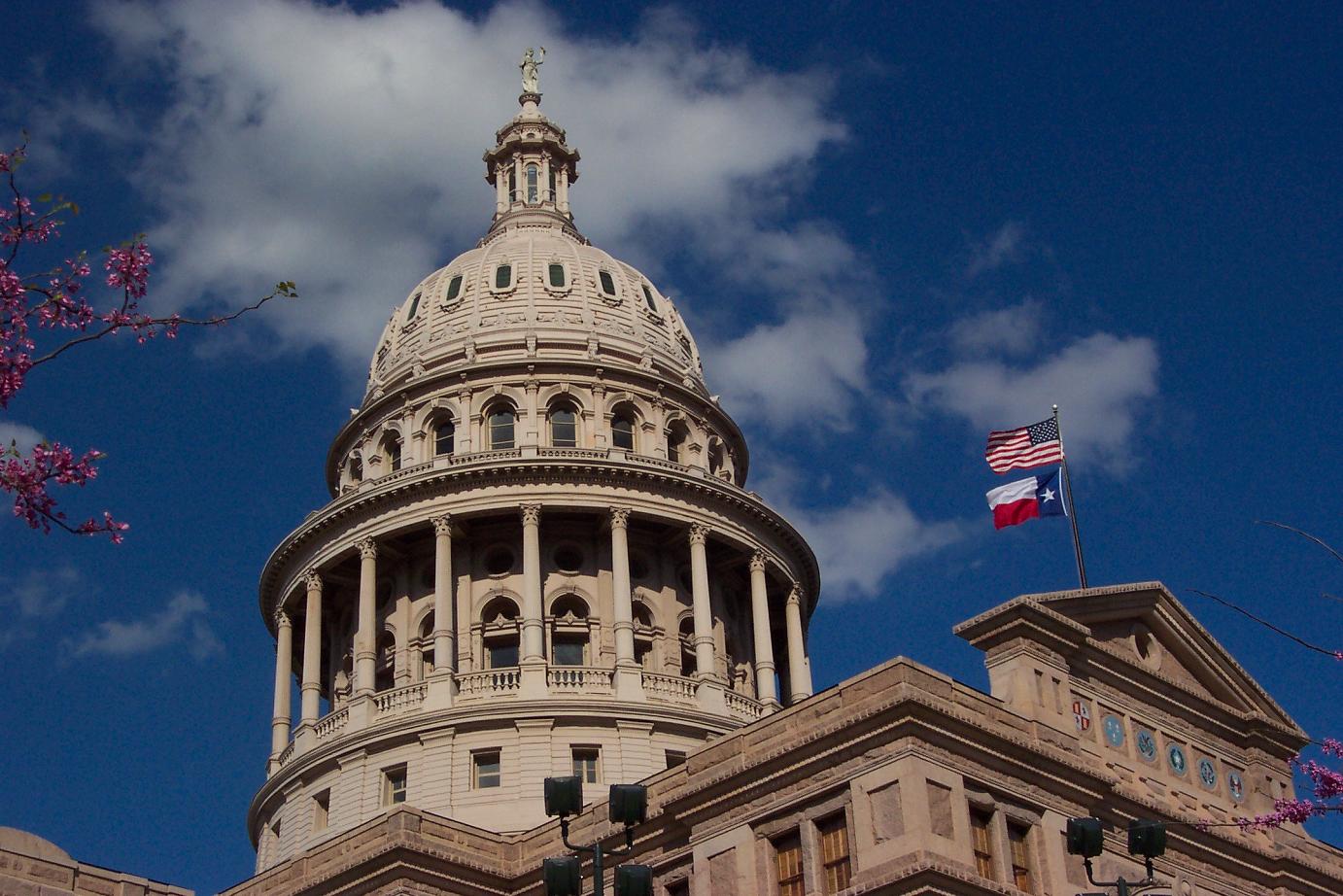 “This case is a perfect example of when we should certify cases, and why certification is valuable. We are presented with a question of pure statutory interpretation on a recurring issue of interest to citizens and businesses across Texas. What’s more, it is a question that divided judges on this court. As reflected in our competing concurring opinions, different judges on this court have disagreed about whether the district court correctly interpreted the Texas Sales Representative Act (“TSRA”). But we all agreed that reasonable minds could differ. So rather than provide a partial answer—binding only litigants who file in federal court, not those in state court— we instead certified the question to the Supreme Court of Texas, which can speak with authority for all litigants, in state and federal court alike. We now have that answer, and accordingly affirm in part and reverse and remand in part.” JCB Inc. v. Horsburgh & Scott Co., No. 17-51023 (Oct. 17, 2019).
“This case is a perfect example of when we should certify cases, and why certification is valuable. We are presented with a question of pure statutory interpretation on a recurring issue of interest to citizens and businesses across Texas. What’s more, it is a question that divided judges on this court. As reflected in our competing concurring opinions, different judges on this court have disagreed about whether the district court correctly interpreted the Texas Sales Representative Act (“TSRA”). But we all agreed that reasonable minds could differ. So rather than provide a partial answer—binding only litigants who file in federal court, not those in state court— we instead certified the question to the Supreme Court of Texas, which can speak with authority for all litigants, in state and federal court alike. We now have that answer, and accordingly affirm in part and reverse and remand in part.” JCB Inc. v. Horsburgh & Scott Co., No. 17-51023 (Oct. 17, 2019).
 After an unsuccessful detour to the High Court of the Republic of the Marshall Islands, a plaintiff tried to appeal an award from the Western District of Texas of $26,726 in costs under Fed. R. Civ. P. 41(d) (“Costs of a Previously Dismissed Action”), along with a related order that administratively closed the Texas matter until the costs were paid. The Fifth Circuit found it had no jurisdiction because: (1) administrative closure is not a final judgment; (2) the collateral-order doctrine did not apply, “[s]ince there is no indication that the ordered costs could not be paid and later recovered upon a successful appeal of a final judgment,” and (3) mandamus was not available, especially when: “[A]ppellants here do not allege that they are unable to pay. Unwillingness to pay based on disagreement with the district court’s decision is insufficient. Appellants can obtain relief through direct appeal after a final judgment.” Sammons v. Economou, No. 18-50932 (Oct. 10, 2019).
After an unsuccessful detour to the High Court of the Republic of the Marshall Islands, a plaintiff tried to appeal an award from the Western District of Texas of $26,726 in costs under Fed. R. Civ. P. 41(d) (“Costs of a Previously Dismissed Action”), along with a related order that administratively closed the Texas matter until the costs were paid. The Fifth Circuit found it had no jurisdiction because: (1) administrative closure is not a final judgment; (2) the collateral-order doctrine did not apply, “[s]ince there is no indication that the ordered costs could not be paid and later recovered upon a successful appeal of a final judgment,” and (3) mandamus was not available, especially when: “[A]ppellants here do not allege that they are unable to pay. Unwillingness to pay based on disagreement with the district court’s decision is insufficient. Appellants can obtain relief through direct appeal after a final judgment.” Sammons v. Economou, No. 18-50932 (Oct. 10, 2019).

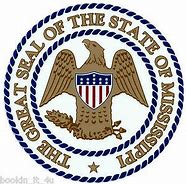 The Fifth Circuit (minus the two Mississippi judges, who are) voted to take en banc the difficult voting rights case of Thomas v. Bryant, No. 19-60133 (as revised, Sept. 3, 2019), which also presents important issues about justiciability and appellate procedure. At the panel level, all three judges wrote opinions.
The Fifth Circuit (minus the two Mississippi judges, who are) voted to take en banc the difficult voting rights case of Thomas v. Bryant, No. 19-60133 (as revised, Sept. 3, 2019), which also presents important issues about justiciability and appellate procedure. At the panel level, all three judges wrote opinions.
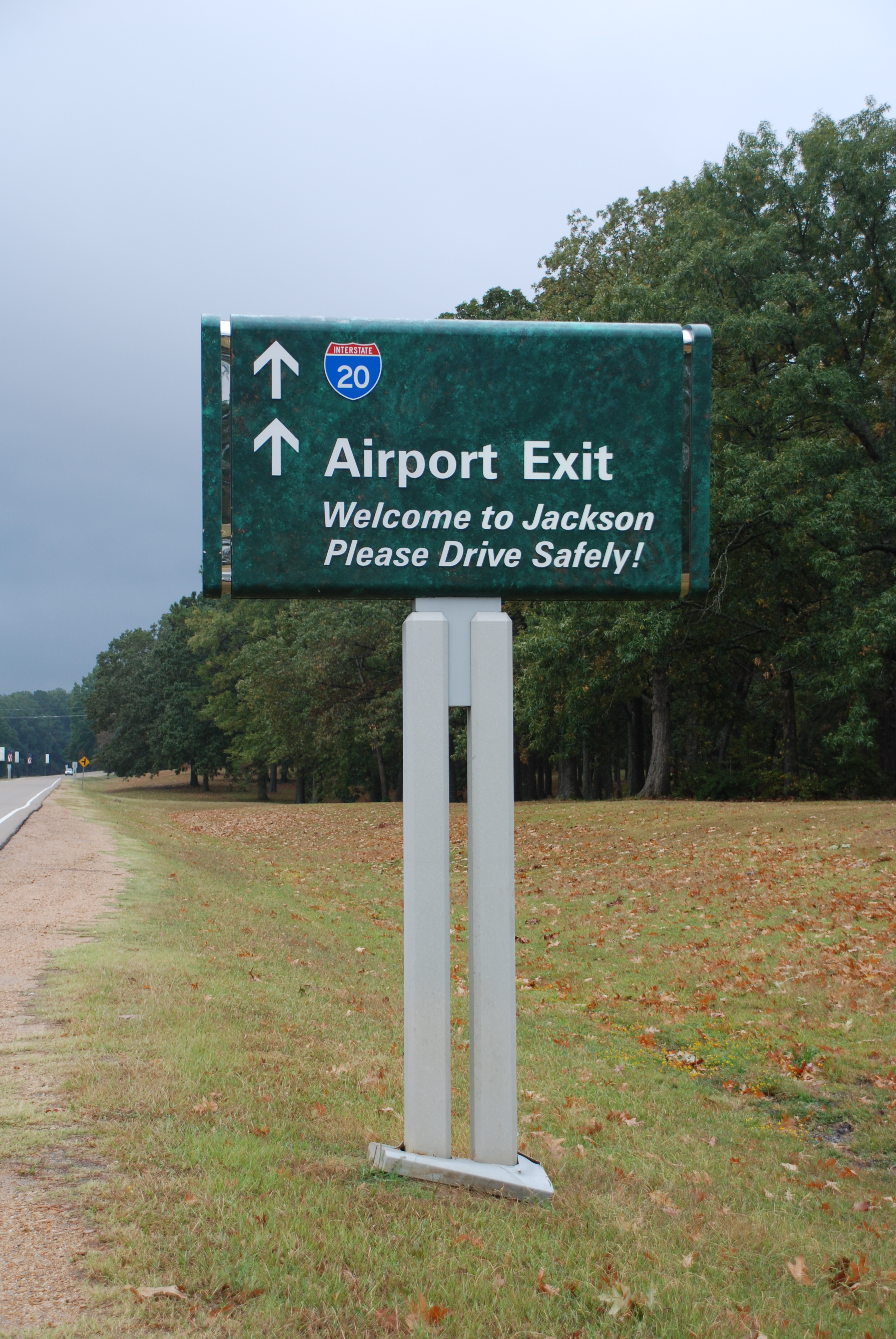 Another discovery dispute in litigation about governance of the airport in Jackson, Mississippi (a previous proceeding involved a mandamus proceeding related to the deposition of the governor’s chief of staff) arose from subpoenas to several legislators, who asserted legislative privilege in response. The Fifth Circuit found that the plaintiffs lacked standing (“The plaintiffs cite no precedent supporting their theory that Jackson voters have a right to elect officials with the exclusive authority to select municipal airport commissioners”), and that this issue was properly raised even during an interlocutory appeal of a collateral order: “[E]ven nonparty witnesses refusing to comply with a discovery order may challenge standing . . . because ‘the subpoena power of a court cannot be more extensive than its jurisdiction.'” Stallworth v. Bryant, No. 18-60587 (Aug. 21, 2019).
Another discovery dispute in litigation about governance of the airport in Jackson, Mississippi (a previous proceeding involved a mandamus proceeding related to the deposition of the governor’s chief of staff) arose from subpoenas to several legislators, who asserted legislative privilege in response. The Fifth Circuit found that the plaintiffs lacked standing (“The plaintiffs cite no precedent supporting their theory that Jackson voters have a right to elect officials with the exclusive authority to select municipal airport commissioners”), and that this issue was properly raised even during an interlocutory appeal of a collateral order: “[E]ven nonparty witnesses refusing to comply with a discovery order may challenge standing . . . because ‘the subpoena power of a court cannot be more extensive than its jurisdiction.'” Stallworth v. Bryant, No. 18-60587 (Aug. 21, 2019).
 Double Eagle Energy Services filed for Chapter 11 bankruptcy protection and then sued two defendants for breach of contract in federal district court. Double Eagle then assigned that claim to one of its creditors; the defendants argued that this assignment destroyed federal subject matter jurisdiction. The Fifth Circuit disagreed, relying upon the “time-of-filing” rule to find that the “related to bankruptcy” jurisdiction existing when the case was filed continued to exist after the assignment. The separate question–whether the district court should nevertheless its exercise discretion to dismiss the case–was remanded, as the Court’s “ordinary practice for discretionary decisions is remanding to ‘allow the district court to exercise its discretion in the first instance.'” Double Eagle Energy Services v. Markwest Utica EMG, No. 19-30207 (Aug. 26, 2019).
Double Eagle Energy Services filed for Chapter 11 bankruptcy protection and then sued two defendants for breach of contract in federal district court. Double Eagle then assigned that claim to one of its creditors; the defendants argued that this assignment destroyed federal subject matter jurisdiction. The Fifth Circuit disagreed, relying upon the “time-of-filing” rule to find that the “related to bankruptcy” jurisdiction existing when the case was filed continued to exist after the assignment. The separate question–whether the district court should nevertheless its exercise discretion to dismiss the case–was remanded, as the Court’s “ordinary practice for discretionary decisions is remanding to ‘allow the district court to exercise its discretion in the first instance.'” Double Eagle Energy Services v. Markwest Utica EMG, No. 19-30207 (Aug. 26, 2019).
 Longoria, a truck driver in Laredo, prevailed in a 3-day jury trial about his injuries arising from an accident, and won judgment for $2.8 million in total, based on the jury’s awards as to nine types of damages. The Fifth Circuit noted these points, among others, in reviewing the defendant’s appeal of that judgment:
Longoria, a truck driver in Laredo, prevailed in a 3-day jury trial about his injuries arising from an accident, and won judgment for $2.8 million in total, based on the jury’s awards as to nine types of damages. The Fifth Circuit noted these points, among others, in reviewing the defendant’s appeal of that judgment:
- Sufficiency v. Excessiveness. “The sufficiency challenge asks only whether there is any evidence for a jury’s award; if there is, the judge’s job is at an end. An excessiveness challenge requires more extensive scrutiny, including—as will be seen—consideration of verdicts in similar cases. And we review the district court’s decision on remittitur only for an abuse of discretion. We cannot assess whether such discretion was abused if the district court was not asked to exercise it in the first instance.”
- Federal v. State. In a review for excessiveness: “The state/federal issue is presented because Texas does not use the maximum recovery rule. It instead conducts a more holistic assessment at both stages of the inquiry.”
- Pain. “This pain is significant. But an award of $1 million is ‘contrary to the overwhelming weight of the evidence,’ given that Longoria can mostly manage the pain by stretching and taking over-the-counter medicine.”
- Anguish. “Longoria points to his fear that he may be unable to keep working as a truck driver. He testified that this occupation is his ‘childhood dream’ and that without it, he could not support his family. But Longoria is cleared to work, and no doctor indicated his ability to work may change in the future. His understandable concern for the future is not the high degree of distress or frequent disruption Texas law requires.”
Longoria v. Hunter Express, No. 17-41042 (Aug. 1, 2019).
 Appellants argued that it a securities-registration exemption plainly applied to a transaction; the Fifth Circuit observed: “While the Gleasons now argue that section 4(a)(1)’s applicability is so obvious that the district court committed a clear error of law or manifest injustice, their able lawyers went in a different direction when opposing summary judgment,” and affirmed. Gleason v. Markel Am. Ins. Co, No. 18-40850 (July 30, 2019, unpublished).
Appellants argued that it a securities-registration exemption plainly applied to a transaction; the Fifth Circuit observed: “While the Gleasons now argue that section 4(a)(1)’s applicability is so obvious that the district court committed a clear error of law or manifest injustice, their able lawyers went in a different direction when opposing summary judgment,” and affirmed. Gleason v. Markel Am. Ins. Co, No. 18-40850 (July 30, 2019, unpublished).
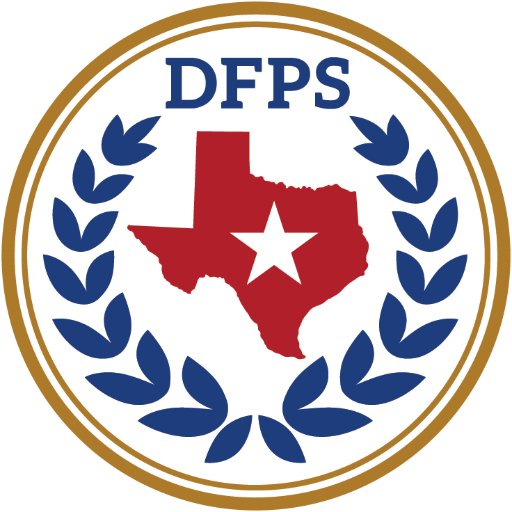 Hard-fought litigation about reform to Texas’s foster-care system led to an injunction, an appeal, a limited remand to revise the injunction, and a renewed appeal. The panel majority affirmed in part and reversed in part, finding, inter alia: (i) the revised injunction exceeded the mandate of the limited remand; (ii) that a requirement affirmed in the appeal was, upon further review, in fact unnecessary; and (iii) that a provision about data use required additional confidentiality safeguards.
Hard-fought litigation about reform to Texas’s foster-care system led to an injunction, an appeal, a limited remand to revise the injunction, and a renewed appeal. The panel majority affirmed in part and reversed in part, finding, inter alia: (i) the revised injunction exceeded the mandate of the limited remand; (ii) that a requirement affirmed in the appeal was, upon further review, in fact unnecessary; and (iii) that a provision about data use required additional confidentiality safeguards.
A strong dissent protested the overall lack of deference to the district court’s discretion, focusing in particular on a provision about “an integrated computer system to rationalize record keeping.” It argued that by vacating that provision, “the majority completes its walk away from the district court’s interlaced remedial scheme, taking away provisions essential to its success . . . a decision flawed by the evidence and controlling legal principles.” The dissent further observed: “[The State’s] reflexive resistance to the federal district court’s remedial orders–both direct confrontation and a refusal to cooperate or otherwise participate in the crafting of a response–bespeaks a view of our federalism inverted to look past the unchallenged finding of this court of the State’s deliberate indifference to the constitutional rights of PMC children . . . .” M.D. v. Abbott, No. 18-40057 (July 8, 2019).
 Lake Eugenie Land & Devel. v. BP, the latest in the “body of federal common law in this Circuit” about the Deepwater Horizon settlement, presents both a crisp summary of the mandate rule and a dramatic tale of piracy on the high seas.
Lake Eugenie Land & Devel. v. BP, the latest in the “body of federal common law in this Circuit” about the Deepwater Horizon settlement, presents both a crisp summary of the mandate rule and a dramatic tale of piracy on the high seas.
Mandate rule. As to the mandate rule, the opinion succinctly summarizes its theoretical basis –
“The mandate rule is a subspecies of the law-of-the-case doctrine: When a court decides a question, it usually decides it once and for all ‘subsequent stages in the same case.’ This doctrine operates on a horizonal plane—constricting a later panel vis-à-vis an earlier panel of the same court. It also operates on a vertical plane—constricting a lower court vis-à-vis a higher court. The vertical variant is what we call the ‘mandate rule,’ and it’s the kind at issue here.”
(citations omitted), as well as the way to implement it: “The first step is figuring out what our mandate said. . . . The next question is whether the district court deviated from that mandate.” (citations omitted).
Piracy on the high seas. The opinion cites some 19th-Century authority about the foundations of the mandate rule; among them, Himley v. Rose, 9 U.S. (5 Cranch) 313 (1809), which involved a “decree . . . formerly rendered” about the restoration of cargo from the merchant ship Sarah. The earlier opinion, Rose v. Himley, 8 U.S. (4 Cranch) 241 (1808), presents an  amazing tale of a load of coffee, sent from the port of Santo Domingo by “brigands” during a slave revolt against the French government, which was then intercepted and seized by a French privateer and sold in Cuba.
amazing tale of a load of coffee, sent from the port of Santo Domingo by “brigands” during a slave revolt against the French government, which was then intercepted and seized by a French privateer and sold in Cuba.
 The Fifth Circuit’s unfortunate Erie guess in Priester v. JPMorgan Chase Bank, 708 F.3d 667 (5th Cir. 2013), about limitations for an action to quiet title on a home-equity lien, was later rejected by the Texas Supreme Court in Wood v. HSBC Bank USA, 505 S.W.3d 542 (Tex. 2016). Meanwhile, the Priesters’ problems with their lender continued. The Fifth Circuit declined to consider their motion for reconsideration under Fed. R. Civ. P. 60(b), noting a lengthy delay by the Priesters in bringing the motion, and observing: “If a ‘change in law’ automatically allowed the reopening of federal cases, then anytime the Supreme Court resolved a circuit split, the courts that had taken the view that did not prevail would have to reopen cases no matter how long ago the judgments issued. . . . [The Priesters] are worried that the earlier federal judgment against them may pose a res judicata problem. But res judicata is the ordinary result of a final judgment, not an extraordinary circumstance warranting relief from one.” Priester v. JP Morgan Chase, No. 18-40127 (re-released as published on July 1, 2019).
The Fifth Circuit’s unfortunate Erie guess in Priester v. JPMorgan Chase Bank, 708 F.3d 667 (5th Cir. 2013), about limitations for an action to quiet title on a home-equity lien, was later rejected by the Texas Supreme Court in Wood v. HSBC Bank USA, 505 S.W.3d 542 (Tex. 2016). Meanwhile, the Priesters’ problems with their lender continued. The Fifth Circuit declined to consider their motion for reconsideration under Fed. R. Civ. P. 60(b), noting a lengthy delay by the Priesters in bringing the motion, and observing: “If a ‘change in law’ automatically allowed the reopening of federal cases, then anytime the Supreme Court resolved a circuit split, the courts that had taken the view that did not prevail would have to reopen cases no matter how long ago the judgments issued. . . . [The Priesters] are worried that the earlier federal judgment against them may pose a res judicata problem. But res judicata is the ordinary result of a final judgment, not an extraordinary circumstance warranting relief from one.” Priester v. JP Morgan Chase, No. 18-40127 (re-released as published on July 1, 2019).
 District courts frequently “administratively close” an inactive matter, but that housekeeping measure does not create an appealable order: ‘”A ‘final decision’ generally is one which ends the litigation on the merits and leaves nothing for the court to do but execute the judgment.” In contrast, “a district court order staying and administratively closing a case lacks the finality of an outright dismissal or closure.” By administratively closing the case, the district court retains jurisdiction, meaning it can “reopen the case—either on its own or at the request of a party—at any time.” “[R]eservation of jurisdiction for the purpose of hearing substantive claims . . . precludes appellate jurisdiction because an order framed this way is not a final judgment.”’ Sentry Select Ins. Co. v. Ruiz, No. 18-50605 (May 23, 2019) (unpubl.)
District courts frequently “administratively close” an inactive matter, but that housekeeping measure does not create an appealable order: ‘”A ‘final decision’ generally is one which ends the litigation on the merits and leaves nothing for the court to do but execute the judgment.” In contrast, “a district court order staying and administratively closing a case lacks the finality of an outright dismissal or closure.” By administratively closing the case, the district court retains jurisdiction, meaning it can “reopen the case—either on its own or at the request of a party—at any time.” “[R]eservation of jurisdiction for the purpose of hearing substantive claims . . . precludes appellate jurisdiction because an order framed this way is not a final judgment.”’ Sentry Select Ins. Co. v. Ruiz, No. 18-50605 (May 23, 2019) (unpubl.)
 Emphasizing a significant difference between Texas and federal practice, ENI US Operating Co. v. Transocean clarified Circuit precedent and held: “Under [Fed. R. Civ. P.] 52(a), implicit findings will not automatically be inferred to support a conclusory ultimate finding. The district court must lay out enough subsidiary findings to allow us to glean ‘a clear understanding of the analytical process by which [the] ultimate findings were reached and to assure us that the trial court took care in ascertaining the facts.” Finding that the district court’s reasoning was insufficiently developed under this standard, the Fifth Circuit remanded for more detailed findings on a key point. The Court also reversed on two other issues of
Emphasizing a significant difference between Texas and federal practice, ENI US Operating Co. v. Transocean clarified Circuit precedent and held: “Under [Fed. R. Civ. P.] 52(a), implicit findings will not automatically be inferred to support a conclusory ultimate finding. The district court must lay out enough subsidiary findings to allow us to glean ‘a clear understanding of the analytical process by which [the] ultimate findings were reached and to assure us that the trial court took care in ascertaining the facts.” Finding that the district court’s reasoning was insufficiently developed under this standard, the Fifth Circuit remanded for more detailed findings on a key point. The Court also reversed on two other issues of  contract law:
contract law:
- A clause referring to an indemnity obligation for “special, indirect, or consequential damages,” while a “limitation on the type of damages allowed . . . says nothing about what type of claims can be brought” (and thus, does not preclude a breach-of-warranty action); and
- A damages calculation based on a steady contract price was flawed because “it looks to what Eni actually did
 after termination, when the operative question is what Eni would have done in a non-breach world. . . . The district court should have attempted to determine, in the hypothetical non-breach world, how many days the Pathfinder [above, left] would have spent at each applicable rate.”
after termination, when the operative question is what Eni would have done in a non-breach world. . . . The district court should have attempted to determine, in the hypothetical non-breach world, how many days the Pathfinder [above, left] would have spent at each applicable rate.”
No. 18-20115 (March 28, 2019).
 A non-party appealed a discovery issue, complaining about confidentiality protection for documents it produced under subpoena in a complicated antitrust case. The Fifth Circuit reviewed the issue as a collateral order in Vantage Health Plan, Inc. v. Willis-Knighton Medical Center, No. 17-30867 (Jan. 9, 2019). Unfortunately for the movant, that review identified three problems with its position: “First, the bald assertion of competitive harm is insufficient, and Humana was repeatedly unable to articulate a specific harm that would be caused by the disclosure of the documents. Second, Humana ignores the fact that any documents not placed into the record will remain subject to the district court’s protective order and are restricted to ‘attorney’s eyes only.’ . . . Third, those documents that are ultimately filed on the record are still subject to the court’s redaction requirements, which cover all [specific numeric information rates and percentages].”
A non-party appealed a discovery issue, complaining about confidentiality protection for documents it produced under subpoena in a complicated antitrust case. The Fifth Circuit reviewed the issue as a collateral order in Vantage Health Plan, Inc. v. Willis-Knighton Medical Center, No. 17-30867 (Jan. 9, 2019). Unfortunately for the movant, that review identified three problems with its position: “First, the bald assertion of competitive harm is insufficient, and Humana was repeatedly unable to articulate a specific harm that would be caused by the disclosure of the documents. Second, Humana ignores the fact that any documents not placed into the record will remain subject to the district court’s protective order and are restricted to ‘attorney’s eyes only.’ . . . Third, those documents that are ultimately filed on the record are still subject to the court’s redaction requirements, which cover all [specific numeric information rates and percentages].”
 In Louisiana Real Estate Appraisers Board v. FTC, the Fifth Circuit declined to apply the “collateral order” doctrine to an interlocutory order of an administrative agency, leaving open the possibility that the doctrine could so be applied in a different situation. No. 18-60291 (Feb. 28, 2019).
In Louisiana Real Estate Appraisers Board v. FTC, the Fifth Circuit declined to apply the “collateral order” doctrine to an interlocutory order of an administrative agency, leaving open the possibility that the doctrine could so be applied in a different situation. No. 18-60291 (Feb. 28, 2019).
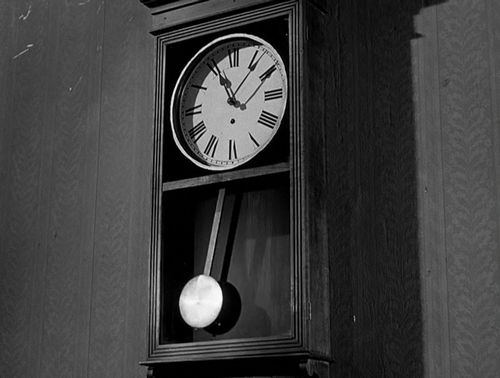 In a borrower’s lawsuit against the servicer of a home equity loan, the district court entered a partial final judgment pursuant to Fed. R. Civ. P. 54(b) on January 4, 2018. Then, after further review of a remaining claim by a magistrate judge, it entered a second judgment resolving the rest of the case on January 31. The Fifth Circuit held that the notice of appeal was timely as to the second judgment, but not the first. The Court had considerable doubt about whether the appeal of the second judgment could be used to question whether Rule 54(b) had properly been invoked in the first, and also found that the district court had properly used that Rule to handle the borrower’s various claims. Johnson v. Ocwen Loan Servicing LLC, No. 18-10257 (Feb. 21, 2019).
In a borrower’s lawsuit against the servicer of a home equity loan, the district court entered a partial final judgment pursuant to Fed. R. Civ. P. 54(b) on January 4, 2018. Then, after further review of a remaining claim by a magistrate judge, it entered a second judgment resolving the rest of the case on January 31. The Fifth Circuit held that the notice of appeal was timely as to the second judgment, but not the first. The Court had considerable doubt about whether the appeal of the second judgment could be used to question whether Rule 54(b) had properly been invoked in the first, and also found that the district court had properly used that Rule to handle the borrower’s various claims. Johnson v. Ocwen Loan Servicing LLC, No. 18-10257 (Feb. 21, 2019).
 Xitronix Corp. alleged that KLA-Tencor Corp. violated the antitrust laws by fraudulently obtaining a patent from the U.S. Patent and Trademark Office. The trial court granted summary judgment to KLA, appeal was taken to the Federal Circuit, which then transferred the appeal to the Fifth Circuit – who then transferred the case back to the Federal Circuit in Xitronix Corp. v. KLA-Tencor Corp. Distinguishing the recent Supreme Court case about an attorney malpractice claim involving patent law, Gunn v. Minton, 133 S.Ct. 1059 (2013), the Fifth Circuit observed:
Xitronix Corp. alleged that KLA-Tencor Corp. violated the antitrust laws by fraudulently obtaining a patent from the U.S. Patent and Trademark Office. The trial court granted summary judgment to KLA, appeal was taken to the Federal Circuit, which then transferred the appeal to the Fifth Circuit – who then transferred the case back to the Federal Circuit in Xitronix Corp. v. KLA-Tencor Corp. Distinguishing the recent Supreme Court case about an attorney malpractice claim involving patent law, Gunn v. Minton, 133 S.Ct. 1059 (2013), the Fifth Circuit observed:
“This case concerns a patent that is currently valid and enforceable, issued following a PTO proceeding heretofore viewed as lawful. This litigation has the potential to render that patent effectively unenforceable and to declare the PTO proceeding tainted by illegality. This alone distinguishes the present case from Gunn. The adjudication of this Walker Process claim also implicates the interaction between the PTO and Article III courts. The district court’s acerbic statements about the PTO at summary judgment point to the complexity of relations between proceedings in federal court and before the PTO.”
No. 18-50114 (Feb. 15, 2019).
 84 Lumber lost, at the pretrial stage, a construction dispute with Paschen, a general contractor. Paschen then dismissed without prejudice its third-party action against J.A., a general contractor, after which 84 Lumber appealed. The jurisdictional question was whether that dismissal without prejudice made the case unappealable under Ryan v. Occidental Petroleum 577 F.2d 298 (5th Cir. 1978). The Fifth Circuit concluded that it did not: “The purpose of the Ryan rule is to prevent the appealing party from manufacturing jurisdiction by using an ‘end-run around the final judgment rule to convert an otherwise non-final—and thus nonappealable—ruling into a final decision appealable under § 1291.’ But the plaintiff, 84 Lumber, did not participate in Paschen’s dismissal of its remaining third-party claim against J & A, so it did not manufacture appellate jurisdiction.” 84 Lumber Co. v. Continental Casualty Co., No. 18-30170 (Jan. 24, 2019).
84 Lumber lost, at the pretrial stage, a construction dispute with Paschen, a general contractor. Paschen then dismissed without prejudice its third-party action against J.A., a general contractor, after which 84 Lumber appealed. The jurisdictional question was whether that dismissal without prejudice made the case unappealable under Ryan v. Occidental Petroleum 577 F.2d 298 (5th Cir. 1978). The Fifth Circuit concluded that it did not: “The purpose of the Ryan rule is to prevent the appealing party from manufacturing jurisdiction by using an ‘end-run around the final judgment rule to convert an otherwise non-final—and thus nonappealable—ruling into a final decision appealable under § 1291.’ But the plaintiff, 84 Lumber, did not participate in Paschen’s dismissal of its remaining third-party claim against J & A, so it did not manufacture appellate jurisdiction.” 84 Lumber Co. v. Continental Casualty Co., No. 18-30170 (Jan. 24, 2019).
After the November 2018 elections, the new leadership of Harris County moved to dismiss the appeal of long-running litigation about the county’s pretrial bail policy (most recently, the stay pending appeal granted in O’Donnell v. Goodhart, 900 F.3d 220 (5th Cir. 2018)). That panel rejected the movants’ request to vacate its opinion, noting the exceptional effort made to handle the case quickly and accurately, and finding that that situation was not analogous to an appeal that becomes moot. The panel agreed that “a merits panel is not bound by a motions panel,” but observed: “[T]hat is irrelevant because there is not, and never will be, a merits panel” as a result of the dismissal. O’Donnell v. Salgado, No. 18-20466 (Jan. 14, 2019).
 Thompson v. Dallas City Attorney’s Office appears to present the first use, in the history of the federal judiciary, of both the words “augurs” and “morphed” in a circuit-court opinion. It also carefully reviews the “vexing” question of when an earlier Fifth Circuit opinion should not be followed, despite the “rule of orderliness,” because that opinion was inconsistent with Supreme Court precedent when written. The Court found that Henson v. Columbus Bank & Trust Co., 651 F.2d 320 (5th Cir. 1981) was such a case, noting:
Thompson v. Dallas City Attorney’s Office appears to present the first use, in the history of the federal judiciary, of both the words “augurs” and “morphed” in a circuit-court opinion. It also carefully reviews the “vexing” question of when an earlier Fifth Circuit opinion should not be followed, despite the “rule of orderliness,” because that opinion was inconsistent with Supreme Court precedent when written. The Court found that Henson v. Columbus Bank & Trust Co., 651 F.2d 320 (5th Cir. 1981) was such a case, noting:
- prior Supreme Court precedent on the relevant res judicata question, which Henson did not address or even acknowledge;
- further Supreme Court precedent, issued soon after Henson, reaffirming the earlier opinion;
- consistent Fifth Circuit case law since Henson that did not apply it; and
- a paucity of citations to Henson.
In sum: “Orderliness, rightly understood, compels deference, not defiance. And disregarding on-point precedent in favor of an aberrational decision flouting that precedent is the antithesis of orderlinesss.” No. 17-10952 (Jan. 11, 2019).
 A textbook example of the “rule of orderliness” appears in Gahagan v. U.S. Dep’t of Justice, a dispute about the recovery of attorneys’ fees under FOIA by an attorney proceeding pro se:
A textbook example of the “rule of orderliness” appears in Gahagan v. U.S. Dep’t of Justice, a dispute about the recovery of attorneys’ fees under FOIA by an attorney proceeding pro se:
- In Cazalas v. DOJ, 709 F.2d 1051, 1057 (5th Cir. 1983), a panel majority of the Fifth Circuit held that “a litigant attorney represent[ing] herself or himself” is eligible for “an award of attorney fees under the FOIA.”
- In Kay v. Ehrler, 499 U.S. 432, 438, 435 (1991), which arose under 42 U.S.C. § 1988, the Supreme Court rejected “[a] rule that authorizes awards of counsel fees to pro se litigants— even if limited to those who are members of the bar,” for fear it “would create a disincentive to employ counsel whenever such a plaintiff considered himself competent to litigate on his own behalf.” Therefore, “a pro se litigant who is also a lawyer may [not] be awarded attorney’s fees.”
- In Texas v. ICC, 935 F.2d 728, 733 (5th Cir. 1991), citing Cazalas, the Fifth Circuit held that :”courts can in appropriate circumstances award attorneys fees to states” under FOIA.
“Whether Cazalas is still binding turns on first- and second-order questions under the rule of orderliness. The first question is whether ICC requires us to follow Cazalas. It does not. The second question is whether Kay requires us to abandon Cazalas. It does.” Kay overruled the rationale of Cazalas, and while ICC nominally followed Cazalas, it did not analyze the effect of Kay.
 Mauldin sued Gonzalez, Hernandez, and Allstate Insurance. The district court denied Mauldin’s motion to remand as to Gonzalez and entered a final judgment in Gonzalez’s favor. Two weeks later, it transferred the remaining claims to Oklahoma under § 1404(a). As to Gonzalez, it found that the remand ruling was appealable because it was combined with a final judgment – an exception to the general rule that denials of motions to remand are interlocutory and not appealable. And it found that the Fifth Circuit retained jurisdiction over the appeal about Gonzalez notwithstanding the transfer – an important if rarely-encountered point about the interplay among the jurisdiction of the federal circuits. Mauldin v. Allstate Ins. Co., No. 17-11274 (Dec. 10, 2018, unpublished).
Mauldin sued Gonzalez, Hernandez, and Allstate Insurance. The district court denied Mauldin’s motion to remand as to Gonzalez and entered a final judgment in Gonzalez’s favor. Two weeks later, it transferred the remaining claims to Oklahoma under § 1404(a). As to Gonzalez, it found that the remand ruling was appealable because it was combined with a final judgment – an exception to the general rule that denials of motions to remand are interlocutory and not appealable. And it found that the Fifth Circuit retained jurisdiction over the appeal about Gonzalez notwithstanding the transfer – an important if rarely-encountered point about the interplay among the jurisdiction of the federal circuits. Mauldin v. Allstate Ins. Co., No. 17-11274 (Dec. 10, 2018, unpublished).
 The Fifth Circuit noted that “[t]he parties agree that we have jurisdiction over this appeal” in Aggreko LLC v. Chartis Specialty Ins. Co., which arose from rulings on cross-motions for summary judgment in a dispute about insurance coverage. Unfortunately for the parties seeking appellate review, the Court also reminded that “we must sua sponte examine the basis of our own jurisdiction when necessary.” Here, the disposition on summary judgment below did not end the litigation, as it resolved only some claims between some parties, and did not expressly result in the dismissal or entry of relief with respect to any parties’ claims.” No. 18-40325 (Nov. 21, 2018).
The Fifth Circuit noted that “[t]he parties agree that we have jurisdiction over this appeal” in Aggreko LLC v. Chartis Specialty Ins. Co., which arose from rulings on cross-motions for summary judgment in a dispute about insurance coverage. Unfortunately for the parties seeking appellate review, the Court also reminded that “we must sua sponte examine the basis of our own jurisdiction when necessary.” Here, the disposition on summary judgment below did not end the litigation, as it resolved only some claims between some parties, and did not expressly result in the dismissal or entry of relief with respect to any parties’ claims.” No. 18-40325 (Nov. 21, 2018).
 The issue in SCF Waxler Marine LLC v. Aris T MV was whether the excess insurers for a multi-vessel accident could enforce a “Crown Zellerbach clause,” and thus limit their liability to the value of the insured vessel. (The vessel at issue, the Aris T (right) is presently in the Atlantic en route to Rotterdam from Mobile.) The Fifth Circuit found that it lacked appellate jurisdiction over the district court’s ruling that the excess insurers could enforce such a clause: “The fundamentals of Bucher-Guyer bear a striking resemblance to this case. There, the district court determined the boundaries of a party’s liability— $500—based on the applicability of statutory language. Nevertheless, whether the opposing party was entitled to anything and, if so, how much was still to be determined. In this case, the court decided the boundaries of a party’s liability through determination of whether a contractual provision permitted them to do so. Whether Valero, Shell, and Motiva are legally permitted to recover anything from the Excess Insurers and, if so, how much remains to be determined.” No. 17-30805 (Oct. 30, 2018).
The issue in SCF Waxler Marine LLC v. Aris T MV was whether the excess insurers for a multi-vessel accident could enforce a “Crown Zellerbach clause,” and thus limit their liability to the value of the insured vessel. (The vessel at issue, the Aris T (right) is presently in the Atlantic en route to Rotterdam from Mobile.) The Fifth Circuit found that it lacked appellate jurisdiction over the district court’s ruling that the excess insurers could enforce such a clause: “The fundamentals of Bucher-Guyer bear a striking resemblance to this case. There, the district court determined the boundaries of a party’s liability— $500—based on the applicability of statutory language. Nevertheless, whether the opposing party was entitled to anything and, if so, how much was still to be determined. In this case, the court decided the boundaries of a party’s liability through determination of whether a contractual provision permitted them to do so. Whether Valero, Shell, and Motiva are legally permitted to recover anything from the Excess Insurers and, if so, how much remains to be determined.” No. 17-30805 (Oct. 30, 2018).
 Griggs was ordered to arbitrate his dispute with Stream Energy. Griggs refused to do so. When asked by the district court for a status report, in an echo of Bartleby the Scrivener’s famous “I would prefer not to,” Griggs responded in relevant part:
Griggs was ordered to arbitrate his dispute with Stream Energy. Griggs refused to do so. When asked by the district court for a status report, in an echo of Bartleby the Scrivener’s famous “I would prefer not to,” Griggs responded in relevant part:
“Griggs anticipated that this Court would have already dismiss[ed] this case for want of prosecution because this Court left him only an arbitration which he has not pursued. So, Griggs states the following for the Court’s consideration: 1. Griggs understands and appreciates this Court’s order compelling arbitration. Griggs believes that the Court cons[idered] all arguments before it ruled. 2. However, Griggs disagrees with this Court’s conclusion that this matter must go to arbitration. 3. Griggs will not pursue arbitration. 4. Griggs stands ready to litigate this case before this Court to a conclusion.”
The district court then dismissed the case without prejudice. After review of the various kinds of dismissals addressed by Fed. R. Civ. P. 41, the Fifth Circuit treated the dismissal order as one for “delay or contumacious conduct” under Rule 41(b) – and thus, declined to reach the merits of the arbitration ruling: “Griggs should not be permitted, through recalcitrance, to obtain the review of the arbitration clause that he was expressly denied in the district court, a review that Congress has foreclosed under the Federal Arbitration Act.” Griggs v. SGE Management LLC, No. 17-50655 (Sept. 27, 2018).
 The hard-fought litigation over Harris County’s bail policies returned to the Fifth Circuit after a limited remand on the scope and structure of proper injunctive relief. The Court granted a stay pending resolution of the merits; in particular, noting the effect of the appellate “mandate rule” on 3 parts of the revised injunction:
The hard-fought litigation over Harris County’s bail policies returned to the Fifth Circuit after a limited remand on the scope and structure of proper injunctive relief. The Court granted a stay pending resolution of the merits; in particular, noting the effect of the appellate “mandate rule” on 3 parts of the revised injunction:
- “The original injunction contained the requirement that a hearing be held within 24 hours. Thus, the same issue of what to do with arrestees during the gap between arrest and hearing—be it 24 or 48 hours—was always at issue and could have been addressed during the initial proceedings. Remand is not the time to bring new issues that could have been raised initially. Thus, Section 7 plainly violates the mandate rule, and the Fourteen Judges are likely to succeed on the merits as to that section.” (emphasis added)
- “[The first appeal determined that 48 hours was sufficient under the Constitution.. . . [I]n the model injunction, the proposed remedy for failure to comply with that requirement was for the County to make weekly reports to the district court identifying any delays and to inform the detainees’ counsel or next of kin about the delays. . . . The district co
 urt was to monitor the situation for a pattern of violations and only then take possible corrective action. Anything broader than that remedy violates any reasonable reading of the mandate.” (emphasis added).
urt was to monitor the situation for a pattern of violations and only then take possible corrective action. Anything broader than that remedy violates any reasonable reading of the mandate.” (emphasis added).
O’Donnell v. Goodhart, No. 18-20466 (Aug. 14, 2018).
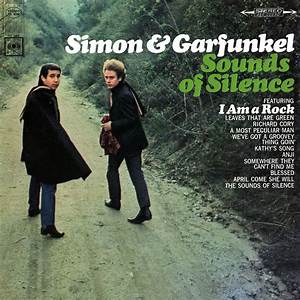 The district court dismissed fraud claims against an accounting firm for not complying with a Louisiana pre-suit review requirement. The Fifth Circuit affirmed but remanded for clarification as to whether the dismissal was with, or without, prejudice. Fed. R. Civ. P. 41 generally assumes that silence means “with
The district court dismissed fraud claims against an accounting firm for not complying with a Louisiana pre-suit review requirement. The Fifth Circuit affirmed but remanded for clarification as to whether the dismissal was with, or without, prejudice. Fed. R. Civ. P. 41 generally assumes that silence means “with  prejudice,” but the Supreme Court has recognized that that rule’s exception for “jurisdiction” goes so far as “encompassing those dismissals which are based on a plaintiff’s failure to comply with a precondition requisite to the Court’s going forward to determine the merits of his substantive claim.”
prejudice,” but the Supreme Court has recognized that that rule’s exception for “jurisdiction” goes so far as “encompassing those dismissals which are based on a plaintiff’s failure to comply with a precondition requisite to the Court’s going forward to determine the merits of his substantive claim.”
Firefighters’ Retirement System v. EisenerAmper LLP, No. 17-30273 (Aug. 2, 2018).
 The issue in Kirchner v. Deutsche Bank was whether a spouse’s signature on a deed of trust – but not the loan instrument – satisfied the Texas Constitution’s requirements about home equity loans. The Fifth Circuit found the issue was squarely addressed by a prior unpublished opinion, which it called “persuasive,” and affirmed – this time, in a published opinion. The broader principle is that unpublished opinions can work their way into published “status” when the issues they address are recurring ones. No. 17-50736 (July 11, 2018).
The issue in Kirchner v. Deutsche Bank was whether a spouse’s signature on a deed of trust – but not the loan instrument – satisfied the Texas Constitution’s requirements about home equity loans. The Fifth Circuit found the issue was squarely addressed by a prior unpublished opinion, which it called “persuasive,” and affirmed – this time, in a published opinion. The broader principle is that unpublished opinions can work their way into published “status” when the issues they address are recurring ones. No. 17-50736 (July 11, 2018).
 A practical tidbit about whether a notice of appeal is “jurisdictional” appeared during the last SCOTUS term in Hamer v. Neighborhood Housing Services: “Several Courts of Appeals, including the Court of Appeals in Hamer’s case, have tripped over our statement in Bowles [v. Russell, 551 U. S. 205, 210–213 (2007)], that “the taking of an appeal within the prescribed time is ‘mandatory and jurisdictional.’ The ‘mandatory and jurisdictional’ formulation is a characterization left over from days when we were ‘less than meticulous’ in our use of the term ‘jurisdictional.’ The statement was correct as applied in Bowles because, as the Court there explained, the time prescription at issue in Bowles was imposed by Congress. But ‘mandatory and jurisdictional’ is erroneous and confounding terminology where, as here, the relevant time prescription is absent from the U.S. Code. Because Rule 4(a)(5)(C), not § 2107, limits the length of the extension granted here, the time prescription is not jurisdictional.” No. 16-658 (Nov. 18, 2017) (citations and footnote omitted).
A practical tidbit about whether a notice of appeal is “jurisdictional” appeared during the last SCOTUS term in Hamer v. Neighborhood Housing Services: “Several Courts of Appeals, including the Court of Appeals in Hamer’s case, have tripped over our statement in Bowles [v. Russell, 551 U. S. 205, 210–213 (2007)], that “the taking of an appeal within the prescribed time is ‘mandatory and jurisdictional.’ The ‘mandatory and jurisdictional’ formulation is a characterization left over from days when we were ‘less than meticulous’ in our use of the term ‘jurisdictional.’ The statement was correct as applied in Bowles because, as the Court there explained, the time prescription at issue in Bowles was imposed by Congress. But ‘mandatory and jurisdictional’ is erroneous and confounding terminology where, as here, the relevant time prescription is absent from the U.S. Code. Because Rule 4(a)(5)(C), not § 2107, limits the length of the extension granted here, the time prescription is not jurisdictional.” No. 16-658 (Nov. 18, 2017) (citations and footnote omitted).
 An emotionally-charged lawsuit about the disposal of embryonic and fetal tissue led to an unfortunately-timed subpoena (during Holy Week) to the Texas Conference of Catholic Bishops, which in turn led to emergency appellate proceedings. The Fifth Circuit’s panel majority found the order was appealable as an interlocutory order notwithstanding Mohawk Indus. v. Carpenter, 558 U.S. 100 (2009), noting the importance of the First Amendment issues involved and that “Mohawk does not speak to the predicament of third parties, whose claims to reasonable protection from the courts have often been met with respect.” A dissenting opinion would not have accepted the interlocutory appeal, noting that mandamus was also available (although requiring a “clear and indisputable” right rather than simply a substantial question), and observing that the movants’ “failure to object to the in camera inspection [at issue] certainly forfeits an appellate challenge to it, and the affirmative act of producing the documents likely amounts to full-scale waiver.” Whole Woman’s Health v. Smith, No. 18-50484 (revised July 17, 2018).
An emotionally-charged lawsuit about the disposal of embryonic and fetal tissue led to an unfortunately-timed subpoena (during Holy Week) to the Texas Conference of Catholic Bishops, which in turn led to emergency appellate proceedings. The Fifth Circuit’s panel majority found the order was appealable as an interlocutory order notwithstanding Mohawk Indus. v. Carpenter, 558 U.S. 100 (2009), noting the importance of the First Amendment issues involved and that “Mohawk does not speak to the predicament of third parties, whose claims to reasonable protection from the courts have often been met with respect.” A dissenting opinion would not have accepted the interlocutory appeal, noting that mandamus was also available (although requiring a “clear and indisputable” right rather than simply a substantial question), and observing that the movants’ “failure to object to the in camera inspection [at issue] certainly forfeits an appellate challenge to it, and the affirmative act of producing the documents likely amounts to full-scale waiver.” Whole Woman’s Health v. Smith, No. 18-50484 (revised July 17, 2018).
 The Fifth Circuit affirmed the denial of a motion to dismiss under the TCPA (the Texas “anti-SLAPP” statute), noting that the appellant’s arguments to the district court limited him to “only . . . the theory that the TCPA applies because the claims are based on, related to, or in response to a communication in or pertaining to a judicial proceeding” within the meaning of that statute. The appellant submitted a Rule 28(j) letter citing a recent Texas Supreme Court opinion that, inter alia, recommended a “holistic review of the pleadings” in the TCPA context. The Fifth Circuit did not agree, characterizing this “point, at its core, [a]s the Texas Supreme Court’s application of that court’s argument waiver principles,” and observing: “Because this court consistently applies its waiver precedent in diversity jurisdiction cases, we will do so here.” Diamond Consortium, Inc. v. Hammervold, No.17-40582 (May 3, 2018).
The Fifth Circuit affirmed the denial of a motion to dismiss under the TCPA (the Texas “anti-SLAPP” statute), noting that the appellant’s arguments to the district court limited him to “only . . . the theory that the TCPA applies because the claims are based on, related to, or in response to a communication in or pertaining to a judicial proceeding” within the meaning of that statute. The appellant submitted a Rule 28(j) letter citing a recent Texas Supreme Court opinion that, inter alia, recommended a “holistic review of the pleadings” in the TCPA context. The Fifth Circuit did not agree, characterizing this “point, at its core, [a]s the Texas Supreme Court’s application of that court’s argument waiver principles,” and observing: “Because this court consistently applies its waiver precedent in diversity jurisdiction cases, we will do so here.” Diamond Consortium, Inc. v. Hammervold, No.17-40582 (May 3, 2018).
 A lawyer sought to appeal a sanctions order; the Fifth Circuit found that it lacked appellate jurisdiction:
A lawyer sought to appeal a sanctions order; the Fifth Circuit found that it lacked appellate jurisdiction:
- The Court did not accept the district court’s certification under Fed. R. Civ. P. 54(b), as “the claim for relief is the wrongful death and survival cause of action brought by [Plaintiff] . . . [t]he Rule 11 sanctions and referral to the disciplinary committee with findings of . . . misconduct are not claims for relief in this suit”;
- The district court’s Rule 54 order did not contain a certification about “a legal issue that satisfies the substantive requirements of § 1292(b),” and thus could not be treated as an appealable interlocutory order;
- The sanctions ruling was not a “collateral order,” as it is “reviewable after the district court makes its determinations of liability on the merits . . . .”; and
- A potentially-viable doctrine about the appeal of sanctions orders, combined with an attorney’s withdrawal, did not apply because the relevant counsel remained in the case
Nogess v. Poydras Center LLC, No. 17-30449 (April 3, 2018).
 Making a not-so-subtle remark about the requirements for a successful en banc petition, the Fifth Circuit has amended local rule 35.5 to say: “35.5 Length. See Fed. R. App. P. 35(b)(2). The statement required by Fed. R. App. P. 35(b)(1) is included in the limit and is not a “certificate[ ] of counsel” that is excluded by Fed. R. App P. 32(f).” In other words, the certificate of counsel about the specific cases inconsistent with the panel opinion counts against the length limit.
Making a not-so-subtle remark about the requirements for a successful en banc petition, the Fifth Circuit has amended local rule 35.5 to say: “35.5 Length. See Fed. R. App. P. 35(b)(2). The statement required by Fed. R. App. P. 35(b)(1) is included in the limit and is not a “certificate[ ] of counsel” that is excluded by Fed. R. App P. 32(f).” In other words, the certificate of counsel about the specific cases inconsistent with the panel opinion counts against the length limit.
 In Alice in Wonderland, the Mad Hatter remarked: “If I had a world of my own . . . Nothing would be what it is, because everything would be what it isn’t. And contrary wise, what is, it wouldn’t be. And what it wouldn’t be, it would. You see?” In that spirit, under 28 U.S.C. § 1447(d), a remand order is unreviewable on appeal if issued under one of the grounds in § 1447(c) – either a lack of subject matter jurisdiction, or the plaintiff moves ” to remand the case on the basis of any defect other than lack of subject matter jurisdiction . . . within 30 days after the filing of the notice of removal.” In Exxon Mobil Corp. v. Starr Indemnity, the plaintiff argued that the district court erred by remanding based on subject matter jurisdiction, when the issue before it was properly characterized as a late-raised procedural matter. The Fifth Circuit agreed, but held: “[Defendants], however, cannot evade the reviewability bar of § 1447(d) by establishing this defect. . . . . Indeed, each passage from the district court’s order to which the Insurers point as a clear and affirmative statement of a non-§ 1447(c) ground in fact expressly invokes that court’s perceived lack of subject matter jurisdiction. This belief, however erroneous, ‘sufficiently cloaks the remand order in the § 1447(c) absolute immunity from review’ and ends the inquiry.” No. 16-20821 (March 26, 2018, unpublished).
In Alice in Wonderland, the Mad Hatter remarked: “If I had a world of my own . . . Nothing would be what it is, because everything would be what it isn’t. And contrary wise, what is, it wouldn’t be. And what it wouldn’t be, it would. You see?” In that spirit, under 28 U.S.C. § 1447(d), a remand order is unreviewable on appeal if issued under one of the grounds in § 1447(c) – either a lack of subject matter jurisdiction, or the plaintiff moves ” to remand the case on the basis of any defect other than lack of subject matter jurisdiction . . . within 30 days after the filing of the notice of removal.” In Exxon Mobil Corp. v. Starr Indemnity, the plaintiff argued that the district court erred by remanding based on subject matter jurisdiction, when the issue before it was properly characterized as a late-raised procedural matter. The Fifth Circuit agreed, but held: “[Defendants], however, cannot evade the reviewability bar of § 1447(d) by establishing this defect. . . . . Indeed, each passage from the district court’s order to which the Insurers point as a clear and affirmative statement of a non-§ 1447(c) ground in fact expressly invokes that court’s perceived lack of subject matter jurisdiction. This belief, however erroneous, ‘sufficiently cloaks the remand order in the § 1447(c) absolute immunity from review’ and ends the inquiry.” No. 16-20821 (March 26, 2018, unpublished).
 Many years, ago, “the Supreme Court viewed the fashioning of statutory remedies as within the property judicial rule [u]nder the now-abandoned maxim that ‘a statutory right implies the existence of all necessary and appropriate remedies.'” But that view has changed, and now, “the judicial task is to interpret the statute Congress has passed.” Alexander v. Sandoval, 532 U.S. 275 (2001). Proceeding from that starting point, after a review of the text and structure of the Air Carrier Access Act of 1986, the Court agreed that the Act did not create a private right of action, and it recognized that earlier Circuit authority on the issue had been essentially overruled by the analytical framework in Sandoval. Stokes v. Southwest Airlines, No. 17-10760 (April 5, 2018).
Many years, ago, “the Supreme Court viewed the fashioning of statutory remedies as within the property judicial rule [u]nder the now-abandoned maxim that ‘a statutory right implies the existence of all necessary and appropriate remedies.'” But that view has changed, and now, “the judicial task is to interpret the statute Congress has passed.” Alexander v. Sandoval, 532 U.S. 275 (2001). Proceeding from that starting point, after a review of the text and structure of the Air Carrier Access Act of 1986, the Court agreed that the Act did not create a private right of action, and it recognized that earlier Circuit authority on the issue had been essentially overruled by the analytical framework in Sandoval. Stokes v. Southwest Airlines, No. 17-10760 (April 5, 2018).
 In Howard v. Maxum Indemnity Co., “Howard’s appeal raises as a central, threshold question whether he waived application of Oklahoma law” in an insurance dispute. Unfortunately, “[a]lthough Howard did raise the choice of law issue in his Rule 59(e) motion, ‘this court will typically not consider an issue or a new arugment raised for the first time in a motion for reconsideration in the district court.’ . . . ‘Parties generally are bound by the theory of law they argue in the district court, absent some manifest injustice.'” No. 16-11746 (Dec. 13, 2017).
In Howard v. Maxum Indemnity Co., “Howard’s appeal raises as a central, threshold question whether he waived application of Oklahoma law” in an insurance dispute. Unfortunately, “[a]lthough Howard did raise the choice of law issue in his Rule 59(e) motion, ‘this court will typically not consider an issue or a new arugment raised for the first time in a motion for reconsideration in the district court.’ . . . ‘Parties generally are bound by the theory of law they argue in the district court, absent some manifest injustice.'” No. 16-11746 (Dec. 13, 2017).
 A premature notice of appeal is certainly better than nothing, but may not be enough, as the Fifth Circuit noted in Johnson v. Real Estate Mortgage Network, Inc.: “Before we address Johnson’s contentions on appeal, we note that Johnson’s notice of appeal from the summary judgment dismissing the claims against some, but not all, of the defendants, was premature. Nevertheless, because the district court could have certified that the summary judgment was appealable, and it subsequently entered a final judgment, the notice of appeal gives us appellate jurisdiction over the summary judgment. However, because Johnson did not file a notice of appeal from the final judgment, which dismissed his remaining claims against REMNI/Homebridge, we do not have jurisdiction to consider the dismissal of his claims against REMNI/Homebridge.” No. 17-20347 (Dec. 1, 2017, unpublished).
A premature notice of appeal is certainly better than nothing, but may not be enough, as the Fifth Circuit noted in Johnson v. Real Estate Mortgage Network, Inc.: “Before we address Johnson’s contentions on appeal, we note that Johnson’s notice of appeal from the summary judgment dismissing the claims against some, but not all, of the defendants, was premature. Nevertheless, because the district court could have certified that the summary judgment was appealable, and it subsequently entered a final judgment, the notice of appeal gives us appellate jurisdiction over the summary judgment. However, because Johnson did not file a notice of appeal from the final judgment, which dismissed his remaining claims against REMNI/Homebridge, we do not have jurisdiction to consider the dismissal of his claims against REMNI/Homebridge.” No. 17-20347 (Dec. 1, 2017, unpublished).
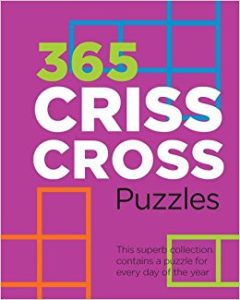 In an insurance coverage dispute, the district court granted both sides’ motions for summary judgment as to the meaning of various policy terms. The net result was final judgment for the insurance company. The insured appealed; the insurer cross-appealed, and on that procedural point, the Fifth Circuit held that the cross-appeal was unnecessary, noting:
In an insurance coverage dispute, the district court granted both sides’ motions for summary judgment as to the meaning of various policy terms. The net result was final judgment for the insurance company. The insured appealed; the insurer cross-appealed, and on that procedural point, the Fifth Circuit held that the cross-appeal was unnecessary, noting:
- “National Union is conflating the district court’s opinion (i.e., the order) with its judgment. Appellate courts review judgments, not opinions. . . . To the extent that the district court rejected the arguments in National Union’s cross-appeal, ‘an appellee may urge any ground available in support of a judgment even if that ground was . . . rejected by the trial court.'” (citations omitted);
- The recent case of ART Midwest v. Atlantic Limited Partnership XII,742 F.3d 206 (5th Cir. 2014), in which a party was not allowed to raise certain issues after not taking a cross-appeal, was distinguishable because judgment had actually been entered against that party on those issues. “Here,there is no adverse judgment against National Union, such that it might need to protect its rights—just some adverse reasoning”; and
- “This is not just formalism. ‘A cross-appeal filed for the sole purpose of advancing additional arguments in support of a judgment is “worse than unnecessary”, because it disrupts the briefing schedule, increases the number (and usually the length) of briefs, and tends to confuse the issues.’ . . . In this case, National Union’s improper cross-appeal resulted in an over-length opposition brief and an additional reply (giving National Union over four thousand words of additional briefing).” (citations omitted)
Cooper Indus. v. Nat’l Union Fire Ins. Co., No. 16-20539 (revised Dec. 11, 2017).
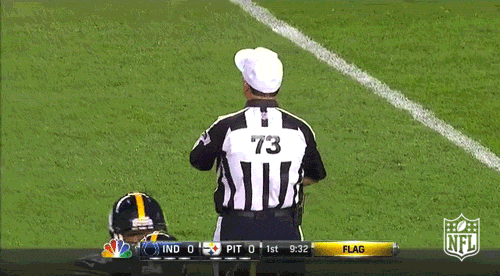 In a 2-1 decision, the Fifth Circuit found that Ezekiel Elliott failed to exhaust remedies within the NFL’s dispute-resolution process before filing suit, meaning that the federal courts lacked subject matter jurisdiction over his complaints. A dissent found a sufficient question about the adequacy of the process to justify the exercise of jurisdiction under the relevant authorities. NFLPA v. NFL, No. 17-40936 (Oct. 12, 2017). While of enormous interest to Cowboys fans, so far as arbitration goes, the opinion is centered on issues unique to collective bargaining agreements.
In a 2-1 decision, the Fifth Circuit found that Ezekiel Elliott failed to exhaust remedies within the NFL’s dispute-resolution process before filing suit, meaning that the federal courts lacked subject matter jurisdiction over his complaints. A dissent found a sufficient question about the adequacy of the process to justify the exercise of jurisdiction under the relevant authorities. NFLPA v. NFL, No. 17-40936 (Oct. 12, 2017). While of enormous interest to Cowboys fans, so far as arbitration goes, the opinion is centered on issues unique to collective bargaining agreements.
 The high-profile dispute between Dallas Cowboys star Ezekiel Elliott and the NFL Players’ Association, on the one hand, and the NFL on the other, has reached the Fifth Circuit after the district court’s grant of a preliminary injunction against Elliott’s suspension by the league. The NFL has moved for an interim stay; the successful plaintiffs have responded; and a motions panel of the Court will consider that issue in the week ahead.
The high-profile dispute between Dallas Cowboys star Ezekiel Elliott and the NFL Players’ Association, on the one hand, and the NFL on the other, has reached the Fifth Circuit after the district court’s grant of a preliminary injunction against Elliott’s suspension by the league. The NFL has moved for an interim stay; the successful plaintiffs have responded; and a motions panel of the Court will consider that issue in the week ahead.
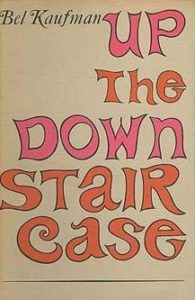 In AMA Discount, Inc. v. Seneca Specialty Ins. Co., the Fifth Circuit rejected an interlocutory appeal on a question of bad faith claims handling under Louisiana insurane law, noting that a potentially conflicting district court decision had recently settled on appeal, and the parties actually disputed the application of law to fact rather than the controlling legal standard. The Court acknowledged that this ruling differed from that of a prior motions panel, but observered that at this stage, the case “has the benefit of full briefing and a completed record.” The Court concluded: “Perhaps an interlocutory certification would ‘materially advance the termination’ of this litigation. If that were the decisive question, of course, there would be few roadblocks to interlocutory appeals of legal issues.” No. 16-31158 (Sept. 11, 2017, unpublished).
In AMA Discount, Inc. v. Seneca Specialty Ins. Co., the Fifth Circuit rejected an interlocutory appeal on a question of bad faith claims handling under Louisiana insurane law, noting that a potentially conflicting district court decision had recently settled on appeal, and the parties actually disputed the application of law to fact rather than the controlling legal standard. The Court acknowledged that this ruling differed from that of a prior motions panel, but observered that at this stage, the case “has the benefit of full briefing and a completed record.” The Court concluded: “Perhaps an interlocutory certification would ‘materially advance the termination’ of this litigation. If that were the decisive question, of course, there would be few roadblocks to interlocutory appeals of legal issues.” No. 16-31158 (Sept. 11, 2017, unpublished).
 The panel majority in Veasey v. Abbott concluded that a stay was warranted during the appeal of an injunction against certain “voter ID” laws, focusing on the likelihood-of-success element of the standard four-part test: “As the State explains, each of the 27 voters identified – whose testimony the plaintiffs used to support their discriminatory-effect claim – can vote without impediment under SB 5. The State has made a strong showing that htis reasonable-impediment procedure remedies plaintiffs’ alleged harm and thus forecloses plaintiffs’ injunctive relief.”
The panel majority in Veasey v. Abbott concluded that a stay was warranted during the appeal of an injunction against certain “voter ID” laws, focusing on the likelihood-of-success element of the standard four-part test: “As the State explains, each of the 27 voters identified – whose testimony the plaintiffs used to support their discriminatory-effect claim – can vote without impediment under SB 5. The State has made a strong showing that htis reasonable-impediment procedure remedies plaintiffs’ alleged harm and thus forecloses plaintiffs’ injunctive relief.”- A dissent disagreed as to the elements of the four-part test, and the overrarching
 concept of “preserving the status quo”: “Neither side would be irreparably harmed by continuing to operate under the same election procedures they have been operating under for more than a year. If a stay is granted at all, then it should be comprehensive. In other words, the correct approach would be to stay both the district court’s order and the new legislation.” No. 17-40884 (Sept. 5, 2017).
concept of “preserving the status quo”: “Neither side would be irreparably harmed by continuing to operate under the same election procedures they have been operating under for more than a year. If a stay is granted at all, then it should be comprehensive. In other words, the correct approach would be to stay both the district court’s order and the new legislation.” No. 17-40884 (Sept. 5, 2017).
 Duggan, an non-named member of a class certified under Fed. R. Civ. P. 23(b)(1), made an untimely objection to the fairness of the class settlement. While he was not a named party, he sought to appeal under the doctrine recognized by Devlin v. Scardelletti, 536 U.S. 1 (2002), which allowed non-named class members “who have objected in a timely manner to approval of the settlement at the fairness hearing have the power to bring an appeal without first intervening.” Unfortunately for Duggan, the Fifth Circuit found no reason to excuse his late objection, in particular rejecting the argument that his opponent was required to move to strike the objection in district court as a prerequisite to arguing waiver on appeal. Farber v. Crestwood Midstream Partners LP , No. 16-20742 (July 17, 2017).
Duggan, an non-named member of a class certified under Fed. R. Civ. P. 23(b)(1), made an untimely objection to the fairness of the class settlement. While he was not a named party, he sought to appeal under the doctrine recognized by Devlin v. Scardelletti, 536 U.S. 1 (2002), which allowed non-named class members “who have objected in a timely manner to approval of the settlement at the fairness hearing have the power to bring an appeal without first intervening.” Unfortunately for Duggan, the Fifth Circuit found no reason to excuse his late objection, in particular rejecting the argument that his opponent was required to move to strike the objection in district court as a prerequisite to arguing waiver on appeal. Farber v. Crestwood Midstream Partners LP , No. 16-20742 (July 17, 2017).
 Litigation continues on the Texas tollroads, most recently producing a defamation lawsuit in BancPass v. Highway Toll Administration LLC, arising from letters sent by a company’s competitors to Google and Apple. The defendant unsuccessfully argued that the letters were immune from liability by the Texas privilege associated with court proceedings.
Litigation continues on the Texas tollroads, most recently producing a defamation lawsuit in BancPass v. Highway Toll Administration LLC, arising from letters sent by a company’s competitors to Google and Apple. The defendant unsuccessfully argued that the letters were immune from liability by the Texas privilege associated with court proceedings.
Before the Fifth Circuit, matters began well for the defendant – the Court concluded (1) that an immediate interlocutory appeal was allowed because the Texas privilege protects from suit, not just liability, and (2) while “[c]ertainly, the district court expressed its displeasure” at this issue arising late in the proceedings, it did not formally certify the appeal as frivolous (and thus avoided a line of cases that would otherwise have undermined defendant’s appeal right). But on the merits:
 “Texas caselaw is clear that our analysis must focus on the connection between the communications and the specific legal action HTA now claims that it was contemplating, rather than legal action more broadly. The letters to Google and Apple in particular put forward bare accusations of unlawful conduct that was unrelated to HTA’s later tortious interference claim and that neither directly implicated HTA’s own legal rights nor constituted legal claims that HTA had any ability to pursue.”
“Texas caselaw is clear that our analysis must focus on the connection between the communications and the specific legal action HTA now claims that it was contemplating, rather than legal action more broadly. The letters to Google and Apple in particular put forward bare accusations of unlawful conduct that was unrelated to HTA’s later tortious interference claim and that neither directly implicated HTA’s own legal rights nor constituted legal claims that HTA had any ability to pursue.”
No. 16-51073 (July 13, 2017).
 At oral argument, the appellant in a technical dispute about the appointment of arbitrators “argued for the first time that ‘if maritime jurisdiction applies, then . . . there is appellate jurisdiction over the appeal.'” The Fifth Circuit observed: “We do not usually allow parties to raise a new argument for the first time at oral argument. . . . Of course, an argument that this court lacks jurisdiction cannot be waived, but here the argument is that the court has jurisdiction, a matter the appellant is required to prove.” Bordelon Marine, LLC v. Bibby Subsea ROV, LLC, No. 16-30847 (April 14, 2017, unpublished).
At oral argument, the appellant in a technical dispute about the appointment of arbitrators “argued for the first time that ‘if maritime jurisdiction applies, then . . . there is appellate jurisdiction over the appeal.'” The Fifth Circuit observed: “We do not usually allow parties to raise a new argument for the first time at oral argument. . . . Of course, an argument that this court lacks jurisdiction cannot be waived, but here the argument is that the court has jurisdiction, a matter the appellant is required to prove.” Bordelon Marine, LLC v. Bibby Subsea ROV, LLC, No. 16-30847 (April 14, 2017, unpublished).
 In Smitherman v. Bayview Loan Servicing LLC, the Fifth Circuit order a limited remand to the district court, so that court could supplement the record about the defendant’s citizenship and then make findings. The district court, however, went on to vacate the judgment it had entered previously and remand the case to state court. The Fifth Circuit observed: “Because the district court lacked the authority to do so, we construe it[]s order to be an indicative ruling made pursuant to Federal Rule of Civil Procedure 62.1(a)(2). Accordingly, we REMAND this case to the district court and DISMISS the appeal as moot and relinquish jurisdiction pursuant to Federal Rule of Appellate Procedure 12.1(b).” No. 16-20328 (March 29, 2017, unpublished).
In Smitherman v. Bayview Loan Servicing LLC, the Fifth Circuit order a limited remand to the district court, so that court could supplement the record about the defendant’s citizenship and then make findings. The district court, however, went on to vacate the judgment it had entered previously and remand the case to state court. The Fifth Circuit observed: “Because the district court lacked the authority to do so, we construe it[]s order to be an indicative ruling made pursuant to Federal Rule of Civil Procedure 62.1(a)(2). Accordingly, we REMAND this case to the district court and DISMISS the appeal as moot and relinquish jurisdiction pursuant to Federal Rule of Appellate Procedure 12.1(b).” No. 16-20328 (March 29, 2017, unpublished).
 It is well-settled nationally that “an appellate court may not alter a judgment to benefit a nonappealing party” because “it takes a cross-appeal to justify a remedy in favor of an appellee.” Greenlaw v. United States, 554 U.S. 237, 244–45 (2008). The Fifth Circuit treats that principle as jurisdictional. See, e.g., Amazing Spaces, Inc. v. Metro Mini Storage, 608 F.3d 225, 250 (5th Cir. 2010) (“[T]his circuit follows the general rule that, in the absence of a cross-appeal, an appellate court has no jurisdiction to modify a judgment so as to enlarge the rights of the appellee or diminish the rights of the appellant.”) Some other Circuits, however, take a different view. See, e.g., Am. Roll-On Roll-Off Carrier LLC v. P&O Parts Baltimore, Inc., 479 F.3d 288, 295 (4th Cir. 2007) (“This circuit views the cross-appeal requirement as one of practice, rather than as a strict jurisdictional requirement.”) (Thanks to my LPCH colleague Russ Herman for pointing this out.)
It is well-settled nationally that “an appellate court may not alter a judgment to benefit a nonappealing party” because “it takes a cross-appeal to justify a remedy in favor of an appellee.” Greenlaw v. United States, 554 U.S. 237, 244–45 (2008). The Fifth Circuit treats that principle as jurisdictional. See, e.g., Amazing Spaces, Inc. v. Metro Mini Storage, 608 F.3d 225, 250 (5th Cir. 2010) (“[T]his circuit follows the general rule that, in the absence of a cross-appeal, an appellate court has no jurisdiction to modify a judgment so as to enlarge the rights of the appellee or diminish the rights of the appellant.”) Some other Circuits, however, take a different view. See, e.g., Am. Roll-On Roll-Off Carrier LLC v. P&O Parts Baltimore, Inc., 479 F.3d 288, 295 (4th Cir. 2007) (“This circuit views the cross-appeal requirement as one of practice, rather than as a strict jurisdictional requirement.”) (Thanks to my LPCH colleague Russ Herman for pointing this out.)
 In Netsch v. Sherman, the appellants’ counsel missed the 14-day deadline for an appeal from bankruptcy court. The district court denied relief and the Fifth Circuit affirmed; while noting that all relevant factors were either neutral or favored appellants, it concluded:”[T]he bankruptcy court concluded that the reason for the delay weighed strongly against finding excusable neglect. In its analysis of this factor, the bankruptcy court emphasized that the parties had been subject to the Federal Rules of Bankruptcy Procedure throughout the adversary proceeding, these rules were unambiguous, and Appellants’ counsel confused the Federal Rules of Bankruptcy Procedure with the Federal Rules of Civil Procedure. The bankruptcy court also indicated that confusing bankruptcy procedure with civil procedure does not constitute excusable neglect. Consequently, the court held that the reason for the delay should be given greater weight than other factors.” No. 16-10432 (Dec. 22, 2016, unpublished).
In Netsch v. Sherman, the appellants’ counsel missed the 14-day deadline for an appeal from bankruptcy court. The district court denied relief and the Fifth Circuit affirmed; while noting that all relevant factors were either neutral or favored appellants, it concluded:”[T]he bankruptcy court concluded that the reason for the delay weighed strongly against finding excusable neglect. In its analysis of this factor, the bankruptcy court emphasized that the parties had been subject to the Federal Rules of Bankruptcy Procedure throughout the adversary proceeding, these rules were unambiguous, and Appellants’ counsel confused the Federal Rules of Bankruptcy Procedure with the Federal Rules of Civil Procedure. The bankruptcy court also indicated that confusing bankruptcy procedure with civil procedure does not constitute excusable neglect. Consequently, the court held that the reason for the delay should be given greater weight than other factors.” No. 16-10432 (Dec. 22, 2016, unpublished).
 Johnson-Williams sued MERS about a foreclosure. She lost a Rule 12(b)(6) motion filed by MERS, then her own motion for leave to amend, and finally a motion for reconsideration. She appealed, and the Fifth Circuit observed the limited scope of her appeal, as the notice referred only to the district court’s order as to the amendment. Johnson-Williams v. MERS, No. 16-10276 (Jan. 4, 2017, unpublished).
Johnson-Williams sued MERS about a foreclosure. She lost a Rule 12(b)(6) motion filed by MERS, then her own motion for leave to amend, and finally a motion for reconsideration. She appealed, and the Fifth Circuit observed the limited scope of her appeal, as the notice referred only to the district court’s order as to the amendment. Johnson-Williams v. MERS, No. 16-10276 (Jan. 4, 2017, unpublished).
 In a dispute about a home loan, the district court wrote an opinion found for the defendant mortgage servicer in all respects, including its counterclaim for judicial foreclosure. The final judgment, unfortunately, did not address that claim or otherwise contain “catch-all” language. Because “[t]he district court’s ‘final judgment’ neither adjudicates ‘all claims . . . of all parties,’ nor expressly styles itself as a partial final judgment pursuant to Rule 54(b). . . . this Court has no appellate jurisdiction and cannot review the merits of the case.” Wease v. Ocwen Loan Servicing LLC, No. 16-10521 (Dec. 29, 2016, unpublished).
In a dispute about a home loan, the district court wrote an opinion found for the defendant mortgage servicer in all respects, including its counterclaim for judicial foreclosure. The final judgment, unfortunately, did not address that claim or otherwise contain “catch-all” language. Because “[t]he district court’s ‘final judgment’ neither adjudicates ‘all claims . . . of all parties,’ nor expressly styles itself as a partial final judgment pursuant to Rule 54(b). . . . this Court has no appellate jurisdiction and cannot review the merits of the case.” Wease v. Ocwen Loan Servicing LLC, No. 16-10521 (Dec. 29, 2016, unpublished).
 While the Court did address the merits, and its enthusiasm for the appeal was tempered by the many cases brought to it about the BP Deepwater Horizon settlement, the Fifth Circuit offered this cautionary note about briefing the standard of review: “Bailey’s opening brief skips this step — it does not acknowledge the standard of review, and offers no arguments to show that the district court abused its discretion. Bailey therefore has waived an issue necessary to the success of the appeal.” Claimant v. BP Exploration & Production, No. 16-30642 (Dec. 13, 2016, unpublished).
While the Court did address the merits, and its enthusiasm for the appeal was tempered by the many cases brought to it about the BP Deepwater Horizon settlement, the Fifth Circuit offered this cautionary note about briefing the standard of review: “Bailey’s opening brief skips this step — it does not acknowledge the standard of review, and offers no arguments to show that the district court abused its discretion. Bailey therefore has waived an issue necessary to the success of the appeal.” Claimant v. BP Exploration & Production, No. 16-30642 (Dec. 13, 2016, unpublished).
 The NLRB consistently holds that an agreement requiring arbitration of individual claims (and thus foreclosing class actions) violates federal labor law; the Fifth Circuit consistently reverses the NLRB on this point. After again reversing the NLRB and citing the Circuit’s “rule of orderliness” about deference to prior panel decisions, the Court noted the NLRB’s remarkably candid litigation position: “The Board concedes that this court has squarely rejected both of those decisions, and that our precedents necessitate rejecting its arguments here. The Board further acknowledges that it seeks to manufacture a circuit split in order to ‘facilitate Supreme Court review.'” Employers Resource v. NLRB, No. 16-60034 (Nov. 1, 2016, unpublished).
The NLRB consistently holds that an agreement requiring arbitration of individual claims (and thus foreclosing class actions) violates federal labor law; the Fifth Circuit consistently reverses the NLRB on this point. After again reversing the NLRB and citing the Circuit’s “rule of orderliness” about deference to prior panel decisions, the Court noted the NLRB’s remarkably candid litigation position: “The Board concedes that this court has squarely rejected both of those decisions, and that our precedents necessitate rejecting its arguments here. The Board further acknowledges that it seeks to manufacture a circuit split in order to ‘facilitate Supreme Court review.'” Employers Resource v. NLRB, No. 16-60034 (Nov. 1, 2016, unpublished).
 A group of optometrists won judgment against Wal-Mart for $1,395,400, consisting entirely of statutory penalties relating to Wal-Mart’s influence over their working hours. After withdrawing the initial panel opinion and then receiving answers to certified questions in Forte v. Wal-Mart Stores, Inc., No. 15-0146 (Tex. May 20, 2016), the Fifth Circuit again concluded that “the district court’s judgment regarding damages must be vacated; attorneys’ fees are the only matter that remains in the case.” Forte v. Wal-Mart Stores, Inc., No. 12-40854 (Oct. 27, 2016).
A group of optometrists won judgment against Wal-Mart for $1,395,400, consisting entirely of statutory penalties relating to Wal-Mart’s influence over their working hours. After withdrawing the initial panel opinion and then receiving answers to certified questions in Forte v. Wal-Mart Stores, Inc., No. 15-0146 (Tex. May 20, 2016), the Fifth Circuit again concluded that “the district court’s judgment regarding damages must be vacated; attorneys’ fees are the only matter that remains in the case.” Forte v. Wal-Mart Stores, Inc., No. 12-40854 (Oct. 27, 2016).
 Bonnie Pereida’s estate successfully brought RICO claims against a dealer in rare coins, arguing that it systematically deceived Ms. Pereida about the quality of the coins she bought from it. The Fifth Circuit agreed with the estate that the RICO claim survived her, finding that “RICO’s remedial purpose predominates” over its penal purposes. But, it reversed as to the proof of a “pattern of racketeering activity,” finding that the relevant time period was too short and did not qualify as “open-ended.” It noted that on remand, the plaintiff could potentially still elect a remedy in common-law fraud where this problem would not arise.
Bonnie Pereida’s estate successfully brought RICO claims against a dealer in rare coins, arguing that it systematically deceived Ms. Pereida about the quality of the coins she bought from it. The Fifth Circuit agreed with the estate that the RICO claim survived her, finding that “RICO’s remedial purpose predominates” over its penal purposes. But, it reversed as to the proof of a “pattern of racketeering activity,” finding that the relevant time period was too short and did not qualify as “open-ended.” It noted that on remand, the plaintiff could potentially still elect a remedy in common-law fraud where this problem would not arise.
During that analysis, the Court offered a telling general comment: “[Plaintiff] contends that the Defendants waived this challenge to the ‘pattern’ element by raising it for the first time in their motion for a new trial. It should have been raised, he argues, in a motion for summary judgment so he would have known that this was a contested issue. The argument says a lot about modern civil litigation in which summary judgment, rather than trial, has become the focus. But when a case does go to trial, the burden is on the plaintiff to prove every element.” Malvino v. Dellniversita, No. 15-41435 (Oct. 20, 2016) (emphasis added).
 Graves v. Colvin provides an exceptionally clear illustration of harmless error:
Graves v. Colvin provides an exceptionally clear illustration of harmless error:
- Graves challenged the Social Security Administration’s determination that she was not disabled.
- A regulation governing ALJ hearings on such matters provides: “Occupational evidence provided by a VE or VS [vocational expert or vocational specialist] generally should be consistent with the occupational information supplied by the DOT [“Dictionary of Occupational Titles”] . . . At the hearings level, as part of the adjudicator’s duty to fully develop the record, the adjudicator will inquire, on the record, as to whether or not there is such consistency.”
- Graves lost, and argued in court that the ALJ failed to ask this required question.
- But — “‘Procedural perfection in administrative proceedings is not required’ as long as ‘the substantial rights of a party have not been affected.’ Graves does not even attempt to show that the vocational expert’s testimony was actually inconsistent with the DOT. Nor has she otherwise demonstrated prejudice. Hence, the ALJ’s procedural error was harmless and does not warrant reversal.”
No. 16-10340 (Sept. 21, 2016).
 In Smith Group JJR, PLLC v. Forrest General Hospital, a dispute about an architect’s fee, the appellant argued that “the district court erred by considering extrinsic evidence bearing on the meaning of the term ‘actual contstruction cost’ in the parties’ agreement. This issue – the proper role of extrinsic evidence in determining the meaning of a contract, produces frequent litigation and frequent differences of opinion between district courts and the Fifth Circuit. Here, the
In Smith Group JJR, PLLC v. Forrest General Hospital, a dispute about an architect’s fee, the appellant argued that “the district court erred by considering extrinsic evidence bearing on the meaning of the term ‘actual contstruction cost’ in the parties’ agreement. This issue – the proper role of extrinsic evidence in determining the meaning of a contract, produces frequent litigation and frequent differences of opinion between district courts and the Fifth Circuit. Here, the  court found a waiver of these arguments before the trial court, reminding that “citing cases that may contain a useful argument is simply inadequate to preserve that argument for appeal; ‘to be preserved, an argument must be pressed, and not merely intimated.'” No. 16-60134 (Sept. 9, 2016, unpublished). (This post was picked as one of the top five of the week by the Appellate Advocacy blog on the Law Professor Blogs Network!)
court found a waiver of these arguments before the trial court, reminding that “citing cases that may contain a useful argument is simply inadequate to preserve that argument for appeal; ‘to be preserved, an argument must be pressed, and not merely intimated.'” No. 16-60134 (Sept. 9, 2016, unpublished). (This post was picked as one of the top five of the week by the Appellate Advocacy blog on the Law Professor Blogs Network!)
 In trademark and trade dress litigation be
In trademark and trade dress litigation be tween Diageo, the maker of Crown Royal (left) and Mexcor, who makes Texas Crown Club (right), Diageo stipulated that “Mexcor did not infringe its marks until Mexcor sold its very first Texas Crown Club bottle in a bag bearing the Texas Crown Club logo” during the fourth quarter of 2011. Despite this concession, the Fifth Circuit concluded that Mexcor was not entitled to judgment on related issues when it “failed to urge that these counterclaims be presented to the jury after the district court denied its motions for JMOL.” The Court went on to remand the permanent injunction against Mexcor for revisoin, noting that the injunctoin could not extend to a type of bag that Mexcor had established its legal entitledment to use, and observing as to the last, “catch-all” provision of the injunction: “We are hesitant to approve such open-ended language, particularly because in other contexts this court
tween Diageo, the maker of Crown Royal (left) and Mexcor, who makes Texas Crown Club (right), Diageo stipulated that “Mexcor did not infringe its marks until Mexcor sold its very first Texas Crown Club bottle in a bag bearing the Texas Crown Club logo” during the fourth quarter of 2011. Despite this concession, the Fifth Circuit concluded that Mexcor was not entitled to judgment on related issues when it “failed to urge that these counterclaims be presented to the jury after the district court denied its motions for JMOL.” The Court went on to remand the permanent injunction against Mexcor for revisoin, noting that the injunctoin could not extend to a type of bag that Mexcor had established its legal entitledment to use, and observing as to the last, “catch-all” provision of the injunction: “We are hesitant to approve such open-ended language, particularly because in other contexts this court  has held that such ‘obey the law’ injunction orders are not permitted.” Diageo North America, Inc. v. Mexcor, Inc., No 15-20630 (Sept. 2, 2016, unpublished). (The opinon also notes
has held that such ‘obey the law’ injunction orders are not permitted.” Diageo North America, Inc. v. Mexcor, Inc., No 15-20630 (Sept. 2, 2016, unpublished). (The opinon also notes  the distinction between “whisky” (distilled in Scotland) and “whiskey” (distilled in the U.S. or Ireland), although none of these countries are the source of the liquor in this case, which the parties spelled “whisky.”)
the distinction between “whisky” (distilled in Scotland) and “whiskey” (distilled in the U.S. or Ireland), although none of these countries are the source of the liquor in this case, which the parties spelled “whisky.”)
 Jones, the sole shareholder of a bankrupt business, moved to intervene in a lawsuit between the trustee for the business and Bank of America — two weeks after the parties had filed a stipulation of dismissal that the district court accepted. The district court denied Jones’s motion; he appealed, and the Fifth Circuit affirmed. As to the stipulation of dismissal, the appeal was untimely; as to the intervention, while Jones’s late arrival did not bar his motion outright, it heavily influenced the relevant factors against him. Sommers v. Bank of America, No. 15-20775 (Aug. 26, 2016).
Jones, the sole shareholder of a bankrupt business, moved to intervene in a lawsuit between the trustee for the business and Bank of America — two weeks after the parties had filed a stipulation of dismissal that the district court accepted. The district court denied Jones’s motion; he appealed, and the Fifth Circuit affirmed. As to the stipulation of dismissal, the appeal was untimely; as to the intervention, while Jones’s late arrival did not bar his motion outright, it heavily influenced the relevant factors against him. Sommers v. Bank of America, No. 15-20775 (Aug. 26, 2016).
 For some time, the Golf Channel and the receiver for Allen Stanford’s affairs have disputed whether the Channel gave value in exchange for the purchase of roughly $6 million in advertising. The Channel contended that it did by giving exactly the advertising that Stanford ordered; the receiver disagreed, noting that Stanford was running a valueless Ponzi scheme. On certification from the Fifth Circuit, the Texas Supreme Court sided with the Channel, holding that under the Texas version of the Uniform Fraudulent Transfer Act, the Channel gave value from an objective perspective. The Fifth Circuit accepted that holding as to this case, but noted: “The Supreme Court of Texas’s answer interprets the concept of ‘value’ under TUFTA differently than we have understood ‘value’ under other states’ fraudulent transfer laws and under section 548(c) [of] the Bankruptcy Code.” Janvey v. Golf Channel, No. 13-11305 (Aug. 22, 2016).
For some time, the Golf Channel and the receiver for Allen Stanford’s affairs have disputed whether the Channel gave value in exchange for the purchase of roughly $6 million in advertising. The Channel contended that it did by giving exactly the advertising that Stanford ordered; the receiver disagreed, noting that Stanford was running a valueless Ponzi scheme. On certification from the Fifth Circuit, the Texas Supreme Court sided with the Channel, holding that under the Texas version of the Uniform Fraudulent Transfer Act, the Channel gave value from an objective perspective. The Fifth Circuit accepted that holding as to this case, but noted: “The Supreme Court of Texas’s answer interprets the concept of ‘value’ under TUFTA differently than we have understood ‘value’ under other states’ fraudulent transfer laws and under section 548(c) [of] the Bankruptcy Code.” Janvey v. Golf Channel, No. 13-11305 (Aug. 22, 2016).
 The ECF records for the Western District of Texas showed that the appellant in Sudduth v. Texas Health & Human Services Commission filed her notice of appeal on August 31 — one day late. Following Franklin v. McHugh, 804 F.3d 627 (2d Cir. 2015), the Fifth Circuit found the ECF notices dispositive and dismissed for lack of jurisdiction. The Court observed that the Western District local rules and Fed. R. App. P. 4(a)(5) allow a party to seek relief from the district court in the event of technical problems with the ECF filing, which the appellant did not do here. Finally, “Sudduth argues that she was not made aware of any jurisdictional defect until this court requested briefing on this issue and that, at the very least, Franklin should not be retroactively applied to her case because it is new law. But, as previously discussed, the local rules and procedures here were sufficiently clear as to the requirements for timely filing, and the onus is on Sudduth, not the court, to be aware of and cure any deficiencies in the notice of appeal.” No. 15-50764 (July 18, 2016).
The ECF records for the Western District of Texas showed that the appellant in Sudduth v. Texas Health & Human Services Commission filed her notice of appeal on August 31 — one day late. Following Franklin v. McHugh, 804 F.3d 627 (2d Cir. 2015), the Fifth Circuit found the ECF notices dispositive and dismissed for lack of jurisdiction. The Court observed that the Western District local rules and Fed. R. App. P. 4(a)(5) allow a party to seek relief from the district court in the event of technical problems with the ECF filing, which the appellant did not do here. Finally, “Sudduth argues that she was not made aware of any jurisdictional defect until this court requested briefing on this issue and that, at the very least, Franklin should not be retroactively applied to her case because it is new law. But, as previously discussed, the local rules and procedures here were sufficiently clear as to the requirements for timely filing, and the onus is on Sudduth, not the court, to be aware of and cure any deficiencies in the notice of appeal.” No. 15-50764 (July 18, 2016).
 In an uncommon example of a successful application for an appellate stay, the Fifth Circuit stayed the EPA’s rulings about Texas’s haze reduction plans. The Court found a likelihood of success on the merits, based on, inter alia, the degree of deference required by EPA, the lack of on-point authority supporting its position, and statutory limits on its power. As to irreparable injury, the Court noted the substantial compliance costs faced by power companies (to the point of risking
In an uncommon example of a successful application for an appellate stay, the Fifth Circuit stayed the EPA’s rulings about Texas’s haze reduction plans. The Court found a likelihood of success on the merits, based on, inter alia, the degree of deference required by EPA, the lack of on-point authority supporting its position, and statutory limits on its power. As to irreparable injury, the Court noted the substantial compliance costs faced by power companies (to the point of risking  “unemployment and the permanent closure plants”), and the lack of any mechanism for them to recover those costs if the EPA’s rule was invalidated. The Court also noted “the threat of grid instability and potential brownouts,” as well as the potential injury from a violation of the federalism principles in the Clean Air Act. Finally, the court “agree[s] with Petitioners that the public’s interest in ready access to affordable electricity outweighs the inconsequential visibility differences that the federal implementation plan would achieve in the near future.” Texas v. EPA, No. 16-60118 (July 15, 2016).
“unemployment and the permanent closure plants”), and the lack of any mechanism for them to recover those costs if the EPA’s rule was invalidated. The Court also noted “the threat of grid instability and potential brownouts,” as well as the potential injury from a violation of the federalism principles in the Clean Air Act. Finally, the court “agree[s] with Petitioners that the public’s interest in ready access to affordable electricity outweighs the inconsequential visibility differences that the federal implementation plan would achieve in the near future.” Texas v. EPA, No. 16-60118 (July 15, 2016).
 Bankruptcy debtors complained that the district court erred erred in overruling their objections to the bankruptcy court’s proposed findings of fact, noting that no responses were filed to those objections. The Fifth Circuit disagreed: “No statute or rule prohibits the district court from considering or ruling on the merits of an unopposed motion just because it is unopposed.” (Of course, “[b]y failing to file objections or respond . . . [the adverse parties] have waived their right to appeal the proposed findings and to present any legal issues in opposition to them,” but “[t]hat waiver . . . has no impact on the district court’s authority to consider the merits of the objection.” Monge v. Rojas, No. 15-50180 (June 14, 2016, unpublished).
Bankruptcy debtors complained that the district court erred erred in overruling their objections to the bankruptcy court’s proposed findings of fact, noting that no responses were filed to those objections. The Fifth Circuit disagreed: “No statute or rule prohibits the district court from considering or ruling on the merits of an unopposed motion just because it is unopposed.” (Of course, “[b]y failing to file objections or respond . . . [the adverse parties] have waived their right to appeal the proposed findings and to present any legal issues in opposition to them,” but “[t]hat waiver . . . has no impact on the district court’s authority to consider the merits of the objection.” Monge v. Rojas, No. 15-50180 (June 14, 2016, unpublished).
 “Here, the appellants’ notice of appeal specifically designated only the district court’s September 17, 2015, order granting summary judgment for appeal, and it reveals no implied challenge to the magistrate judge’s May 2015 ruling on their motion to reset deadlines or the district court’s August 2015 ruling on their motion for an extension of time. These unmentioned orders therefore fall outside the scope of the appellants’ notice of appeal, and we lack jurisdiction to review them.” Underwood v. General Motors, No. 15-30831 (April 5, 2016, unpublished).
“Here, the appellants’ notice of appeal specifically designated only the district court’s September 17, 2015, order granting summary judgment for appeal, and it reveals no implied challenge to the magistrate judge’s May 2015 ruling on their motion to reset deadlines or the district court’s August 2015 ruling on their motion for an extension of time. These unmentioned orders therefore fall outside the scope of the appellants’ notice of appeal, and we lack jurisdiction to review them.” Underwood v. General Motors, No. 15-30831 (April 5, 2016, unpublished).
 In the district court, Bank of America won and Fulcrum lost. Fulcrum appealed. The Fifth Circuit noticed that the pleadings identified Fulcrum as “a limited liability company organized and existing under the laws of the State of Nevada.” As that allegation does not in fact establish Fulcrum’s citizenship, the Court asked for amendment pursuant to 28 U.S.C. § 1653 (“Defective allegations of jurisdiction may be amended, upon terms, in the trial or appellate courts.”) In response, Fulcrum alleged that is members were from Georgia, Nevada, New York, and North Carolina. Because Bank of America is also a citizen of North Carolina, and because “we find no evidence in the record, and Fulcrum has cited none, supporting Fulcrum’s recent assertions that it is a citizen of North Carolina,” the court remanded for the purpose of discovery and findings on the citizenship question. Bank of America v. Fulcrum Enterprises LLC, No. 14-20532 (March 18, 2016, unpublished).
In the district court, Bank of America won and Fulcrum lost. Fulcrum appealed. The Fifth Circuit noticed that the pleadings identified Fulcrum as “a limited liability company organized and existing under the laws of the State of Nevada.” As that allegation does not in fact establish Fulcrum’s citizenship, the Court asked for amendment pursuant to 28 U.S.C. § 1653 (“Defective allegations of jurisdiction may be amended, upon terms, in the trial or appellate courts.”) In response, Fulcrum alleged that is members were from Georgia, Nevada, New York, and North Carolina. Because Bank of America is also a citizen of North Carolina, and because “we find no evidence in the record, and Fulcrum has cited none, supporting Fulcrum’s recent assertions that it is a citizen of North Carolina,” the court remanded for the purpose of discovery and findings on the citizenship question. Bank of America v. Fulcrum Enterprises LLC, No. 14-20532 (March 18, 2016, unpublished).
 A class sought damages from attorneys involved in Allen Stanford’s business affairs. The Fifth Circuit, reversing the district court, found the claims barred by attorney immunity under Cantey Hanger LLP v. Byrd, 467 S.W.3d 484 (Tex. 2015): “Plaintiffs alleged that, in representing Stanford Financial in the SEC’s investigation, [Attorney] Sjoblom: sent a letter arguing, using legal authorities, that the SEC did not have jurisdiction; communicated with the SEC about its document requests and about Stanford Financial’s credibility and legitimacy; stated that certain Stanford Financial executives would be more informative deponents than others; and represented a Stanford Financial executive during a deposition. These are classic examples of an attorney’s conduct in representing his client.” The Court rejected the “fraud exception” relied upon by the district court, and among arguments for other exceptions, rejected the argument that immunity only extended to litigation as not having been raised below. Troice v. Proskauer Rose LLP, No. 15-00500 (March 10, 2016).
A class sought damages from attorneys involved in Allen Stanford’s business affairs. The Fifth Circuit, reversing the district court, found the claims barred by attorney immunity under Cantey Hanger LLP v. Byrd, 467 S.W.3d 484 (Tex. 2015): “Plaintiffs alleged that, in representing Stanford Financial in the SEC’s investigation, [Attorney] Sjoblom: sent a letter arguing, using legal authorities, that the SEC did not have jurisdiction; communicated with the SEC about its document requests and about Stanford Financial’s credibility and legitimacy; stated that certain Stanford Financial executives would be more informative deponents than others; and represented a Stanford Financial executive during a deposition. These are classic examples of an attorney’s conduct in representing his client.” The Court rejected the “fraud exception” relied upon by the district court, and among arguments for other exceptions, rejected the argument that immunity only extended to litigation as not having been raised below. Troice v. Proskauer Rose LLP, No. 15-00500 (March 10, 2016).
 Justice Blackmun famously declared, “From this day forward, I no longer shall tinker with the machinery of death.” Callins v. Collins, 510 U.S. 1141 (1994). In less dramatic fashion, in the 9th appeal from a ruling about the administration of the Deepwater Horizon settlement, the Fifth Circuit has declared: “If the discretionary nature of the district court’s review is to have any meaning, the court must be able to avoid appeals like this one which involve no pressing question of how the [BP] Settlement Agreement should be interpreted or implemented, but simply raise the correctness of a discretionary administrative decision in the facts of a single claimant’s case.” In re Deepwater Horizon, No. 15-30395 (March 8, 2016).
Justice Blackmun famously declared, “From this day forward, I no longer shall tinker with the machinery of death.” Callins v. Collins, 510 U.S. 1141 (1994). In less dramatic fashion, in the 9th appeal from a ruling about the administration of the Deepwater Horizon settlement, the Fifth Circuit has declared: “If the discretionary nature of the district court’s review is to have any meaning, the court must be able to avoid appeals like this one which involve no pressing question of how the [BP] Settlement Agreement should be interpreted or implemented, but simply raise the correctness of a discretionary administrative decision in the facts of a single claimant’s case.” In re Deepwater Horizon, No. 15-30395 (March 8, 2016).
 In the latest of a long line of cases about arbitration clauses in employment documents that the employer can amend at will, the Fifth Circuit reversed the grant of a motion to compel arbitration in Nelson v. Watch House Int’l, LLC: “Here, the Plan provides that Watch House may make unilateral changes to the Plan, purportedly including termination, and that such a change ‘shall be immediately effective upon notice to’ employees. Watch House’s retention of this unilateral power to terminate the Plan without advance notice renders the plan illusory under a plain reading of Lizalde [v. Vista Quality Markets, 746 F.3d 222 (5th Cir. 2014)].” The opinion details recent cases about a “savings clause” in employee manuals that limit the power to change as to present disputes, following the analysis of In re: Halliburton Co., 80 S.W.3d 566 (Tex. 2002). I am interviewed about this line of cases in this Legal News Line article.
In the latest of a long line of cases about arbitration clauses in employment documents that the employer can amend at will, the Fifth Circuit reversed the grant of a motion to compel arbitration in Nelson v. Watch House Int’l, LLC: “Here, the Plan provides that Watch House may make unilateral changes to the Plan, purportedly including termination, and that such a change ‘shall be immediately effective upon notice to’ employees. Watch House’s retention of this unilateral power to terminate the Plan without advance notice renders the plan illusory under a plain reading of Lizalde [v. Vista Quality Markets, 746 F.3d 222 (5th Cir. 2014)].” The opinion details recent cases about a “savings clause” in employee manuals that limit the power to change as to present disputes, following the analysis of In re: Halliburton Co., 80 S.W.3d 566 (Tex. 2002). I am interviewed about this line of cases in this Legal News Line article.
 In Dodds v. Terracon Consultants, the Fifth Circuit accepted an interlocutory appeal about whether a terminated employee had a Sabine Pilot claim when he also had a statutory remedy. After oral argument, the Court decided that the appeal had been improvidently accepted, as there was a fact issue about whether the employee had actually been fired for violating the law. An adverse finding on that issue would moot the legal issue. The Court also noted that certification — a possible resolution of the federal appeal — is only available “if the certifying court is presented with determinative questions of Texas law.” No. 15-20313 (Feb. 17, 2016, unpublished).
In Dodds v. Terracon Consultants, the Fifth Circuit accepted an interlocutory appeal about whether a terminated employee had a Sabine Pilot claim when he also had a statutory remedy. After oral argument, the Court decided that the appeal had been improvidently accepted, as there was a fact issue about whether the employee had actually been fired for violating the law. An adverse finding on that issue would moot the legal issue. The Court also noted that certification — a possible resolution of the federal appeal — is only available “if the certifying court is presented with determinative questions of Texas law.” No. 15-20313 (Feb. 17, 2016, unpublished).
 The Texas anti-SLAPP law (the “TCPA”) imposes a number of deadlines that can fit awkwardly with federal practice. The panel majority in Cuba v. Pylant concluded that when no hearing is held on a TCPA motion as required by the statute (hearings being common in Texas state practice but not in federal court), appeal-related deadlines that start from the hearing date do not begin to run. A dissent said: “Applying an Erie analysis, I conclude that the TCPA is procedural and must be ignored.” Nos. 15-10212 & -10213 (Feb. 23, 2016).
The Texas anti-SLAPP law (the “TCPA”) imposes a number of deadlines that can fit awkwardly with federal practice. The panel majority in Cuba v. Pylant concluded that when no hearing is held on a TCPA motion as required by the statute (hearings being common in Texas state practice but not in federal court), appeal-related deadlines that start from the hearing date do not begin to run. A dissent said: “Applying an Erie analysis, I conclude that the TCPA is procedural and must be ignored.” Nos. 15-10212 & -10213 (Feb. 23, 2016).
 Bechuck sued Home Depot and Advantage Sales for injuries allegedly suffered in a Home Depot store. After a pretrial conference at which the district court expressed skepticism about the claims against Home Depot, and a flurry of resulting orders and motions, a final order of dismissal resulted that Bechuck challenged in several ways. The Fifth Circuit largely agreed with him, concluding, (1) placing a a restriction on where a case can be refiled is not appropriate for a Rule 41(a)(1) or (a)(2) voluntary dismissal, absent any prior history of forum-shopping or other forum-related gamesmanship; and (2) while labelling a Rule 12 dismissal as one under Rule 41(a)(2) is an abuse of discretion, so long as it without prejudice or undue condition, there is no harm because the matter can be freely refiled. Bechuck v. Home Depot USA, No. 15-20219 (Feb. 17, 2016).
Bechuck sued Home Depot and Advantage Sales for injuries allegedly suffered in a Home Depot store. After a pretrial conference at which the district court expressed skepticism about the claims against Home Depot, and a flurry of resulting orders and motions, a final order of dismissal resulted that Bechuck challenged in several ways. The Fifth Circuit largely agreed with him, concluding, (1) placing a a restriction on where a case can be refiled is not appropriate for a Rule 41(a)(1) or (a)(2) voluntary dismissal, absent any prior history of forum-shopping or other forum-related gamesmanship; and (2) while labelling a Rule 12 dismissal as one under Rule 41(a)(2) is an abuse of discretion, so long as it without prejudice or undue condition, there is no harm because the matter can be freely refiled. Bechuck v. Home Depot USA, No. 15-20219 (Feb. 17, 2016).
Continuing to rhyme with “-ata,” the Fifth Circuit rejected an attempt to create appellate jurisdiction in Luvata Grenada LLC v. Danfoss Industries S.A. de C.V., No. 15-60477 (Feb. 11, 2016). Luvata Grenada sued Danfoss US and Danfoss Mexico. Danfoss Mexico won a motion to dismiss for lack of personal jurisdiction, after which Luvata and Danfoss US stipulated to a voluntary dismissal without prejudice. “However, it is well settled in this circuit that parties cannot manufacture appellate jurisdiction by agreeing to dismiss remaing claims without prejudice. . . . The parties did not obtain a Rule 54(b) certification from the district court, and they cannot achieve the same result by ‘self help.'”
 The district court abstained under the “primary jurisdiction” doctrine in deference to a FERC proceeding. On the threshold question of appellate jurisdiction, the Court concluded that Hines v. D’Artois, 531 F.2d 726 (5th Cir. 1976) was still good law, and allowed it to consider an otherwise-interlocutory appeal: “[T]he district court’s order resulted in Occidental being ‘effectively out of court’ and therefore functioned as a final decision.” On the merits, the Court remanded with instructions to not stay the court case indefinitely, but to instead stay for 180 days and assess the status then. Occidental Chem. Corp. v. Louisiana Public Service Comm’n, No. 15-30100 (Jan. 4, 2016).
The district court abstained under the “primary jurisdiction” doctrine in deference to a FERC proceeding. On the threshold question of appellate jurisdiction, the Court concluded that Hines v. D’Artois, 531 F.2d 726 (5th Cir. 1976) was still good law, and allowed it to consider an otherwise-interlocutory appeal: “[T]he district court’s order resulted in Occidental being ‘effectively out of court’ and therefore functioned as a final decision.” On the merits, the Court remanded with instructions to not stay the court case indefinitely, but to instead stay for 180 days and assess the status then. Occidental Chem. Corp. v. Louisiana Public Service Comm’n, No. 15-30100 (Jan. 4, 2016).
 After 15-plus years of litigation, the remaining issues in Art Midwest Inc. v. Clapper related to the calculation of prejudgment interest. No. 14-10973 (Nov. 9, 2015, last before the Fifth Circuit in Art Midwest Inc. v. Atl. Ltd. P’ship XII, 742 F.3d 206 (5th Cir. 2014)). The Court reversed as to the starting date for calculating interest — even though the first judgment by the district court was reversed in part, the date of that judgment was still the proper starting point under Fed. R. App. P. 37(a) and Masinter v. Tenneco Oil Co., 929 F.2d 191 (5th Cir. 1991), aff’d in relevant part, 938 F.2d 536 (5th Cir. 1991). The opinion also touches on waiver and law-of-the-case issues addressed in the 2014 appeal.
After 15-plus years of litigation, the remaining issues in Art Midwest Inc. v. Clapper related to the calculation of prejudgment interest. No. 14-10973 (Nov. 9, 2015, last before the Fifth Circuit in Art Midwest Inc. v. Atl. Ltd. P’ship XII, 742 F.3d 206 (5th Cir. 2014)). The Court reversed as to the starting date for calculating interest — even though the first judgment by the district court was reversed in part, the date of that judgment was still the proper starting point under Fed. R. App. P. 37(a) and Masinter v. Tenneco Oil Co., 929 F.2d 191 (5th Cir. 1991), aff’d in relevant part, 938 F.2d 536 (5th Cir. 1991). The opinion also touches on waiver and law-of-the-case issues addressed in the 2014 appeal.
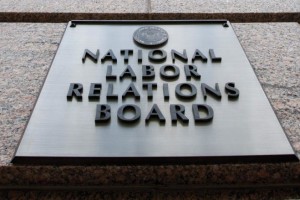 In 2013, a Fifth Circuit panel reversed the NLRB and held that “an employer does not engage in unfair labor practices by maintaining and enforcing an arbitration agreement prohibiting employee class or collective actions and requiring employment-related claims to be resolved through individual arbitration.” D.R. Horton, Inc. v. NLRB, 737 F.3d 344 (5th Cir. 2013). The NLRB, not bound in other jurisdictions by that holding, reaffirmed its original holding in the D.R. Horton case in another matter involving Murphy Oil. Unfortunately for the NLRB, the venue rules for review of its decisions allowed Murphy to appeal to the Fifth Circuit, which – unsurprisingly – again reversed the NLRB. As in the prior case, the Court did not reverse as to a requirement that the employer clarify its documents to be clear that employees were not waiving the right to make Board charges. Murphy Oil USA, Inc. v. NLRB, No. 14-60800 (Oct. 26, 2015).
In 2013, a Fifth Circuit panel reversed the NLRB and held that “an employer does not engage in unfair labor practices by maintaining and enforcing an arbitration agreement prohibiting employee class or collective actions and requiring employment-related claims to be resolved through individual arbitration.” D.R. Horton, Inc. v. NLRB, 737 F.3d 344 (5th Cir. 2013). The NLRB, not bound in other jurisdictions by that holding, reaffirmed its original holding in the D.R. Horton case in another matter involving Murphy Oil. Unfortunately for the NLRB, the venue rules for review of its decisions allowed Murphy to appeal to the Fifth Circuit, which – unsurprisingly – again reversed the NLRB. As in the prior case, the Court did not reverse as to a requirement that the employer clarify its documents to be clear that employees were not waiving the right to make Board charges. Murphy Oil USA, Inc. v. NLRB, No. 14-60800 (Oct. 26, 2015).
Ybarra sued the Dish Network, alleging that he received seven calls from it in violation if the Telephone Consumer Protection Act. The trial court granted partial summary judgment for Ybarra on three of the calls, after which the parties agreed to the dismissal of the remaining claims. Dish appealed, and Ybarra objected because the final judgment did  not reserve Dish’s right to appeal. Distinguishing the much-criticized case of Amstar Corp. v. Southern Pacific, 607 F.2d 1100 (5th Cir. 1979), the Fifth Circuit concluded: “Amstar only precludes the appeal of a claim directly covered by the consent judgment. Here, claims subject the partial summary judgment are independent of the settled claims. The reservation of a right to appeal [in the settlement agreement] was effective.” Ybarra v. Dish Network, No. 14-11316 (Oct. 20, 2015).
not reserve Dish’s right to appeal. Distinguishing the much-criticized case of Amstar Corp. v. Southern Pacific, 607 F.2d 1100 (5th Cir. 1979), the Fifth Circuit concluded: “Amstar only precludes the appeal of a claim directly covered by the consent judgment. Here, claims subject the partial summary judgment are independent of the settled claims. The reservation of a right to appeal [in the settlement agreement] was effective.” Ybarra v. Dish Network, No. 14-11316 (Oct. 20, 2015).
 Hilda Garza sued Starr County for wrongfully discharging her as a county attorney, in retaliation for announcing her candidacy for the local school board, and she won a $1.4 million verdict for front pay at trial. The district court set aside the verdict as advisory, reasoning that it went to an issue of equitable relief, and allowed the County to offer her reinstatement as an alternative remedy. The Fifth Circuit reversed. While Fed. R. Civ. P. 39(c) allows an advisory jury, it does not apply when: (1) the parties voluntarily submit an issue to a jury without formal objection, and (2) the district court does not announce in advance that the verdict is advisory. Garza v. Starr County, Texas, No. 14-41343 (Oct. 20, 2015, unpublished) (citing, inter alia, Alcatel USA, Inc. v. DGI Techs., Inc., 166 F.3d 772 (5th Cir. 1999)). (The County also challenged the award as excessive; while noting that the “more prudent course” would have been for the County to cross-appeal, the Court allowed the County to raise that issue on remand — although noting that the County’s lack of earlier objections would limit what it could raise.)
Hilda Garza sued Starr County for wrongfully discharging her as a county attorney, in retaliation for announcing her candidacy for the local school board, and she won a $1.4 million verdict for front pay at trial. The district court set aside the verdict as advisory, reasoning that it went to an issue of equitable relief, and allowed the County to offer her reinstatement as an alternative remedy. The Fifth Circuit reversed. While Fed. R. Civ. P. 39(c) allows an advisory jury, it does not apply when: (1) the parties voluntarily submit an issue to a jury without formal objection, and (2) the district court does not announce in advance that the verdict is advisory. Garza v. Starr County, Texas, No. 14-41343 (Oct. 20, 2015, unpublished) (citing, inter alia, Alcatel USA, Inc. v. DGI Techs., Inc., 166 F.3d 772 (5th Cir. 1999)). (The County also challenged the award as excessive; while noting that the “more prudent course” would have been for the County to cross-appeal, the Court allowed the County to raise that issue on remand — although noting that the County’s lack of earlier objections would limit what it could raise.)
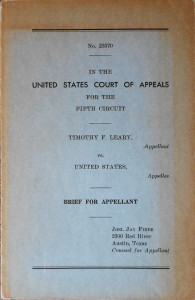 In a bankruptcy appeal to district court, the appellant’s brief was due on November 4. It did not file; the appellee moved to dismiss a month later, and the appellant was denied leave to file late. The Fifth Circuit found no abuse of discretion in that decision, looking to the factors about leave for late filings identified in Salts v. Epps, 676 F.3d 468, 474 & n.13 (5th Cir. 2012). The Court noted: “In the order granting Tarbox’s motion to dismiss, the district court found: 1) ‘the delay of over one month has prejudiced Appellee’ in its state court suit against [Appellant]; 2) the ‘thirty-four day delay’ ‘is substantial, and could have been easily avoided through basic diligence’; 3) ‘Appellant’s failure to exercise diligence in filing and pursuing its appeal was the sole reason for the delay’; and 4) ‘“Appellant has not shown good cause to excuse the late filing.” Neurology & Neurophysiology Assocs., P.A. v. Tarbox, No. 15-50105 (Oct. 15, 2015, unpublished).
In a bankruptcy appeal to district court, the appellant’s brief was due on November 4. It did not file; the appellee moved to dismiss a month later, and the appellant was denied leave to file late. The Fifth Circuit found no abuse of discretion in that decision, looking to the factors about leave for late filings identified in Salts v. Epps, 676 F.3d 468, 474 & n.13 (5th Cir. 2012). The Court noted: “In the order granting Tarbox’s motion to dismiss, the district court found: 1) ‘the delay of over one month has prejudiced Appellee’ in its state court suit against [Appellant]; 2) the ‘thirty-four day delay’ ‘is substantial, and could have been easily avoided through basic diligence’; 3) ‘Appellant’s failure to exercise diligence in filing and pursuing its appeal was the sole reason for the delay’; and 4) ‘“Appellant has not shown good cause to excuse the late filing.” Neurology & Neurophysiology Assocs., P.A. v. Tarbox, No. 15-50105 (Oct. 15, 2015, unpublished).
 In the case’s second trip to the Fifth Circuit, the Court considered whether – after an earlier remand for “limited discovery” on jurisdictional facts related to the contract-making authority of the Mexican consulate – the district court erred by reconsidering its earlier substantive ruling about the basis for subject matter jurisdiction. Blake Box v. Dallas Mexican Consultate General, Nos. 14-10744 & 14-10954 (Aug. 19, 2015, unpublished).
In the case’s second trip to the Fifth Circuit, the Court considered whether – after an earlier remand for “limited discovery” on jurisdictional facts related to the contract-making authority of the Mexican consulate – the district court erred by reconsidering its earlier substantive ruling about the basis for subject matter jurisdiction. Blake Box v. Dallas Mexican Consultate General, Nos. 14-10744 & 14-10954 (Aug. 19, 2015, unpublished).
Reviewing both the law-of-the case doctrine and the “mandate rule,” the Court found error and reversed: “[W]hether the Consulate [o]fficials had authority from the Mexican government to form a joint venture is a separate question from whether they exercised that authority in their dealings with [plaintiff]. Simply put, here, the first question was answered by the district court on remand in Box I and the second question was defaulted by the Consulate” when it failed to answer after service. Accordingly, a $3 million default judgment was reinstated. Congratulations to my LTPC colleagues Jason Dennis and Sam Hardy on this win!
 Plaintiff challenged a proposed development plan as violating the Fair Housing Act. Defendants argued “that because the planned redevelopment is both inchoate and designed to be mixed income and to attract a variety of tenants, [Plaintiff] can only speculate as to whether, if redevelopment proceeds, it will deprive her of the social and economic benefits of diversity,” and thus lacked standing. The Fifth Circuit disagreed, finding that her “asserted injury would be concretely felt in the logical course of probably events flowing from an unfavorable decision by this court: (1) HUD approves the already-pending plan for redevelopment; (2) redevelopment occurs according to the approved plan; [and] (3) segregation and minority- and poverty-concentration occur in [Plaintiff’s] neighborhood as specifically anticipated in several expert reports contained in the record.” The Court distinguished Clapper v. Amnesty International, 133 S. Ct. 1138 (2013), a recent case about the Foreign Intelligence Surveillance Act, as “depend[ing] on a long and tenuous chain of contingent events[.]” McCardell v. U.S. Dep’t of Housing & Urban Devel., No. 14-40955 (July 23, 2015).
Plaintiff challenged a proposed development plan as violating the Fair Housing Act. Defendants argued “that because the planned redevelopment is both inchoate and designed to be mixed income and to attract a variety of tenants, [Plaintiff] can only speculate as to whether, if redevelopment proceeds, it will deprive her of the social and economic benefits of diversity,” and thus lacked standing. The Fifth Circuit disagreed, finding that her “asserted injury would be concretely felt in the logical course of probably events flowing from an unfavorable decision by this court: (1) HUD approves the already-pending plan for redevelopment; (2) redevelopment occurs according to the approved plan; [and] (3) segregation and minority- and poverty-concentration occur in [Plaintiff’s] neighborhood as specifically anticipated in several expert reports contained in the record.” The Court distinguished Clapper v. Amnesty International, 133 S. Ct. 1138 (2013), a recent case about the Foreign Intelligence Surveillance Act, as “depend[ing] on a long and tenuous chain of contingent events[.]” McCardell v. U.S. Dep’t of Housing & Urban Devel., No. 14-40955 (July 23, 2015).
 The district court overseeing the settlement process for Deepwater Horizon claims ordered that the program could not have access to a certain set of “claim-specific information” before making an initial determination about a claim’s eligibility. BP sought to appeal this ruling as a collateral order. The Fifth Circuit dismissed for lack of jurisdiction, acknowledging that it had taken three earlier appeals about the settlement. The Court concluded that those appeals involved uniquely important issues about interpretation of the underlying agreement, and expressed concern about inviting significantly more interlocutory appeals given “the increasing frequency of court-supervised settlement agreements and consent decrees.” Lake Eugenie Land & Development v. BP Exploration & Production. No. 14-30823 (July 16, 2015).
The district court overseeing the settlement process for Deepwater Horizon claims ordered that the program could not have access to a certain set of “claim-specific information” before making an initial determination about a claim’s eligibility. BP sought to appeal this ruling as a collateral order. The Fifth Circuit dismissed for lack of jurisdiction, acknowledging that it had taken three earlier appeals about the settlement. The Court concluded that those appeals involved uniquely important issues about interpretation of the underlying agreement, and expressed concern about inviting significantly more interlocutory appeals given “the increasing frequency of court-supervised settlement agreements and consent decrees.” Lake Eugenie Land & Development v. BP Exploration & Production. No. 14-30823 (July 16, 2015).
A business dispute about a telephone service provider’s billing system leads to 2 holdings of broad interest, one procedural and the other substantive:
1A. Waiver. “Although [defendant] moved for a directed verdict at the close of evidence, it did not argue in its motion that the Supply Contract was unenforceable.” Accordingly, under Fed. R. Civ. 50(b), that argument could not be raised post-trial. (Here, in fact, because defendant took the opposite position about the contract in the directed verdict motion, judicial estoppel also barred the later argument.)
1B. Waiver of Waiver. When defendant relied on a certain letter agreement in its Rule 50(b) motion, and plaintiff “did not argue waiver in its response . . . [plaintiff] has forfeited its right to raise the waiver issue on appeal.”
2. Speculative damages. A “strained business relationship” between the parties supported a holding that plaintiff’s $10 million lost profits award, assuming six years of business dealings, was not proven with “reasonable certainty.” Transverse LLC v. Iowa Wireless Services, LLC, No. 13-51098 (revised Aug. 5, 2015, unpublished).
Disputes between borrowers and mortgage servicers are common; jury trials in those disputes are rare. But rare events do occur, and in McCaig v. Wells Fargo Bank, 788 F.3d 463 (5th Cir. 2015), a servicer lost a judgment for roughly $400,000 after a jury trial.
The underlying relationship was defined by a settlement agreement in which “Wells Fargo has agreed to accept payments from the McCaigs and to give the McCaigs the opportunity to avoid foreclosure of the Property; as long as the McCaigs make the required payments consistent with the Forbearance Agreement and the Loan Agreement.” Unfortunately, Wells’s “‘computer software was not equipped to handle’ the settlement and forbearance agreements meaning ‘manual tracking’ was required.” This led to a number of accounting mistakes, which in turn led to unjustified threats to foreclose and other miscommunications.
In reviewing and largely affirming the judgment, the Fifth Circuit reached several conclusions of broad general interest:
- The “bona fide error” defense under the Texas Debt Collection Act allows a servicer to argue that it made a good-faith mistake; Wells did not plead that defense here, meaning that its arguments about a lack of intent were not pertinent to the elements of the Act sued upon by plaintiffs;
- The economic loss rule did not bar the TDCA claims, even though the alleged misconduct breached the parties’ contract: “[I]f a particular duty is defined both in a contract and in a statutory provision, and a party violates the duty enumerated in both sources, the economic loss rule does not apply”;
- A Casteel – type charge issue is not preserved if the objecting party submits the allegedly erroneous question with the comment “If I had to draft this over again, that’s the way I’d draft it”;
- The plaintiffs’ lay testimony was sufficient to support awards for mental anguish; and
- “[A] print-out from [plaintiffs’] attorney’s case management system showing individual tasks performed by the attorney and the date on which those tasks were performed” was sufficient evidence to support the award of attorneys fees.
A dissent took issue with the economic loss holding, and would find all of the plaintiffs’ claims barred; “[t]he majority’s reading of these [TDCA] provisions specifically equates mere contract breach with statutory violations[.]”
A shipbuilder, under contract to the federal government, sought to remove an asbestos claim to federal court under the “Federal Officer Removal Statute,” 28 U.S.C. § 1442. The Fifth Circuit concluded that the shipbuilder was acting at the direction of the federal government, but that the plaintiff’s pleading did not establish a link between his alleged exposure and the shipbuilder’s boat (a seemingly fundamental causation problem, but not implicated at this initial procedural stage). Wilde v. Huntington Ingalls, Inc. (June 19, 2015, unpublished).
Garofolo paid off her home equity note, but did not then receive the cancelled promissory note and a release of lien from the servicer, as required by the Texas Constitution, and the terms of the note. She sued for forfeiture of principal and all interest paid under the Constitution; the servicer admitted not having sent the papers, but contended that having the provision in the note was sufficient to comply with the Constitutional requirement. The Fifth Circuit certified this issue to the Texas Supreme Court: “Garofolo’s construction appears to give rise to a drastic remedy, but Ocwen’s construction appears to render the requirement a virtual nullity except in the (hopefully rare) circumstance where a lender unscrupulously attempts to enforce a paid note resulting in recoverable damages.” Garofolo v. Ocwen Loan Servicing, LLC, No. 14-51156 (June 9, 2015).
 In a 2-1 decision, the Fifth Circuit has denied the federal government’s request to stay the district court’s injunction against key elements of President Obama’s immigration policy. Texas v. United States, No. 15-40238 (May 26, 2015). Judge Higginson’s dissent concludes that the issues before the Court are nonjusticiable. Judge Smith’s majority (joined by Judge Elrod), made these key points:
In a 2-1 decision, the Fifth Circuit has denied the federal government’s request to stay the district court’s injunction against key elements of President Obama’s immigration policy. Texas v. United States, No. 15-40238 (May 26, 2015). Judge Higginson’s dissent concludes that the issues before the Court are nonjusticiable. Judge Smith’s majority (joined by Judge Elrod), made these key points:
- On standing — “Texas’s forced choice between incurring costs and changing its fee structure is itself an injury: A plaintiff suffers an injury even if it can avoid that injury by incurring other costs. And being pressured to change state law constitutes an injury,”‘
- On the statutory merits — “[E]ven granting ‘special deference,’ the INA provisions cited by the government for that proposition cannot reasonably be construed, at least at this early stage of the case, to confer unreviewable discretion,” and
- On the APA issue — “But a rule can be binding if it is ‘applied by the agency in a way that indicates it is binding,’ and the states offered evidence from DACA’s implementation that DAPA’s discretionary language was pretextual.”
Lincoln Insurance sued several defendants, who it accused of charging excessive fees and otherwise engaging in self-dealing to the detriment of Lincoln. Lincoln won a $16.5 million judgment against two of them for tortious interference. In a “grab bag” of holdings after both sides appealed, the Fifth Circuit held:
- It did not need to reach a difficult Erie issue about when a tortious interference claim accrues under Texas law, where some of the conduct occurs outside the limitations period, because the trial court found sufficient facts to establish that the discovery rule applied;
- Voluntary dismissal of a claim in amended pleading, in response to a dismissal order “based on a technical defect or withdrawal,” waives the right to appeal that order;
- The economic loss rule barred conversion claims where contract provisions dealt with the underlying rights and responsibilities; and
- When a contract provision expressly created a fiduciary duty as to the handling of funds in a particular account, that duty necessarily extended that duty to the handling of those funds before their deposit (and the trial court erred in holding otherwise, requiring a remand).
The Court noted: “[A] litigation strategy with a narrower focus on certain claims and Defendants might reduce the complications, both procedural and substantive, that arose the first go-around.” Lincoln General Ins. Co. v. U.S. Auto Ins. Servcs., Inc., No. 13-10589 (May 18, 2015).
Satterwhite appealed an adverse ruling from the bankruptcy court, and then to the district court. In the district court, after judgment, he filed a motion for new trial, to modify the judgment, and for findings of fact and conclusions of law. After the trial court denied those motions, he filed a notice of appeal that would have been timely in an “ordinary” appeal under Fed. R. App. P. 4. Unfortunately, this bankruptcy appeal fell under Fed. R. App. P. 6, which only allows a motion for rehearing filed within 14 days of judgment to extend the appellate deadline. Satterwhite v. Guin, No. 14-20430 (March 31, 2015, unpublished).
 Allstate did not request a jury trial in its original complaint, but did in response to the defendant’s answer and counterclaim (which also included a jury demand, and which Allstate was entitled to rely upon). After a summary judgment ruling, Allstate made a limited jury waiver on the remaining issue of damages. The district court then vacated its summary judgment ruling and held a bench trial on all issues in the case — liability and damages.
Allstate did not request a jury trial in its original complaint, but did in response to the defendant’s answer and counterclaim (which also included a jury demand, and which Allstate was entitled to rely upon). After a summary judgment ruling, Allstate made a limited jury waiver on the remaining issue of damages. The district court then vacated its summary judgment ruling and held a bench trial on all issues in the case — liability and damages.
The Fifth Circuit found that, “[a]lthough deference is generally accorded to a trial judge’s interpretation of a pretrial order,” this was “[a]t the very least . . a ‘doubtful situation'” that did not support the finding of “a knowing and voluntary relinquishment of the right” to jury trial pursuant to the Seventh Amendment. The Court also found harm because Allstate’s case could survive a JNOV motion, noting that “the district court relied heavily on its weighing of the credibility of the witness’s testimony at trial” in its fact finding. Accordingly, the Court reversed and remanded for jury trial. Allstate Ins. Co. v. Community Health Center, Inc., No. 14-30506 (March 16, 2015, unpublished).
Jefferson sued Delgado Community College, alleging that it was “an agency or instrumentality of the government of the State of Louisiana.” The Louisiana Attorney General appeared for the State, argued that she had not correctly named the State in the case, and suggested how to properly serve the college. Jefferson v. Delgado Community College, No. 14-30379 (March 12, 2015, unpublished). The district court denied the AG’s motion to dismiss, pointing to what the pleading said. The AG sought appellate review and the Fifth Circuit found it had no jurisdiction. The ruling was not appealable as a collateral order: “For example, personal jurisdiction implicates a defendant’s due process rights, but a defendant may not appeal the denial of a motion to dismiss based on lack of personal jurisdiction under the collateral order rule.” The Court also denied mandamus relief, noting that the district court’s ruling was not clearly erroneous given the language of the pleading, and suggesting that the parties may wish to consider the AG’s suggestion about proper service for future proceedings in the case.
 BNSF Railway Co. v. Alstom Transportation presented a challenge to an arbitration award, in a contract dispute about the maintenance of rail cars. No. 13-11274 (Feb. 5, 2015). The Fifth Circuit brushed aside a number of challenges to the arbitrator’s legal analysis, quoting the Seventh Circuit: “As we have said too many times to want to repeat again, the question for decision by a federal court asked to set aside an arbitration award . . . is not whether the arbitrator or arbitrators erred in interpreting the contract; it is not whether they clearly erred in interpreting the contract; it is not whether they grossly erred in interpreting the contract; it is whether they interpreted the contract.”
BNSF Railway Co. v. Alstom Transportation presented a challenge to an arbitration award, in a contract dispute about the maintenance of rail cars. No. 13-11274 (Feb. 5, 2015). The Fifth Circuit brushed aside a number of challenges to the arbitrator’s legal analysis, quoting the Seventh Circuit: “As we have said too many times to want to repeat again, the question for decision by a federal court asked to set aside an arbitration award . . . is not whether the arbitrator or arbitrators erred in interpreting the contract; it is not whether they clearly erred in interpreting the contract; it is not whether they grossly erred in interpreting the contract; it is whether they interpreted the contract.”
 Also, on procedural grounds, the Court rejected a challenge to the propriety of having arbitrated “gateway questions” of arbitrability. The district court had partially vacated the arbitrator’s award, the appellant (successfully) challenged that ruling, and BNSF had considerable latitude to defend it. But the “gateway” argument that arbitration should never have occurred, and that the award should thus be vacated in full, could not be presented on appeal absent a cross-appeal because it “asks for an expansion of the judgment.”
Also, on procedural grounds, the Court rejected a challenge to the propriety of having arbitrated “gateway questions” of arbitrability. The district court had partially vacated the arbitrator’s award, the appellant (successfully) challenged that ruling, and BNSF had considerable latitude to defend it. But the “gateway” argument that arbitration should never have occurred, and that the award should thus be vacated in full, could not be presented on appeal absent a cross-appeal because it “asks for an expansion of the judgment.”
The fault, dear Brutus, is not in our proof, but in our pleadings, that they fail Twombly.
January 6, 2015The plaintiff in Wooten v. McDonald Transit Assocs. sued for age discrimination and the defendant defaulted. The trial court received damages evidence and entered judgment for the plaintiff. The defendant then appeared – unsuccessfully – but obtained reversal from the Fifth Circuit. No. 13-11035 (Jan 2, 2015).
“On appeal, the [defaulted] defendant, although he may not challenge the sufficiency of the evidence, is entitled to contest the sufficiency of the complaint and its allegations to support the judgment.” Here, the majority saw the pleading as a “threadbare recital of a cause of action,” especially weak as to causation. At the hearing, however, “[P]laintiff’s live testimony provides sufficient evidence of each of the elements of his ADEA cause of action to support the entry of default.”
After a careful review of the language of the rules, precedent, and policy, the majority emphasized the pleadings over the evidence: “As there can be no judgment absent competent pleadings, it strains the text of [Rule 55] to suppose that this investigatory power encompasses the adduction of facts necessary to render the pleadings competent in the first place.” The trial court should have either dismissed or, in one of various ways, ordered amendment of the pleadings and afforded the defendant the chance to answer them. A dissent found that “[t]his result is inordinately lopsided and, even worse, favors the wearer of the black hat over the wearer of the white hat.”
 Plaintiffs sued for securities fraud about their investments in a business that auctioned antiques. Heck v. Triche, No. 14-30146 (Dec. 23, 2014). They won on many claims at trial and the Fifth Circuit affirmed, largely on procedural grounds:
Plaintiffs sued for securities fraud about their investments in a business that auctioned antiques. Heck v. Triche, No. 14-30146 (Dec. 23, 2014). They won on many claims at trial and the Fifth Circuit affirmed, largely on procedural grounds:
1. Appeal Deadline Extended. As a threshold matter, the plaintiffs’ motion for attorneys fees tolled the deadline for the notice of appeal, because the district court entered an order under Fed. R. Civ. P. 83(e) that stayed the deadline until the disposition of the motion. The Court noted some tension between its analysis of this issue and that of the Second Circuit’s in Mendes Junior Int’l Co. v. Banco Do Brasil, S.A., 215 F.3d 306 (2000).
2. Invited Charge Error. The Court agreed that the district court’s verdict form erroneously conflated the elements of a federal 10b-5 claim with those of a Louisiana securities claim. It found, however, that the plaintiffs invited this error by advocating for this part of the charge (citing United States v. Gray, 626 F.2d 494, 501 n.2 (5th Cir. 1980) [“The invited error doctrine bars reversal even if the instruction constituted plain error.”])
3. Cross-Appeal Needed. The plaintiffs argued that the district court erred by imposing liability under state law, not 10b-5. The Court found this argument waived, because its acceptance would change the amount of the judgment as well as its basis, and the plaintiffs did not cross-appeal.
Several labor unions arbitrated disputes with American Airlines about pilot seniority. Mackenzie v. Air Lines Pilots Association, No. 11-11098 (Dec. 23, 2014, unpublished). Two pilots sought to bring a class action to challenge the arbitration award. The Fifth Circuit dismissed for lack of standing: “[W]hen a CBA formed pursuant to the RLA establishes a mandatory, binding grievance procedure and vests the union with the exclusive right to pursue claims on behalf of aggrieved employees, an aggrieved employee whose employment is governed by the CBA lacks standing to attack the results of the grievance process in court—the sole exception being the authorization of an aggrieved employee to bring an unfair representation claim.” (citing Mitchell v. Continental Airlines, 481 F.3d 225 (5th Cir. 2007)). The Court’s analysis of this issue resembles discussion about the broader topic of claim preclusion, arising from a privity relationship, based on another party’s litigation activity.
 The Fifth Circuit revised its earlier opinion in Aransas Project v. Shaw, No. 13-40317 (Dec. 15, 2014) and also denied en banc review over a dissent joined by three judges (with a fourth also voting for review). The Court continues to hold that the plaintiff failed to establish proximate cause in an environmental case about the environment for whooping cranes. The points of division are whether the panel “independently weighs facts to render judgment in violation of fundamental principles of federal law,” or simply finds that “the record permits only one resolution of the factual issue after the correct law is applied”; a related issue is whether rendition or remand is the appropriate appellate remedy for fact findings premised on an error of law.
The Fifth Circuit revised its earlier opinion in Aransas Project v. Shaw, No. 13-40317 (Dec. 15, 2014) and also denied en banc review over a dissent joined by three judges (with a fourth also voting for review). The Court continues to hold that the plaintiff failed to establish proximate cause in an environmental case about the environment for whooping cranes. The points of division are whether the panel “independently weighs facts to render judgment in violation of fundamental principles of federal law,” or simply finds that “the record permits only one resolution of the factual issue after the correct law is applied”; a related issue is whether rendition or remand is the appropriate appellate remedy for fact findings premised on an error of law.
In Southwestern Elec. Power Co. v. Certain Underwriters at Lloyds, No. 13-31130 (Nov. 24, 2014), the trial court entered this order on September 25, 2013:
“IT IS ORDERED that the Motion to Compel Arbitration and Stay Proceedings (Doc. 16) is granted and the parties are ordered to resolve the claim presented in an arbitration conducted in accordance with the terms of their insurance policy. IT IS FURTHER ORDERED that this civil action is stayed, and the Clerk of Court is directed to close the case for administrative purposes given the unlikelihood that further proceedings in this action will be necessary.”
Several months later, the trial court further ordered:
“This court finds that pursuant to Freudensprung and American Heritage Ins. Co. v. Orr, 294 F.3d 702 (5th Cir. 2002), the September 25, 2013 order compelling arbitration and staying the underlying proceeding operates as a final, appealable decision within the statutory framework of the Federal Arbitration Act, 9 U.S.C. § 1-16.”
The Fifth Circuit gave little weight to that further order:
”In a later ruling on SWEPCO’s Rule 58(d) motion for a separate judgment, the district court carefully construed its earlier ruling. Notably, the district court considered case law to construe the prior order ‘as a final, appealable decision within the statutory framework of the [FAA].’ It did not issue a clarification that its prior order was intended to be final and appealable, did not purport to grant SWEPCO’s motion, and did not issue a new order with the necessary trappings of finality.”
Accordingly, because the previous order only stayed and administratively closed the matter — as opposed to dismissing it — the order was interlocutory and the Court lacked appellate jurisdiction.
The Fifth Circuit withdrew its original opinion in Scarlott v. Nissan North America to issue a revised opinion on rehearing. No. 13-20528 (Nov.10, 2014). The Court did not materially change its earlier holding that the amount-in-controversy requirement for diversity jurisdiction was not satisfied, or its disposition by a remand to the district court for purposes of remand to state court. The Court added discussion — and a dissent — about how the district court should handle a sanctions award on remand. The plurality simply said: “In light of our holding that the district court did not have jurisdiction over this case, the district court should reconsider whether to award attorneys’ fees and costs to the defendants; and if the court decides that attorneys’ fees and costs are still appropriate, the court should reconsider the amount of the award.” The dissent would vacate the award; among other points, it made this basic one: “By its very nature, section 1927 involves assessing the merits of the claim, which establishes the inappropriateness of the district court’s order in light of the lack of jurisdiction.”
The parties to a contract about the construction of a barge disputed whether an amendment required price adjustments based on the price of steel. Blessey Marine Services, Inc. v. Jeffboat, LLC, No. 13-30731 (Nov. 10, 2014, unpublished). In a pretrial summary judgment ruling, the district court rejected the plaintiff’s argument that the contract was unambiguous, and held a jury trial to hear extrinsic evidence and resolve the ambiguity. On appeal, the Fifth Circuit held:
1. Because the plaintiff did not renew the ambiguity argument in a Rule 50 motion (although it did raise the point in a motion in limine and in opposition to the other side’s motion), the Court could not consider it on appeal; and
2. “By adducing some of the same extrinsic evidence at trial that it had sought to exclude in its motion in limine, [Plaintiff] waived its right to challenge the district court’s admission of that evidence.” (citing Fed. R. Evid. 103(b) and Ohler v. United States, 529 U.S. 753, 755 (2000) [“[A] party introducing evidence cannot complain on appeal that the evidence was erroneously admitted.”])
The forum selection clause in Waste Management of Louisiana LLC v. Jefferson Parish was permissive, not mandatory:
“Jurisdiction: This Agreement and the performance thereof shall be governed, interpreted, construed and regulated by the laws of the State of Louisiana and the parties hereto submit to the jurisdiction of the 24th Judicial District Court for the Parish of Jefferson, State of Louisiana. The parties hereby waiving [sic] any and all plea[s] of lack of jurisdiction or improper venue.”
When Waste Management sued in Louisiana federal court, the defendant’s forum non conveniens motion was denied and the Fifth Circuit declined to review that denial by interlocutory appeal. No. 14-90040 (Nov. 28, 2014, unpublished). The Court noted: “Unlike their mandatory counterparts, permissive forum selection clauses allow but do not require litigation in a designated forum. As such, we have never required district courts to transfer or dismiss cases involving clauses that are permissive.” It held that Atlantic Marine Construction v. District Court, 134 S. Ct. 568 (2013), did not change that rule, as that case involved a mandatory clause, and “[t]he vast majority of district courts deciding this issue have rejected Atlantic Marine’s application to permissive forum selection clauses.”
A mortgage servicer sued two individuals, alleging a conspiracy to defraud; the defendants argued that the servicer lacked standing because the notes in question were not properly conveyed. The case settled during trial, and as part of the settlement “the parties stipulated to several facts, including the fact that the Trusts were the owners and holders of the Loans at issue.” An agreed judgment followed. BAC Home Loans Servicing, L.P. v. Groves, No. 13-20764 (Nov. 3, 2014, unpublished).
The defendants then moved to vacate under FRCP 60(b), arguing that the plaintiff lacked standing. The district court denied the motion and the Fifth Circuit affirmed. It first noted that “the court will generally enforce valid appeal waivers, [but] a party cannot waive Article III standing by agreement . . .” Further noting that “parties may stipulate to facts but not legal conclusions,” the Court held: “That is exactly what happened here. [Defendants] conceded facts that establish [plainitiff’s] status; thus, the district court appropriately reached the resulting legal conclusion that [plaintiff] has standing.”
Earlier this year, the Texas Supreme Court answered certified questions from the Fifth Circuit about the treatment of home equity loans under the Texas Constitution; that opinion summarizes: “To avoid foreclosure, homeowners and lenders often try to restructure underwater home mortgage loans that are in default by capitalizing past-due amounts as principal, lowering the interest rate, and reducing monthly payments, thereby easing the burden on the homeowners. But home equity loans are subject to the requirements of Article XVI, Section 50 of the Texas Constitution. The United States Court of Appeals for the Fifth Circuit has asked whether those requirements apply to such loan restructuring. We answer that as long as the original note is not satisfied and replaced, and there is no additional extension of credit, as we define it, the restructuring is valid and need not meet the constitutional requirements for a new loan.” Sims v. Carrington Mortgage Services, LLC, No. 13-0638 (Tex. 2014). Following that Court’s recent denial of rehearing, the Fifth Circuit has now formally accepted the answer and ruled accordingly.
On Friday October 10, the Fifth Circuit denied mandamus relief on the eve of trial in a high-stakes False Claims case, In re Trinity Industries, Inc. — but took the unusual step of making an additional statement: “The court is compelled to note, however, that this is a close case. The writ is timely and the litigation stakes–the potential for a $1 billion adverse judgment–are unusually high. This court is concerned that the trial court, despite numerous timely filings and motions by the defendant, has never issued a reasoned ruling rejecting the defendant’s motions for judgment as a matter of law.” The Court went on to cite several specific opinions that caused its concern.
Fed. R. Civ. P. 62(f) says: “If a judgment is a lien on the judgment debtor’s property under the law of the state where the court is located, the judgment debtor is entitled to the same stay of execution the state court would give.” In MM Steel, L.P. v. JSW Steel (USA), Inc., Appellant faced an adverse judgment for over $150 million, and sought a stay of execution based on this rule. No. 14-20267 (Nov. 14, 2014 [revised]).
Reviewing the somewhat scattered authority about Rule 62(f) and its application in Texas, the per curiam majority concluded that the creation of a Texas judgment lien with an abstract of judgment “requires more than mere ministerial acts.” Accordingly, a Texas judgment is not a lien within the scope of Rule 62(f), and Appellant’s motion to stay was denied (applying Rodriguez-Vazquez v. Lopez-Martinez, 345 F.3d 13 (1st Cir. 2003)).
In dissent, Judge Jones (a) saw the case as controlled by a different line of authority (citing Castillo v. Montelepre, Inc., 999 F.2d 931 (5th Cir. 1993)), under which “Rule 62(f) is applicable where a judgment creditor is otherwise afforded sufficient security under state law” such as Texas’s $25 million bond cap, and (b) observed: “The majority overstates the difficult of filing an abstract of judgment. . . . It is a single page with a few simple fields, like names and addresses of the parties.”
Claimants in the compensation system created by BP after the Deepwater Horizon accident received an award in October 2013. Lake Eugenie Land & Development v. BP Exploration & Production, No. 14-30398 (Aug. 25, 2014, unpublished). Unpaid by March 2014, they filed a “Motion to Confirm Award and Order Payment,” which the district court denied because an interim injunction had stayed the entire program while aspects of it were under legal challenge. After appealing, the injunction lifted. The Fifth Circuit dismissed for lack of jurisdiction, finding that the trial court’s ruling was neither an order that “vacates, modifies, or corrects” an arbitration award, nor an “interlocutory order . . . continuing . . . an injunction against an arbitration.”
The trustee of a litigation trust formed from the bankruptcy of Idearc, Inc. sued its former parent, Verizon, alleging billions of dollars in damages in connection with its spinoff. After a bench trial and several other orders, the district court ruled in favor of defendants, and the Fifth Circuit affirmed in U.S. Bank, N.A. v. Verizon Communications, No. 13-10752 (revised Sept. 2, 2014).
The opinion, while lengthy, still only hints at the complexity of the case, and much of its analysis is fact-specific. Some of the issues addressed include:
1. A bankruptcy litigation trust does not have a right to jury trial on a fraudulent transfer claim, when the defendant creditor has filed a proof of claim in the bankruptcy, and the bankruptcy court must resolve whether a fraudulent transfer occurred to rule on that claim (analyzing and applying Langemkamp v. Culp, 498 U.S. 42 (1990), in light of Stern v. Marshall, 131 S. Ct. 2594 (2011)).
2. In the context of determining whether the district court reviewed an earlier ruling correctly, on pages 26-27, the Court provided crisp definitions of the basic concepts of dictum and holding.
3. In the course of rejecting an argument about the refusal to admit several pieces of evidence, the Court noted that the trustee “does not discuss how each specific piece of evidence was likely to affect the outcome of the trial, in light of all the evidence presented.”
4. A defense expert, without experience in the particular industry, was still qualified to speak to valuation methodology in the bench trial, and “we cannot reverse the district court for adopting one permissible view over the other.”
5. The Court thoroughly reviewed the fiduciary duties owed from a parent to a subsidiary under Delaware law, while affirming the district court’s conclusions about causation associated with their alleged breach.
A little-known but powerful part of Fed. R. Civ. P. 41(b) provides: “[I]f the plaintiff previously dismissed any federal- or state-court action based on or including the same claim, a notice of dismissal operates as an adjudication on the merits.” The Fifth Circuit affirmed a dismissal under this rule in Cabot Golf CL-PP 1, LLC v. Nixon Peabody, No. 13-40912 (July 7, 2014, unpublished). It began by noting that, in this context, the distinction between Rule 12 and Rule 56 was immaterial, where “the material facts are undisputed, and we address a pure question of law.” On the merits, Plaintiff had filed a state lawsuit, filed a federal lawsuit, dismissed the state action, and then dismissed the federal case with a unilateral notice. Plaintiff argued that the 2-dismissal rule “should apply only to serial litigation (i.e., suits which are filed after the earlier suits were dismissed), not to parallel/tandem litigation as in this case (i.e., suits which were already pending when the earlier suits were dismisssed).” The Court rejected that argument as unsupported by case law or the plain terms of the Rule.
A large group of Dallas firefighters and police officers, involved in class action litigation against the City, filed a declaratory judgment action in the bankruptcy case of a law firm that had once represented them. They sought a declaration that neither the firm, nor the bankruptcy trustee, continued to represent them in their litigation or was entitled to any fee in that litigation. Caton v. Payne, No. 13-41182 (July 16, 2014, unpublished). After reminding in a lengthy footnote one that the final judgment rule for bankruptcy appeals is viewed “in a practical, less technical light,” the Fifth Circuit nevertheless agreed that the appeal from the ruling on that declaration was not ripe: “It is undisputed that the Class Action Lawsuits remain pending, that no recovery has been made, and that there may never be a recovery, which would preclude any contingent fee award as to which [bankrupt firm] (through the Trustee) may or may not be entitled to a share. Moreover, the Trustee has not yet demanded a fee, or threatened legal action to recover a fee.”
In Muchison Capital Partners, L.P. v. Nuance Communications, Inc., the district court remanded a case to an arbitration panel for further consideration of damages, making clear that it was not vacating the award. No. 13-10852 (July 25, 2014). Appeal ensued. Acknowledging that an order vacating an award and remanding is final, the majority concluded that this order was not final (and thus not appealable) as a matter of precedent and the general policy favoring arbitration and discouraging piecemeal appeals. A dissent warned that “mischief will come of this error,” pointing out that the district judge closed the case, issued a final judgment, and did not stay or retain jurisdiction over the case after the remand. The dissenting judge would take the appeal, reach the merits, and affirm the award. A main point of difference between the majority and dissent was the holding of of Green Tree Financial Corp. v. Randolph, 531 U.S. 79 (2000).
In Lemoine v. Wolfe, the Fifth Circuit certified an important question of malicious prosecution law to the Louisiana Supreme Court; namely, whether dismissal of a prosecution constitutes a “bona fide termination in his favor” as required by that tort. No. 13-30178 (July 18, 2014, unpublished). “For example, in a case such as this one, the dismissal served almost as a determination of the merits. The dismissal of [the] cyberstalking charge was expressly based on the fact that the district attorney had determined that there was ‘insufficient credible, admissible, reliable evidence remaining to support a continuation of the prosecution.'”
Various products liability claims against both generic and brand-name drug manufacturers were found to be preempted in Johnson v. Teva Pharmaceuticals, No. 12-31011 (July 11, 2014). The Court relied on recent Circuit precedent after the Supreme Court’s opinion in Pliva, Inc. v. Mensing, 131 S. Ct. 2567 (2011). As to the brand defendants, the Court declined to certify “the question of whether a brand-name manufacturer can be held liable for injuries caused by a plaintiff’s ingestion of a generic product that was neither manufactured nor distributed by the brand-name manufacturer, reviewing several relevant considerations and authorities. A dissent would certify, seeing the issue as having “potentially grave ramifications” and taking a different view of the strength of the relevant authority.
After the Deepwater Horizon disaster, BP’s share price declined and several employee benefits sustained major losses. An ERISA lawsuit on behalf of the beneficiaries was dismissed, noting that an ERISA fiduciary’s to maintain an investment in company stock receives a “presumption of prudence,” sometimes referred to as the Moench presumption. Whitley v. BP, P.L.C., No. 12-20670 (July 15, 2014, unpublished). In June 2014, the Supreme Court eliminated that presumption and held that ERISA fiduciaries managing a plan invested in company stock are subject to the same duty of prudence as any other ERISA fiduciary, “except that they need not diversify the fund’s assets.” Fifth Third Bancorp v. Dudenhoeffer, No. 12-751 (U.S. June 25, 2014). Accordingly, the Fifth Circuit vacated the district court’s dismissal and remanded the appeal for reconsideration in light of that opinion.
Chesapeake’s lease obliged it to pay the Warrens a royalty based on “the amount realized by Lessee, computed at the mouth of the well.” A lease addendum said the royalty “shall be free of all costs and expenses related to the exploration, production, and marketing . . . including, but not limited to, costs of compression, dehydration, treatment and transportation.” Warren v. Chesapeake Exploration LLC, No. 13-10619 (July 16, 2014).
The addendum went on to say that “Lessor will, however, bear a proportionate part of all those expenses imposed upon Lessee by its gas sales contract to the extent incurred subsequent to those that are obligations of Lessee.” The Warrens contended that this sentence defined certain shared expenses which should not have been deducted from the royalty. The Fifth Circuit disagreed and affirmed the Rule 12 dismissal of their complaint, finding that the sentence only referred to “the cost of delivering marketable gas to a sales point other than the mouth of the well.” (distinguishing Heritage Resources, Inc. v. NationsBank, 939 S.W.2d 118 (Tex. 1996)).
The Court reversed, however, as to another pair of plaintiffs with a different lease addendum. Noting simply that it was different, the Court found that their claim should not have been dismissed, as “[i]t is not apparent from the face of the complaint or its attachments that they could not conceivably state a cause of action.”
At issue in Meadaa v. K.A.P. Enterprises LLC was the relative liability of three defendants for a $3.5 million claim. No. 12-30918 (July 1, 2014). In a summary judgment affidavit, an expert opined that transactions of Defendant 1 had not resulted in unfair advantage to Defendants 2 and 3, and had kept its affairs separate from those of Defendant 4. The expert had reviewed financial documents from Defendant 1 and tax returns from Defendant 4. The Fifth Circuit found no clear error in the district court’s striking of this affidavit for a lack of personal knowledge. Because “[i]t is by no means clear how a [CPA] can obtain personal knowledge of the effects of the actions of one entity on other parties without reviewing the latter’s financial documents,” it was “incumbent upon him to explain how he acquired such knowledge.” As a procedural matter, the Court also found that a notice of appeal from a final judgment encompassed a later ruling on a Rule 59 motion.
The agreed protective order said: “At any time after the delivery of documents designated ‘confidential,’ counsel for the receiving party may challenge the confidential designation of any document or transcript (or portion thereof) by providing written notice thereof to counsel for the opposing party.” The producing party then has 15 days to seek protection; if it does not do so, “then the disputed material shall no longer be subject to protection as provided in this order.” Moore v. Ford Motor Co., No. 13-40761 (June 20, 2014).
Pursuant to the order, Ford produced four boxes of documents related to Volvo safety issues. These communications ensued:
- On May 11, 2004, plaintiffs’ counsel emailed to challenge the confidentiality designations of several documents.
- On June 4, Ford’s counsel asked for Bates numbers.
- On June 23, plaintiffs’ counsel responded, expanded on the confidentiality argument, and said it “will begin passing them out to any and everyone that is interested”
- In July, plaintiffs’ counsel asked: “what’s the word . . . on confidentiality?”
- The next day, Ford’s counsel withdrew its designations as to some documents, said it was “evaluating your claims” as to others, and “expects you to abide by the terms of the Protective Orders in the meantime”
- Plaintiffs’ counsel responded: “I gave Ford adequate time. I am sending the materials out. Thanks for trying.” (He did not specify what “materials”)
- On February 22, 2005, plaintiffs’ counsel asked for an update on the “confidentiality issue”
- On March 8, 2005, Ford responded that “in the spirit of cooperation” it would “officially de-designate from the Protective Order” specified other documents.
In 2012, documents surfaced in other litigation that Ford had produced pursuant to the above protective order; while the opinion does not specify what they were, it seems clear that they were documents which Ford had not formally “de-designated.” Ford moved to enforce the protective order and the district court agreed, finding no “clear written notice . . . challenging the confidential designation of these documents.”
On appeal, plaintiffs argued that the 15-day period ran from the first email, and Ford thus waived its designations by not moving for protection. The Fifth Circuit disagreed, finding the protective order ambiguous on this issue, and stating: “This interpretation may well be the better reading without more, but the parties understanding of these agreed orders bears upon the interpretation, and the actions of both parties strongly suggest” otherwise, noting the lengthy dialogue between the parties. Noting that “[a]lthough on de novo review a different outcome may obtain,” the Court found the district court’s conclusion that no waiver occurred to not be clearly erroneous.
A dissent, among other arguments, noted that (1) the 15-day provision only requires that confidentiality be “in dispute,” (2) Ford drafted the agreement so any ambiguity should be construed against it, and (3) Ford had the burden to establish confidentiality. The dissent concluded the majority opinion undermined “efficient resolution of discovery disputes” by allowing “Ford . . . to undermine this purpose through vague, non-responsive answers.”
In Tetra Technologies, Inc v. Continental Ins. Co., the district court ruled on several key issues in an insurance coverage dispute, declined to certify the rulings for immediate appeal under 28 U.S.C. § 1292(b) because it found no substantial ground for difference of opinion, and entered judgment on those matters pursuant to Fed. R. Civ. P. 54(b). No. 13-30516 (June 10, 2014). The Fifth Circuit found that judgment improper, and thus dismissed on jurisdictional grounds for lack of a final and appealable order. Rather than sounding the “death knell” of claims as required by Rule 54, the Court concluded that the rulings would allow “Tetra and Maritech to prevail completely nor not at all on their indemnification claim against Continental, depending on the resolution of certain ‘factual issues.'” “Thus, what we are presented with here is a request by the district court for us to sign off mid-litigation on legal questions it considers non-contentions. Since the inception of the federal judiciary, however, our role has been to review final decisions of trial courts, not to tinker with ongoing cases through piecemeal appeals . . . “
1. Request a limiting instruction to help preserve evidentiary error: “Moreover, even if there is merit to this distinction, [Defendant] never requested a limiting instruction during trial that would have enabled the jury to consider the evidence regarding insurance only for permissible purposes. Where ‘counsel never requested a more complete limiting instruction,’ the district court ‘cannot [be] fault[ed] . . . for failing to give one spontaneously.” Eagle Suspensions, Inc. v. Hellmann Worldwide Logistics, Inc. (June 9, 2014, unpublished).
2. Renew earlier issues to help preserve charge error: “Essentially, [Defendant] now argues that the district court should have recalled [Defendant’s] federal preemption argument from January and February 2013 when drafting the final jury instructions on March 20, 2013, even though [Defendant] itself never referenced this federal preemption argument in [Defendant’s] objections to the proposed jury instructions. . . . [A] party cannot merely rely on ‘‘the fact that the court is already aware of its position as an excuse for a failure to make a specific, formal objection at the charge conference.’ Rule 51 specifically requires parties to make their objections after the proposed jury charge has been drafted and distributed for comment.” Id. (quoting Jimenez v. Wood County, 660 F.3d 841, 845-46 (5th Cir. 2011) (en banc)).
Two boats collided. The district court dismissed the resulting tort litigation in favor of Mexico on forum non conveniens grounds. Cotemar S.A. de C.V. v. Hornbeck Offshore Services, No. 13-20230 (May 21, 2014, unpublished). After that dismissal, the plaintiff seized the offending vessel in Louisiana (still there at the time of this writing). The Fifth Circuit reversed and remanded for further analysis. The first point dealt with a potential time bar in the Mexican system. “If access to relief in the Mexican courts has become time-barred for reasons not of Appellants’ ‘own making,’ then the Mexican courts are no
longer an available alternative forum.” (citing Veba-Chemie AG v. M/V Getafix, 711 F.2d 1243, 1248 n.10 (5th Cir. 1983)). Second, the “supervening change of circumstances” arising from the vessel seizure may affect the balancing of private and public factors, because a transfer to Mexico would now likely result in duplicative proceedings.
Aristotle on BP’s Deepwater Horizon settlement: “[T]he structure of the best tragedy should not be simple but complex . . . “
May 21, 2014The Fifth Circuit has now resolved the challenges to BP’s Deepwater Horizon settlement, as follows:
1. In October 2013, in three separate opinions, First Panel remanded for more fact findings as to accounting issues about the settlement.
2. In January 2014, in a 2-1 decision, Second Panel affirmed the settlement over challenges based on Rule 23 and related standing issues.
3. In March 2014, satisfied with the results of the remand, First Panel affirmed the mechanics of the settlement in a 2-1 decision.
4. On May 19, 2014:
A. First Panel denies panel rehearing, concluding in a 2-1 opinion: “In settling this lawsuit, the parties agreed on a substitute for direct proof of causation by a preponderance of the evidence. By settling this lawsuit and agreeing to the evidentiary framework for submitting claims, the claimants did not abandon their allegations of Article III causation.”
B. Second Panel also denies panel rehearing, also in a 2-1 opinion, noting its “complete agreement” with the denial of panel rehearing by First Panel.
C. The full court denied en banc rehearing as to First Panel and also as to Second Panel, both over dissents that stressed Article III issues.
In Songcharoen v. Plastic & Hand Surgery Associates, the district court denied cross-motions for summary judgment about the meaning of a contract and had a trial as to the terms it believed to be ambiguous. No. 13-60315 (April 2, 2014, unpublished). Even though both matters present a common issue of law, because “the ‘evidence’ presented at pretrial may well be different from the evidence presented at trial,” the Court reviewed the issue through review of the denial for judgment as a matter of law. The Court reminded: “because Rule 50 motions for judgment as a matter of law are not required following a bench trial, reviewing a district court’s denial of summary judgment is appropriate following a bench trial.” (citing Black v. J.I. Case Co., 22 F.3d 568, 570 (5th Cir. 1994), and Becker v. Tidewater, Inc., 586 F.3d 358, 365-66 n.4 (5th Cir. 2009)).
Colbert v. Brennan arises from the difficult litigation involving the Brennan family, the noted New Orleans restaurateurs. No. 13-30069 (May 9, 2014, unpublished). Ted Brennan filed an unopposed motion to dismiss an appeal, pursuant to a settlement agreement [the finality of the agreement is not clear from the opinion]. (Pursuant to Fed. R. App. P. 42(b), “an appeal may be dismissed on an appellant’s unopposed motion if the parties agree about costs.”) Two months later, he sought to reinstate the appeal. Citing Williams v. United States, 553 F.2d 420 (5th Cir. 1977), the Fifth Circuit held that the voluntary dismissal “voided” the notice of appeal, noting that “[h]e failed to file a new notice of appeal within the time limits required by Ruel 4(a) or to seek relief in the district court as provided by Rule 4(a).” Citing Bowles v. Russell, 551 U.S. 205 (2007), the Court declined to apply any “equitable exception” to the rule that a notice of appeal is jurisdictional. The Court also held it was not bound, on this jurisdictional question, by a previous single-judge ruling that reinstated the appeal.
1. Defendants’ Rule 59 motion was filed a day late, “therefore the district court did not abuse its discretion in denying the motion.”
2. Post-verdict, the defendant did not renew, under Fed. R. Civ. P. 50(b), an earlier Fed. R. Civ. P. 50(a) motion that challenged the sufficiency of the evidence for the plaintiff’s mental anguish claims. The Court “decline[d] to review” the issue, noting that the Fifth Circuit’s cases “are not entirely uniform” as to whether this oversight was a waiver or allows review under a plain error standard.
3. The Court found no plain error from the plaintiff’s closing argument, including the lawyer’s “odd tactic of handing his business card to the jury during argument, especially in light of the court’s curative instructions and [defendant’s] failure to move for a mistrial.” McLendon v. Big Lots Stores No. 13-20338 (April 14, 2014, unpublished).
In Haase v. Countrywide Home Loans, Inc., the district court dismissed the plaintiff’s RESPA claim, declined to exercise supplemental jurisdiction over the remaining state law claims, and remanded them to state court. No. 12-20806 (April 9, 2014). Appellees argued that “because this judgment remanded the remaining state claims to the state court without addressing their respective merits, it is not a final disposition of all claims in the case, and therefore not appealable under 28 U.S.C. § 1291.” The Fifth Circuit disagreed, concluding that “as a practical matter, remands end federal litigation and leave the district court with nothing else to do.” (applying Quackenbush v. Allstate Ins. Co., 517 U.S. 706 (1996)).
The stark facts of Bierwith v. Countrywide Bank, FSB are: “[A[ppellant’s] notice of appeal was filed on August 16, 2013, thirty-one days after the district court’s entry of final judgment on July 16, 2013. Federal Rule of Appellate Procedure 4 provides that a notice of appeal ‘must be filed with the district clerk within 30 days after entry of the judgment or order appealed from.’ As the Supreme Court has made clear, a party’s failure to take an appeal within the prescribed time precludes our jurisdiction. Accordingly, [Appellants’] appeal is DISMISSED.” No. 13-50755 (April 3, 2014, unpublished) (footnotes omitted).
The district court granted a dismissal in favor of New Zealand, on forum non conveniens grounds, in Royal Ten Cate USA, inc. v. TT Investors, Ltd. No. 13-50106 (March 25, 2014, unpublished). The Fifth Circuit remanded for further consideration of what it saw as a key private-interest factor — “whether two key witnesses who reside in Texas would be amenable to process in New Zealand.” The witnesses in question were former party employees living in Texas, and the parties disputed whether those individuals’ employment contracts obligated them to cooperate with litigation after their employment. Their importance was heightened because they were particularly significant to one side, while the other side did not appear to have comparable problems with its likely witnesses. The Court did not express an opinion about the proper result on remand, and noted that “[t]he decision regarding whether or not to take additional evidence is one that we leave to the sound discretion of the district court.”
A law firm appealed the disposition of its fee application. The district court affirmed the bankruptcy court in part, vacated in part, and remanded for the firm to make another fee request that provided more necessary information. Okin Adams & Kilmer v. Hill, No. 13-20035 (March 24, 2014). The firm appealed to the Fifth Circuit, which concluded it had no appellate jurisdiction because the order was not final: “Given that the bankruptcy court must perform additional fact-finding and exercise discretion when determining an appropriate attorney’s fee award, the district court’s order requires the bankruptcy court to perform judicial functions upon remand.” A detailed dissent concluded that, while the district court’s order required “more than a mechanical entry of judgment,” “it also involves only mechanical and computational tasks that are ‘unlikely to affect the issue that the disappointed party wants to raise on appeal.'” Accordingly, it warned that “refusing to hear this appeal undermines the long-recognized, salutary purpose of allowing appeals in discrete issues well before a final order in bankruptcy.”
The plaintiffs in Moran v. Ocwen Loan Servicing LLC ran afoul of the holding in Priester v. JP Morgan Chase, 708 F.3d 667 (5th Cir. 2013), that “liens that are contrary to the requirements of § 50(a) [of the Texas Constitution] are voidable rather than void from the start.” No. 13-20242 (March 24, 2014, unpublished). They sought certification to the Texas Supreme Court to correct what they contended was an erroneous holding in Priester. The Fifth Circuit gave two valuable general reminders in this area. First: “It is a well-settled Fifth Circuit rule of orderliness that one panel of our court may not overturn another panel’s decision, absent an intervening change in the law, such as by a statutory amendment, or the Supreme Court, or our en banc court.” Second, “While the Texas Constitution allows this court to certify questions to the Texas Supreme Court, certification is not a proper avenue to change our binding precedent.”
After the Supreme Court’s reversal of the Fifth Circuit in Mississippi v. AU Optronics, which held that the case was not a “mass action” under CAFA, AU Optronics argued that federal courts still had jurisdiction over the matter as a “class action.” The Fifth Circuit disagreed, finding that it had addressed and rejected that argument in its prior panel opinion. Mississippi v. AU Optronics, No. 12-60704 (March 19, 2014, unpublished). Its treatment of the issue was not dicta because it was “an explication of the governing rules of law” that received the Court’s “full and careful consideration.” Because that analysis “was a proper holding, the law-of-the-case doctrine forbids its reconsideration.” Alternatively, the point was waived when AU Optronics did not appeal it to the Supreme Court. (While the distinction between holding and dicta is fundamental to the common law, much less appellate practice, a formal definition such as this is rare. A detailed analysis appears in Loud Rules, an article in the Pepperdine Law Review by this blog’s author and Professor Wendy Couture of the University of Idaho Law School.)
A law firm argued that the Texas “anti-SLAPP” statute protected its efforts to solicit former patients of a dental clinic as clients. NCDR, LLC v. Mauze & Bagby PLLC, No. 12-41243 (March 11, 2014). (This statute has led to a great deal of litigation about communication-related disputes, often in areas that the Legislature may not have fully anticipated — this blog’s sister details such litigation in the Dallas Court of Appeals.) In a detailed analysis, the Fifth Circuit agreed that the district court’s ruling against the firm was appealable as a collateral order. The Court then sidestepped an issue as to whether the anti-SLAPP statute was procedural and thus inapplicable in federal court, finding it had not been adequately raised below. Finally, on the merits, the Court affirmed the ruling that the law firm’s activity fell within the “commercial speech” exception to the statute: “Ultimately, we conclude that the Supreme Court of Texas would most likely hold that M&B’s ads and other client solicitation are exempted from the TCPA’s protection because M&B’s speech arose from the sale of services where the intended audience was an actual or potential customer.”
In Naquin v. Elevating Boats, LLC, the Fifth Circuit found that the verdict and resulting judgment in a Jones Act case erroneously included compensation for mental anguish from seeing the death of another person. No. 12-31258 (March 10, 2014). The Court disposed of the case as follows: “[S]erious practical problems would be presented at trial if we were to save some elements of the damage award and retry only other elements of damage. ‘Where, as here, the jury’s findings on questions relating to liability were based on sufficient evidence and made in accordance with law, it is proper to order a new trial only as to damages.’ We therefore retain the jury’s liability finding but order a new trial on damages.” (quoting Hadra v. Herman Blum Consulting Engineers, 632 F.2d 1242, 1246 (5th Cir. 1980)).
The “ART entities” sued the “Clapper entities” for fraud about a real estate transaction, and they countersued for breach of fiduciary duty. A jury found against both sides. The Clapper entities appealed; the Fifth Circuit reversed on a legal issue and remanded for new proceedings on liability and damages. The ART entities then sought to raise the fraud claim again; the district court found it barred by the mandate rule, and on appeal from the second trial, the Fifth Circuit affirmed. ART Midwest Inc. v. Clapper, No. 11-11140 (Feb. 3, 2014). It reasoned: “We hold that the ART entities’ decision not to cross-appeal the jury’s fraud findings in the first district court proceeding prevented them from raising the same rejected fraud claims in the second district court proceeding. Even though they prevailed on many of their claims in the first district court proceeding, the consensus of circuit authority supports that the ART entities could have filed a ‘protective’ or ‘conditional’ cross-appeal of the adverse fraud finding.” The Court otherwise affirmed, reversing as to one issue relating to “double-counting” of damages in light of the parties’ correspondence.


